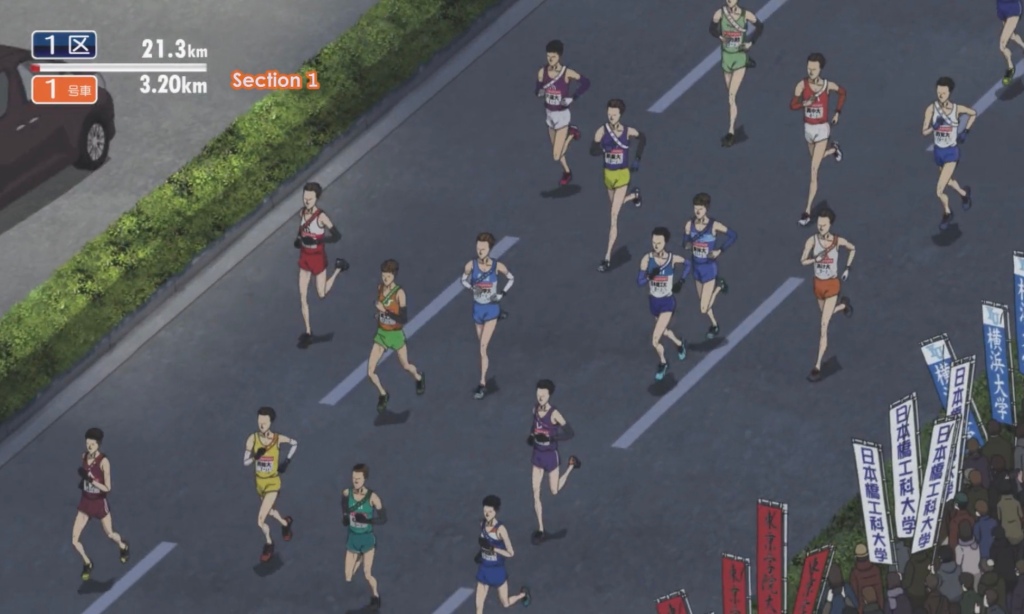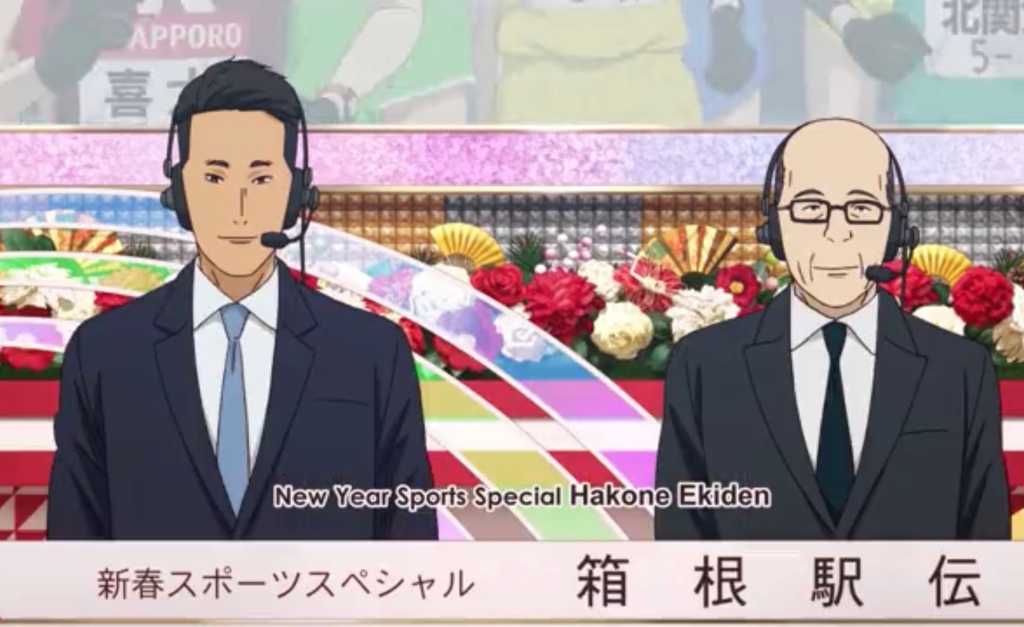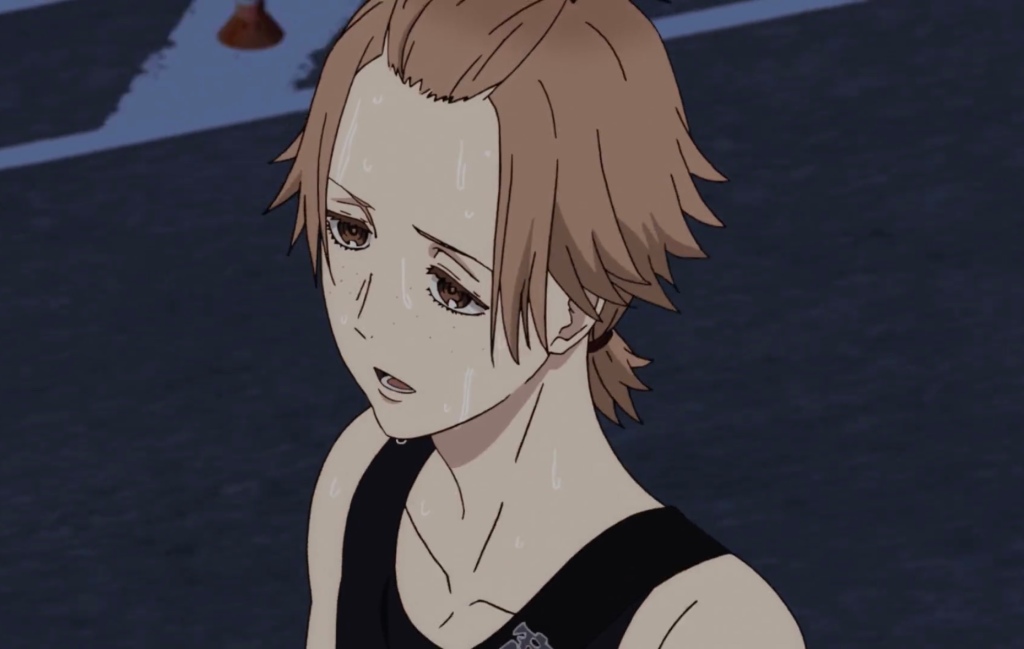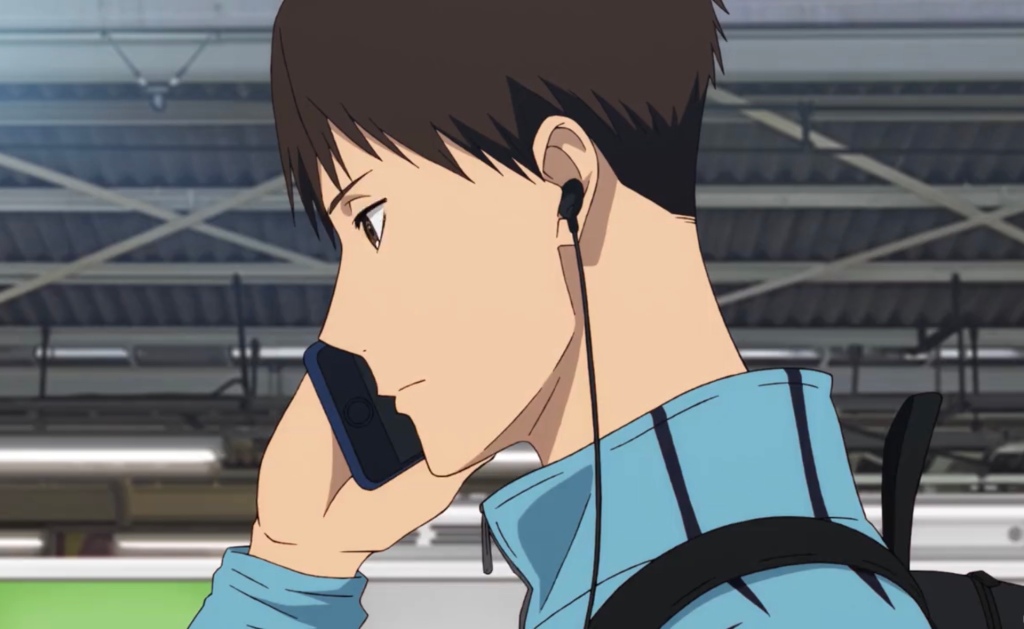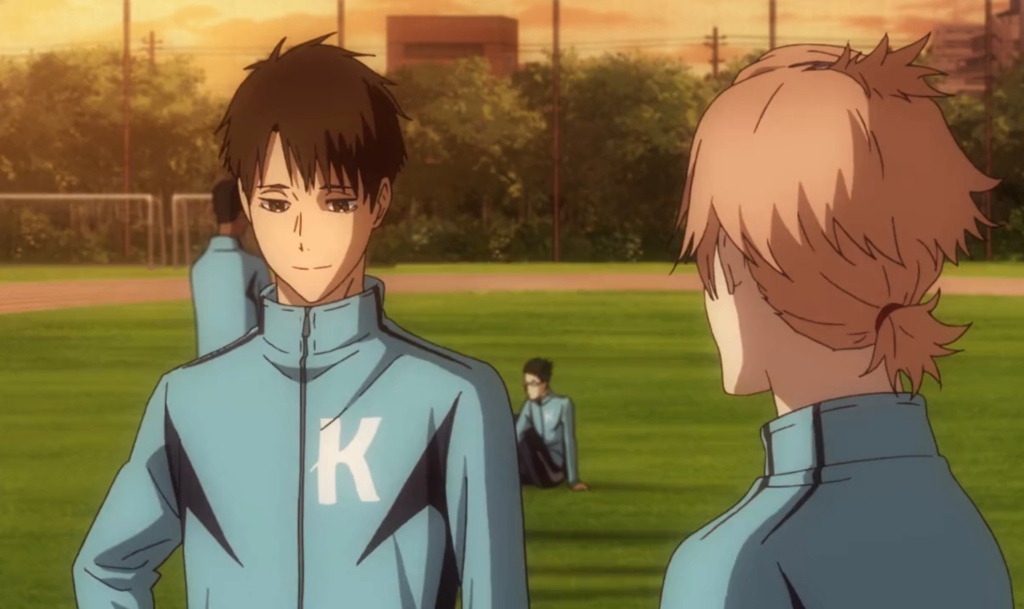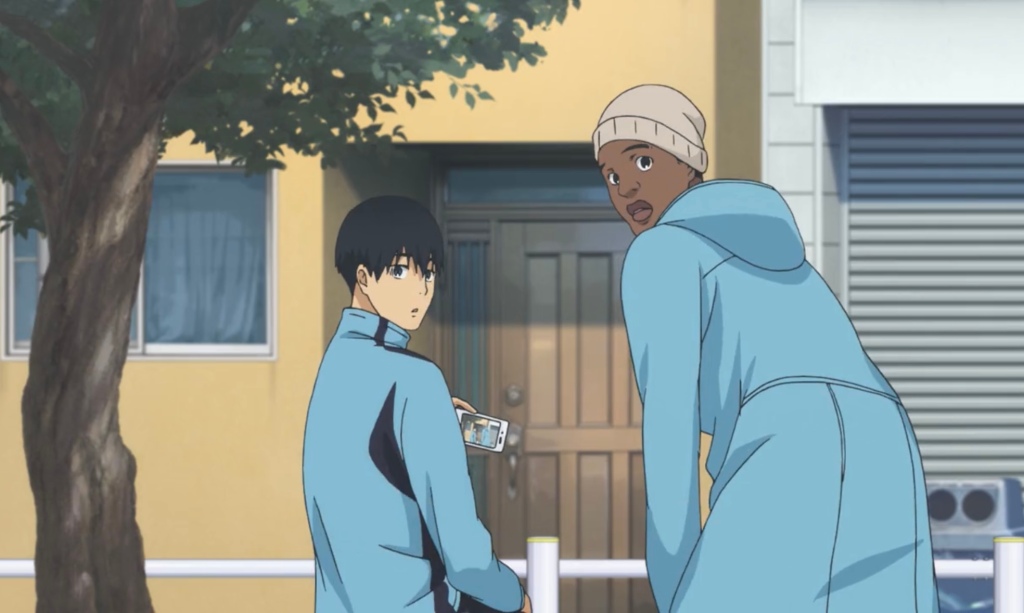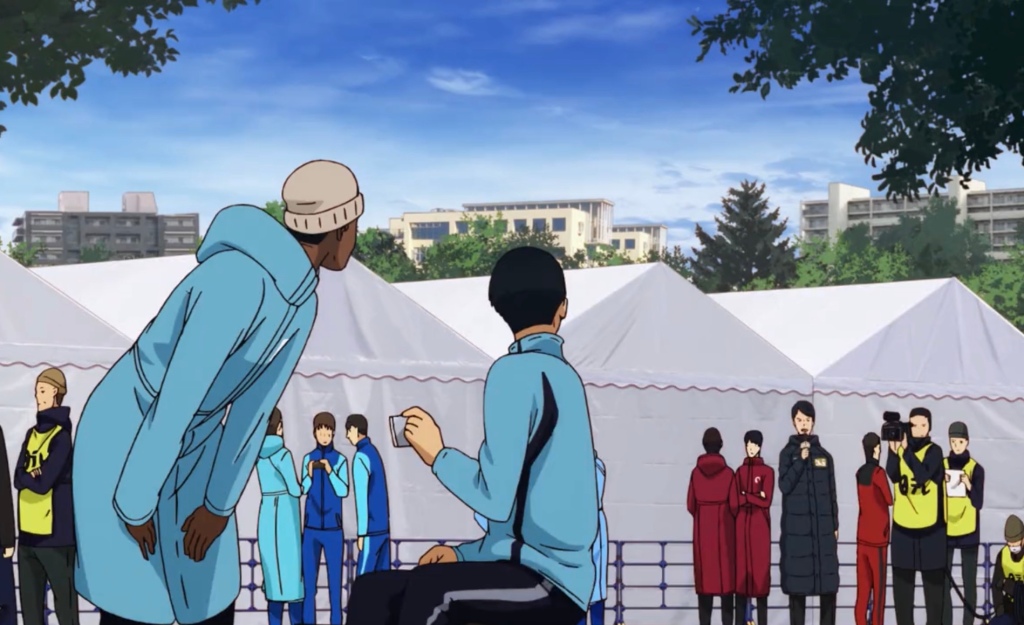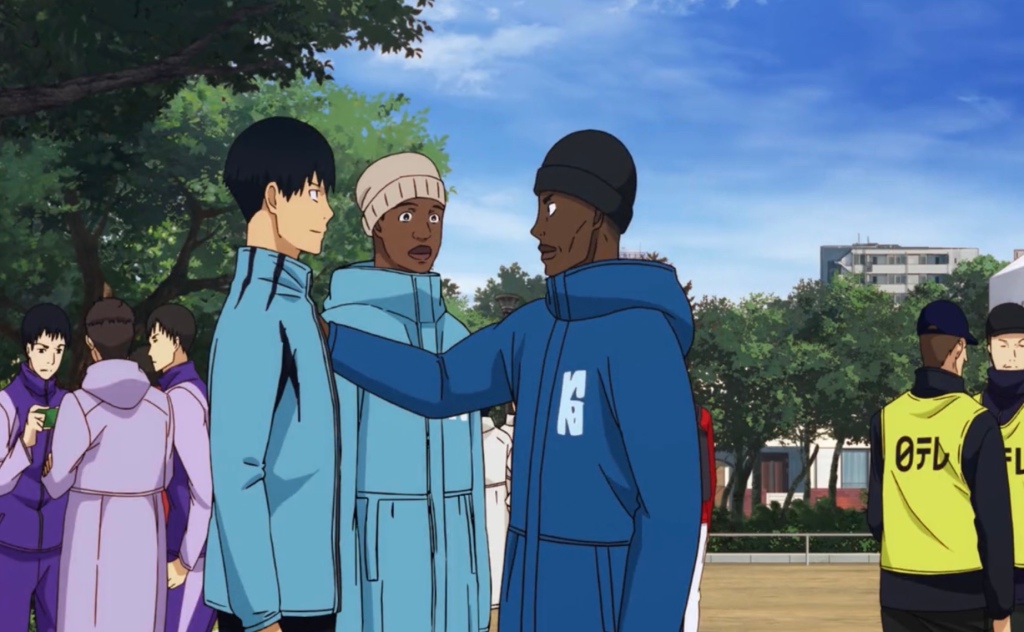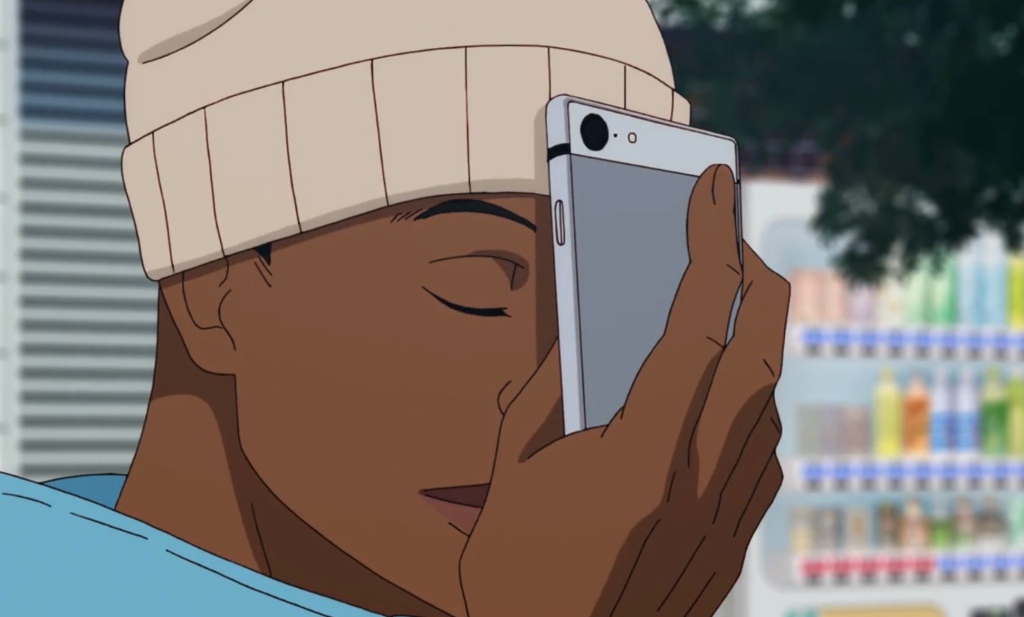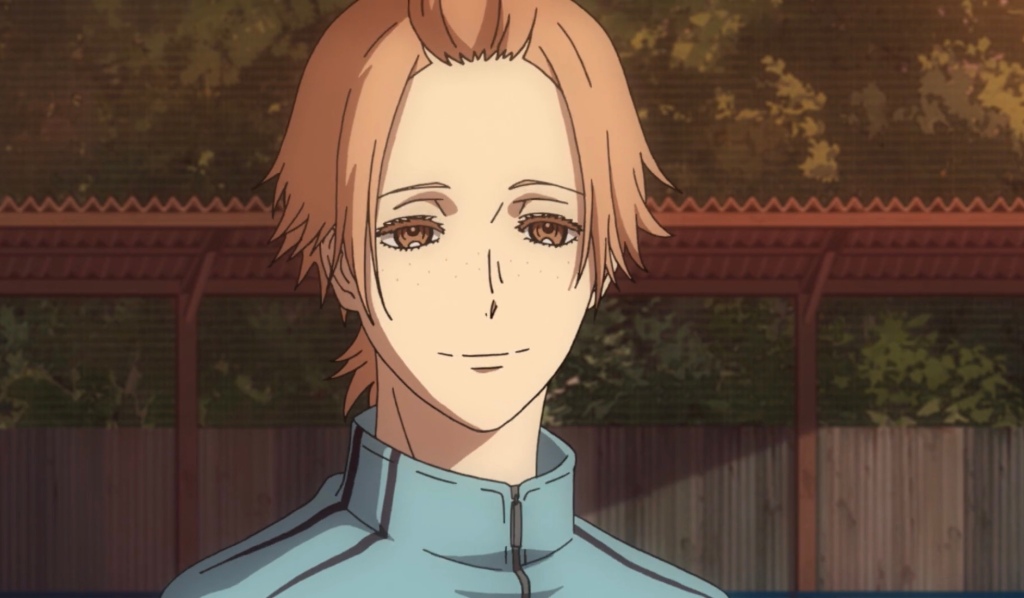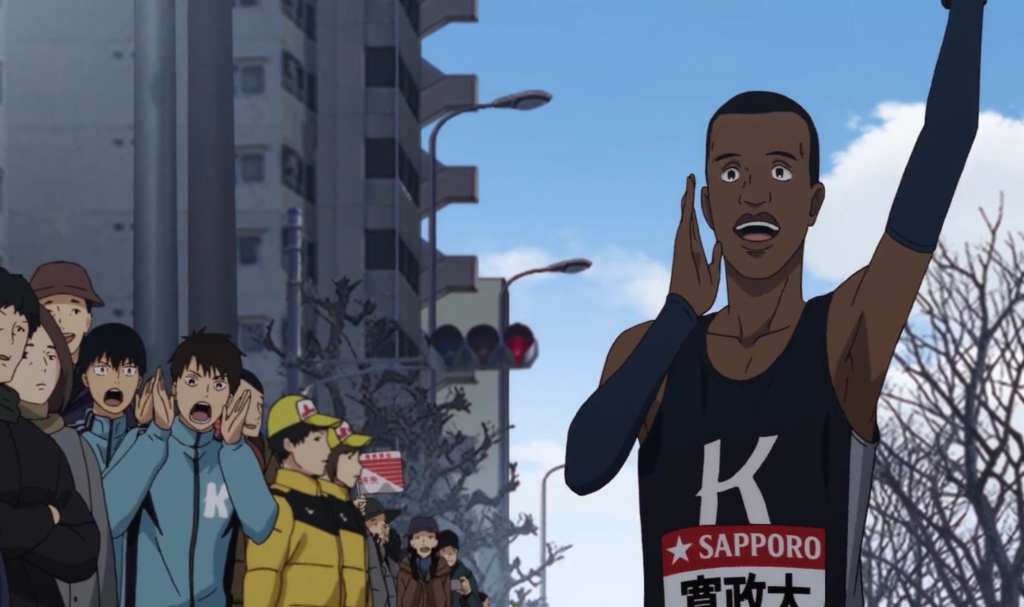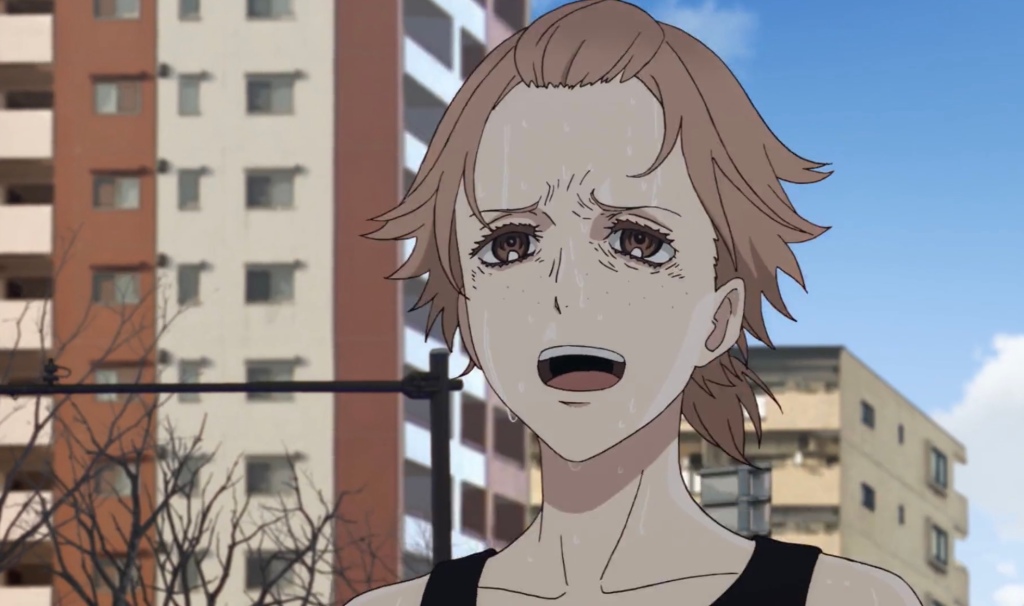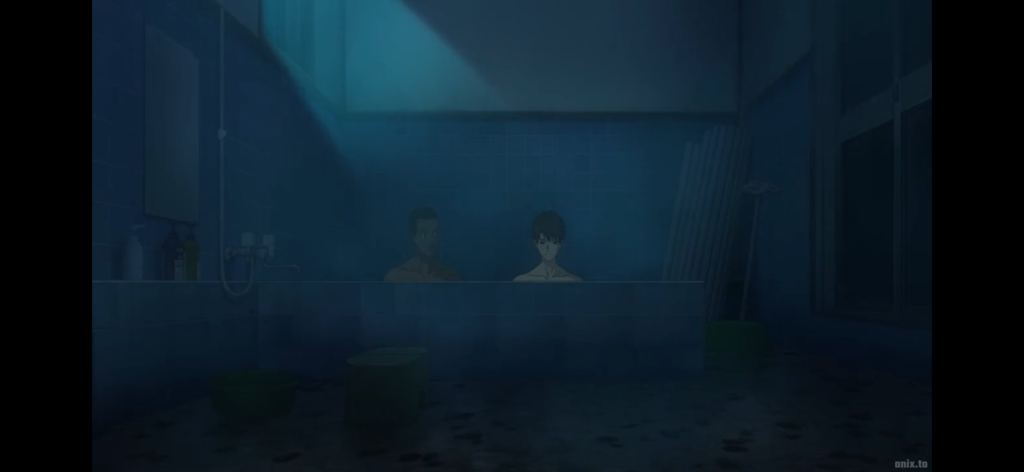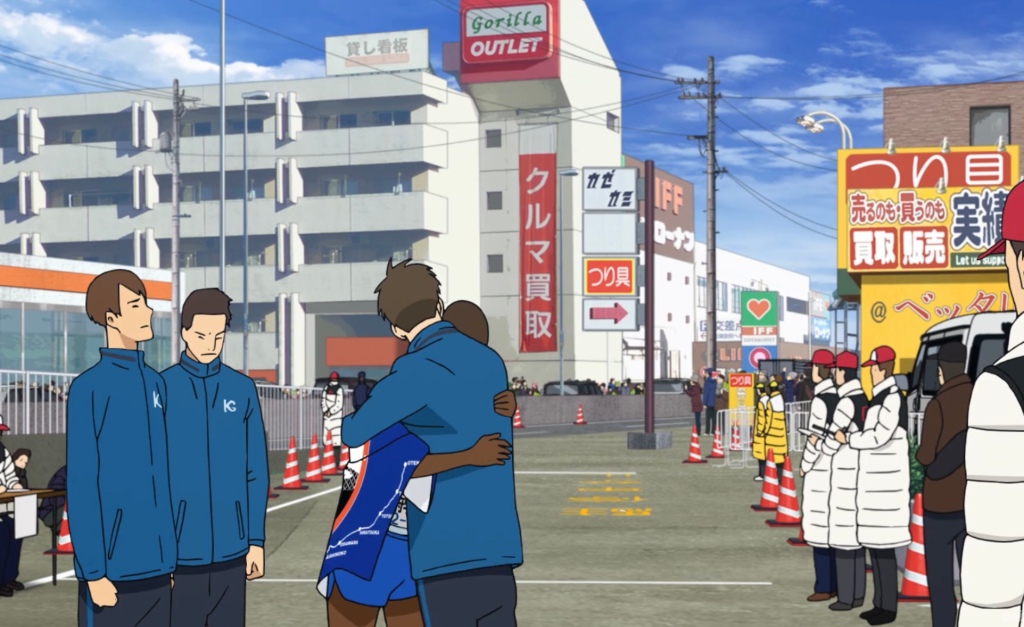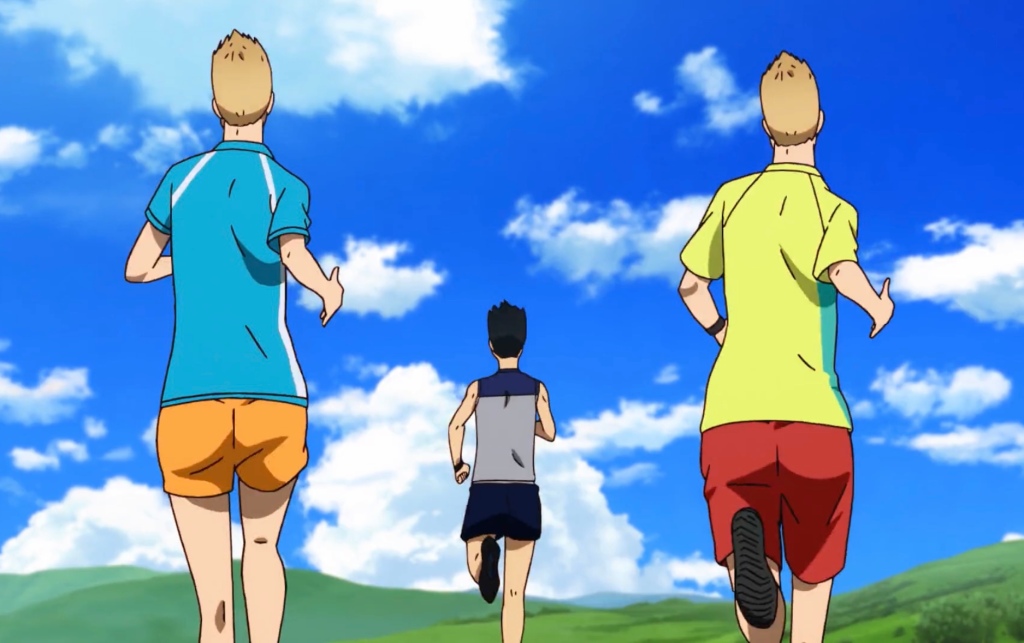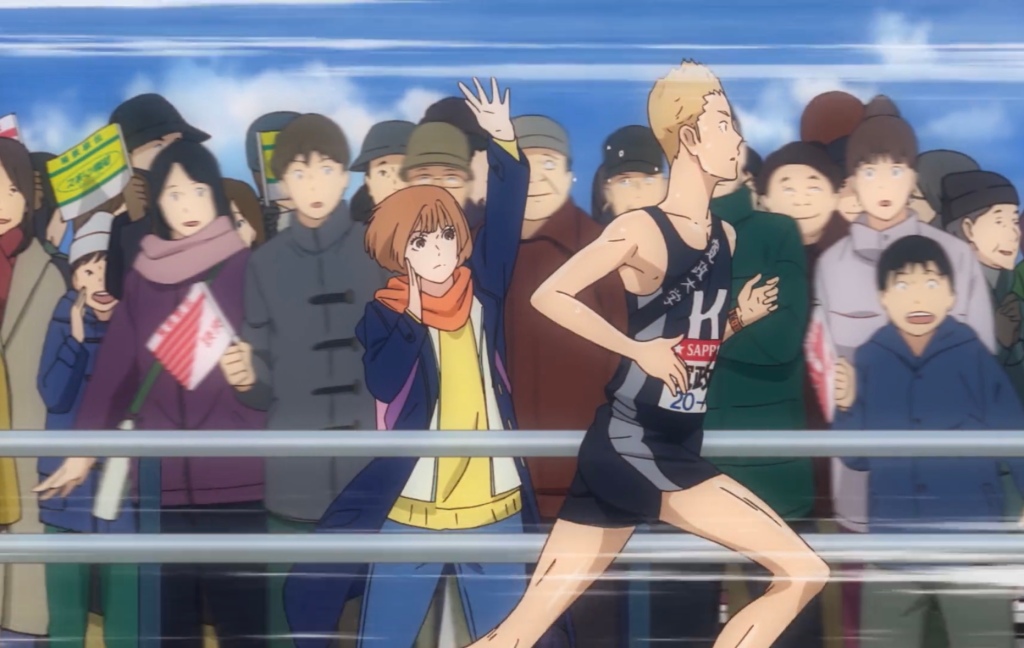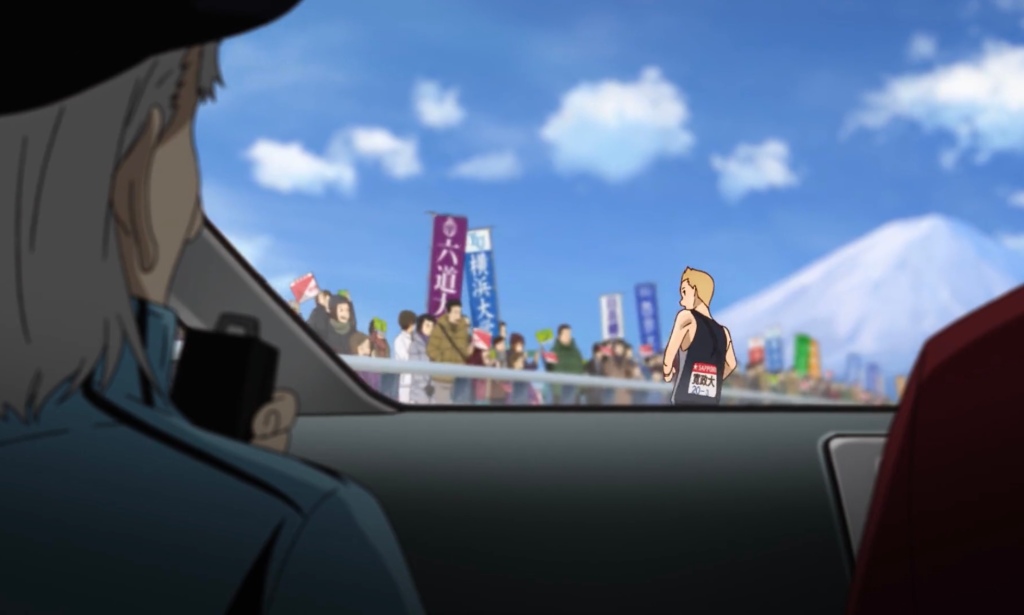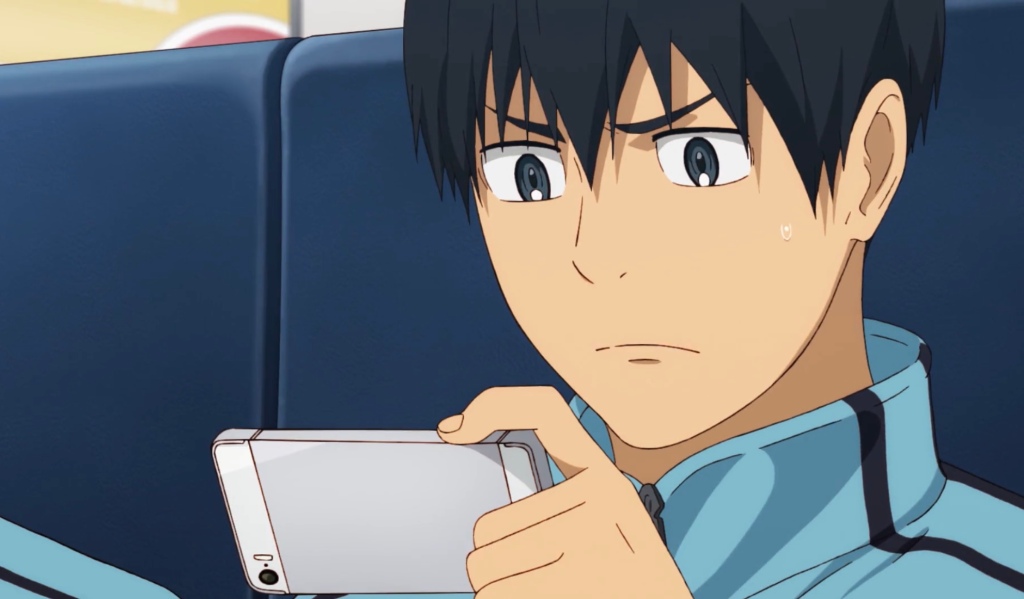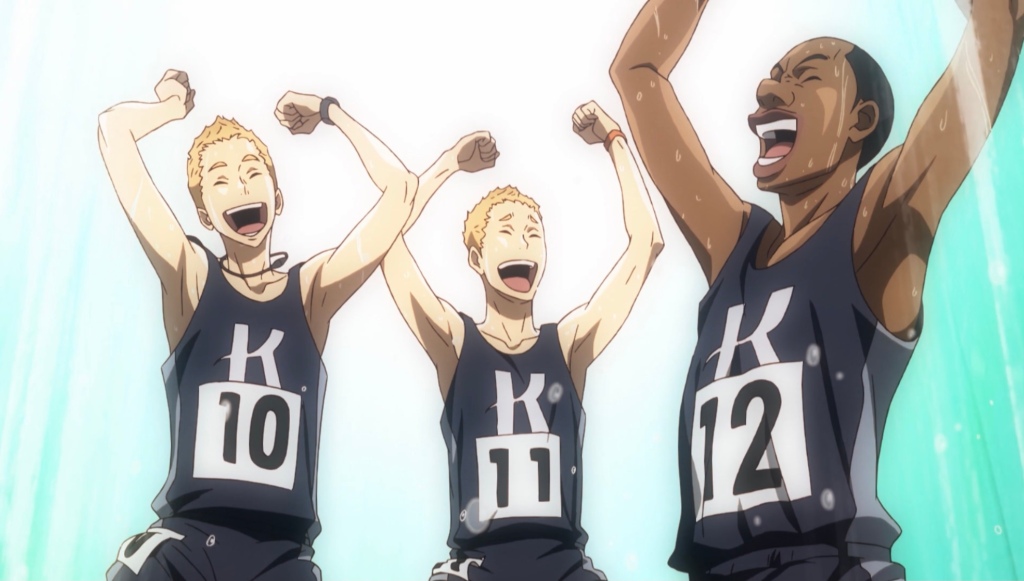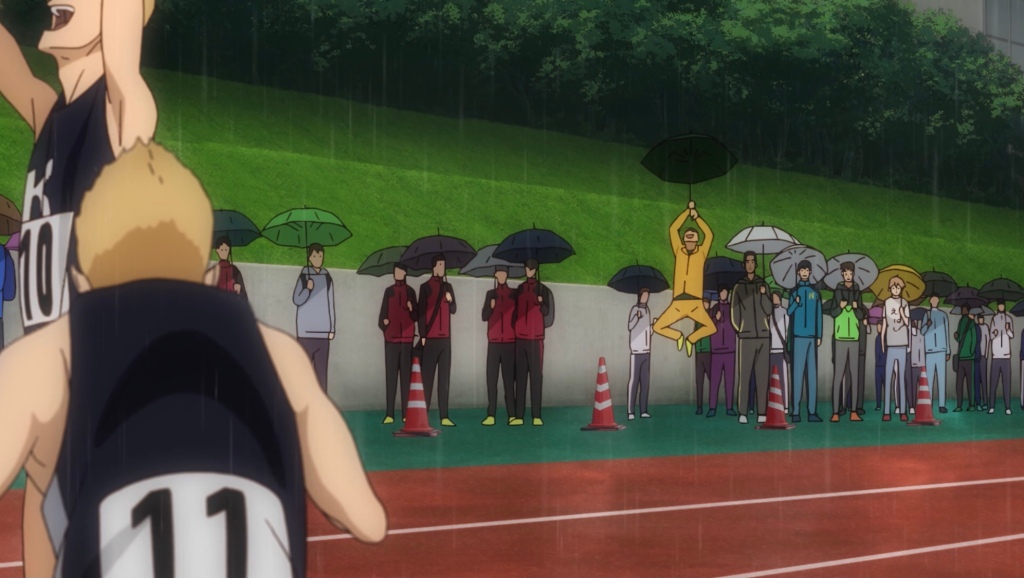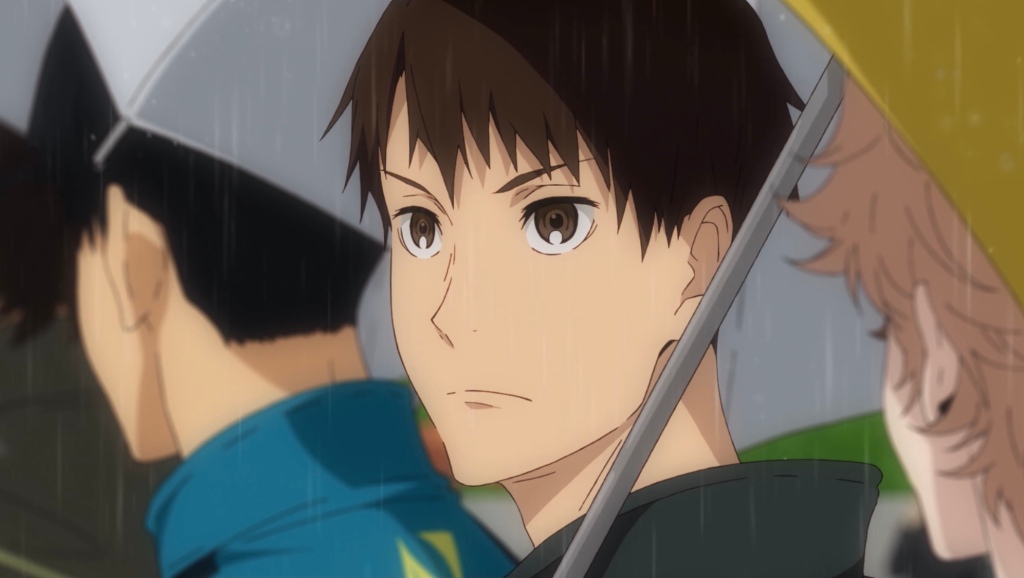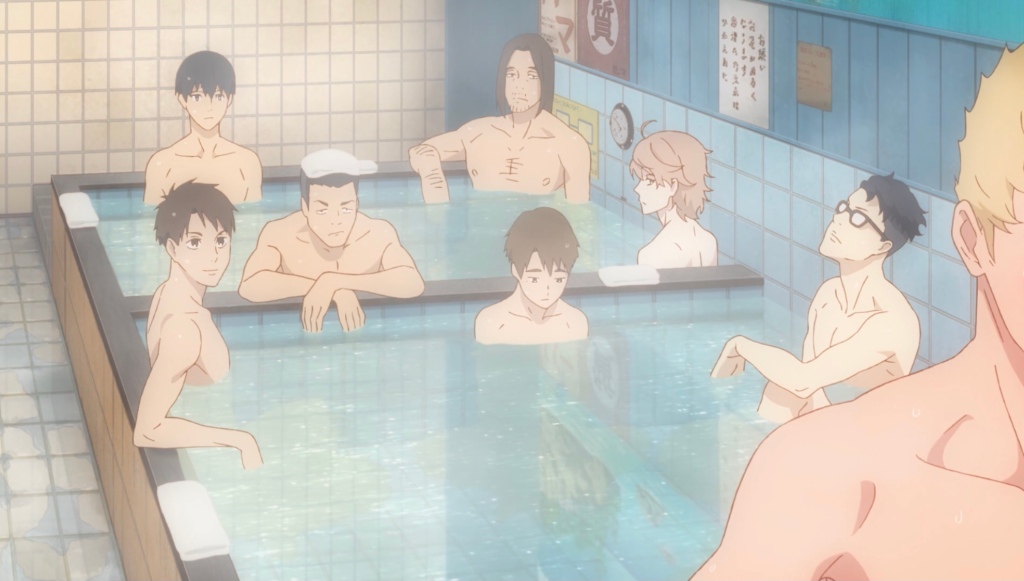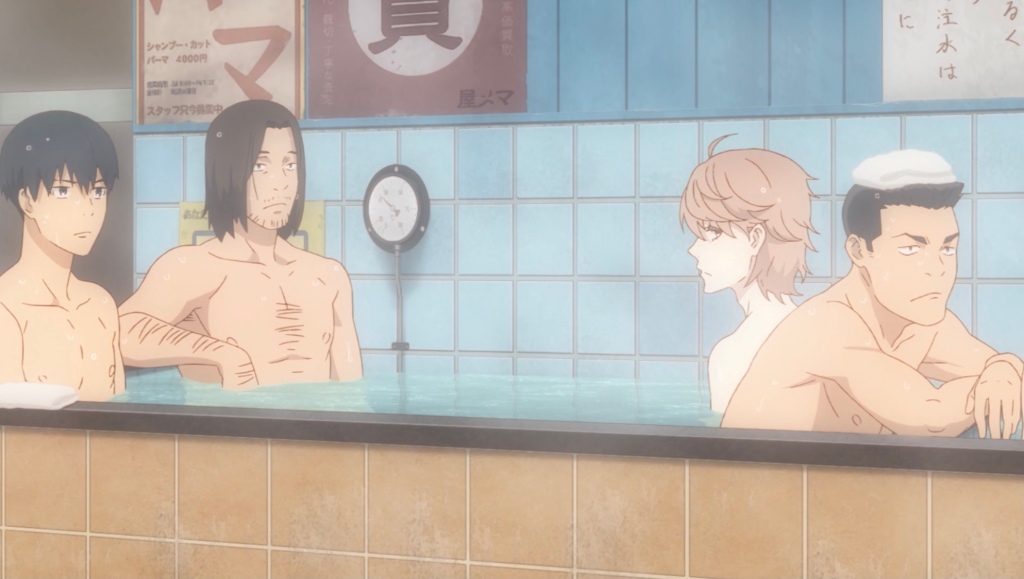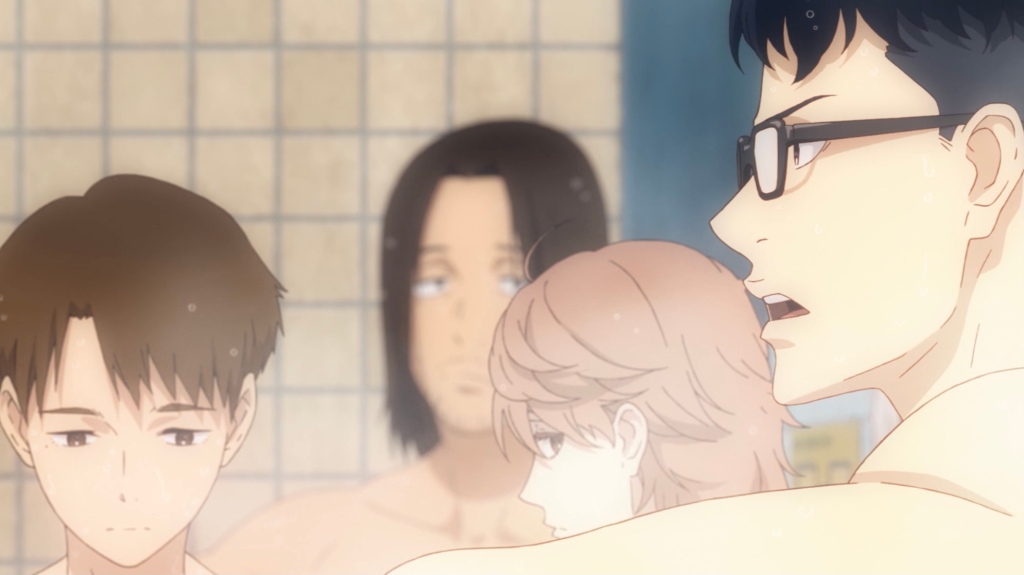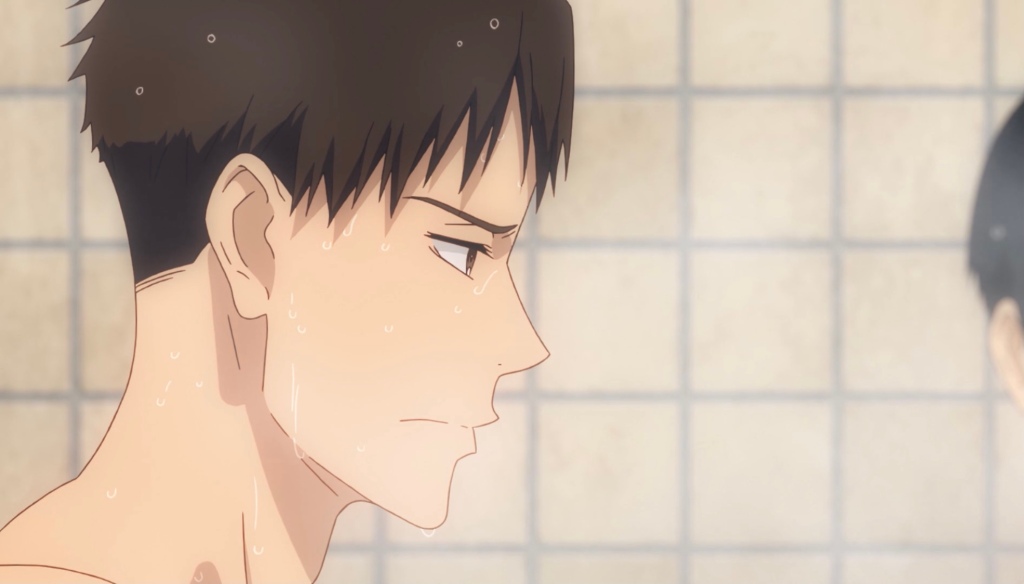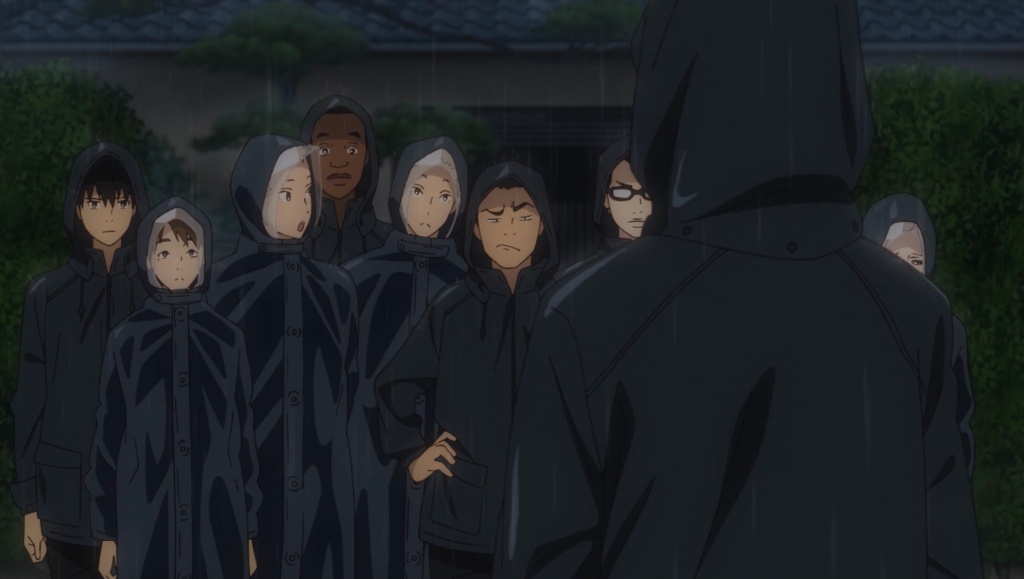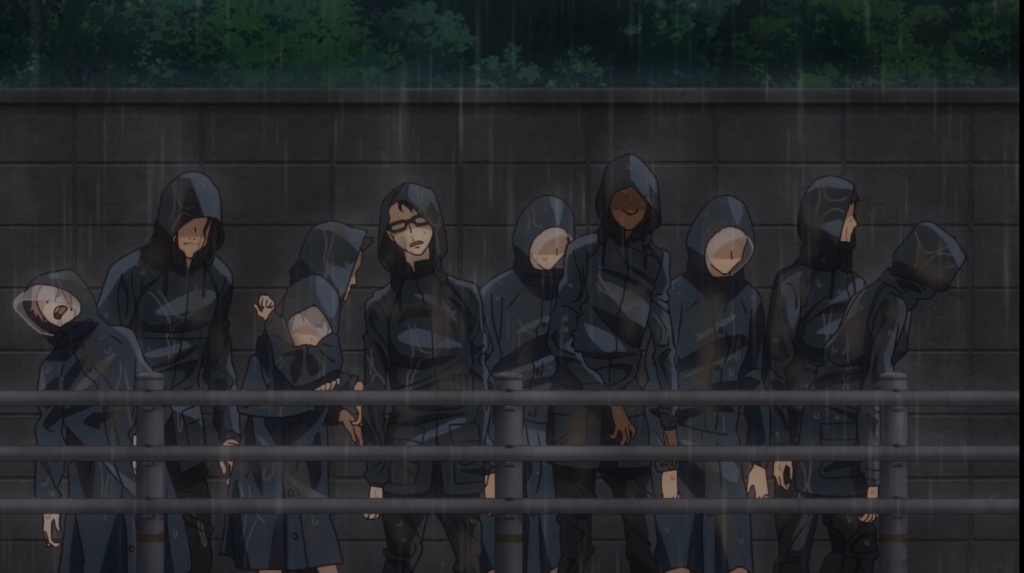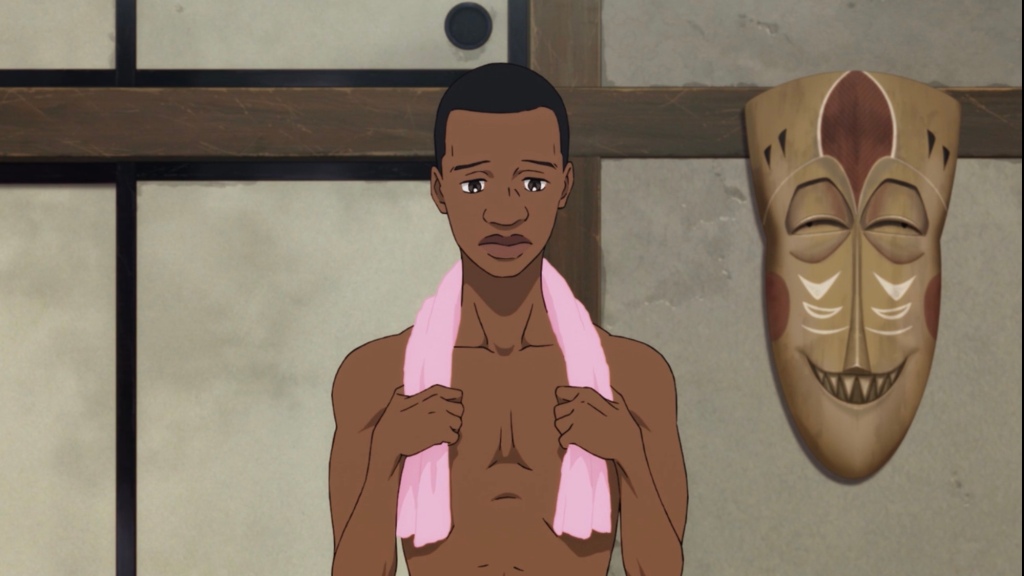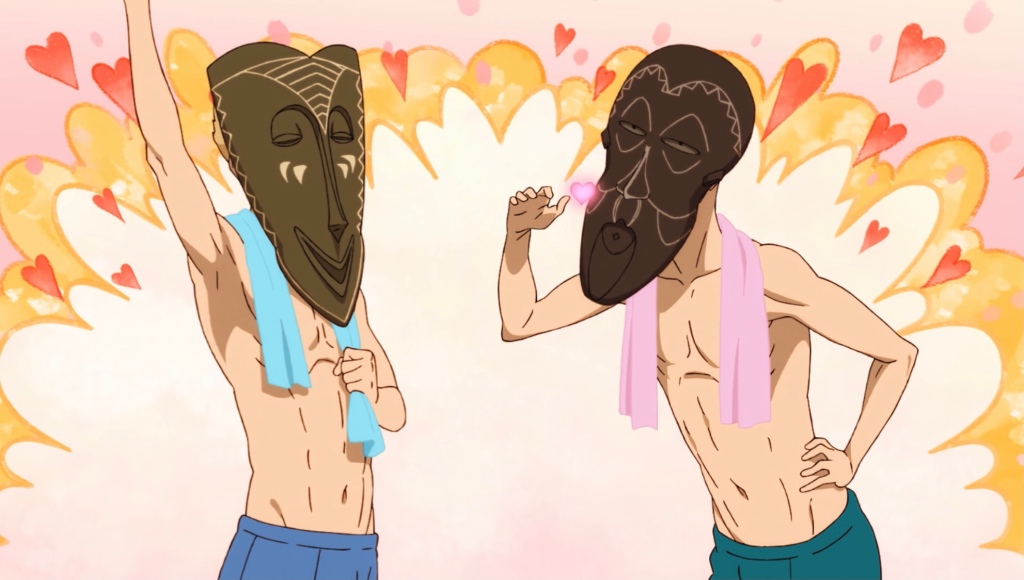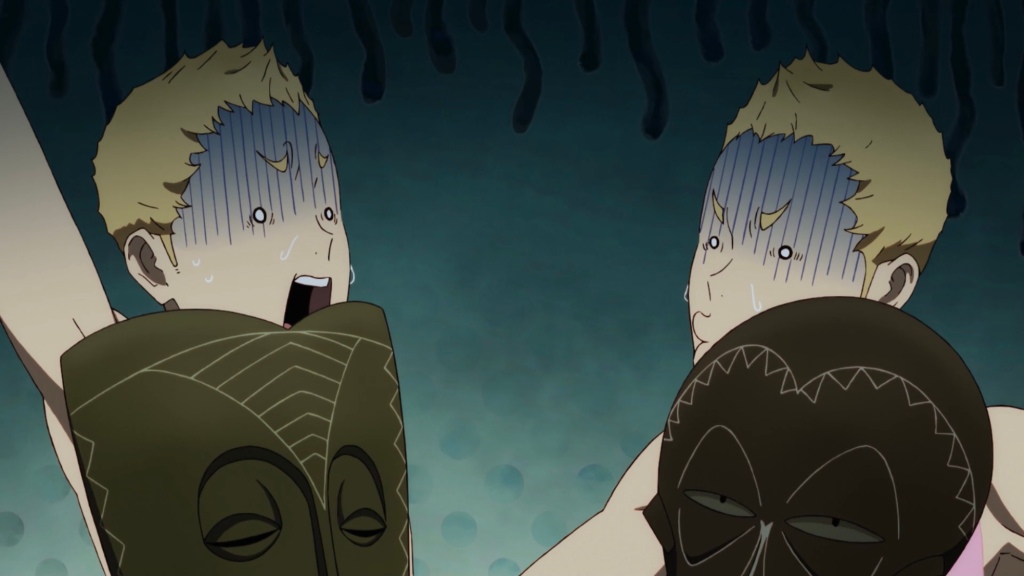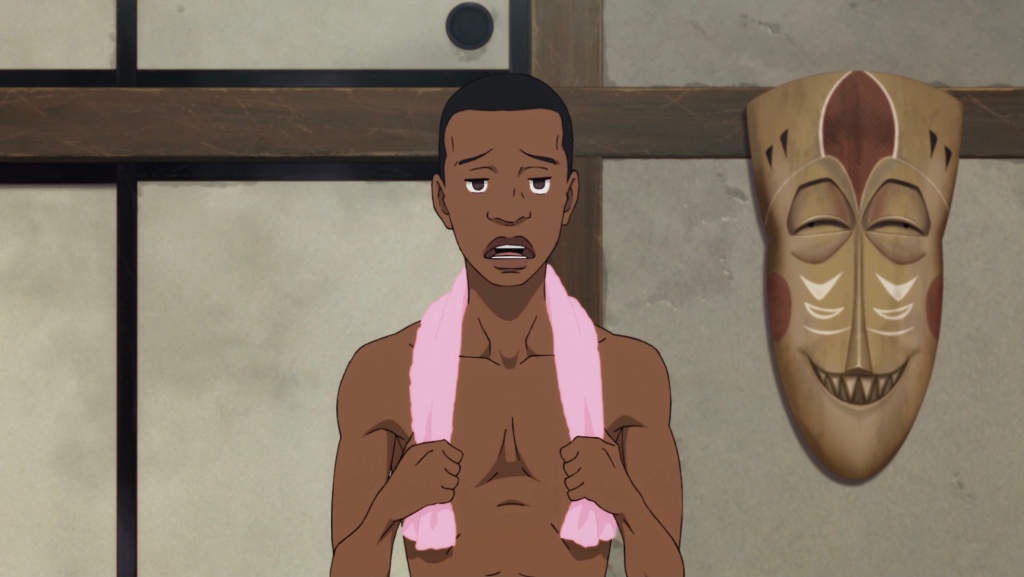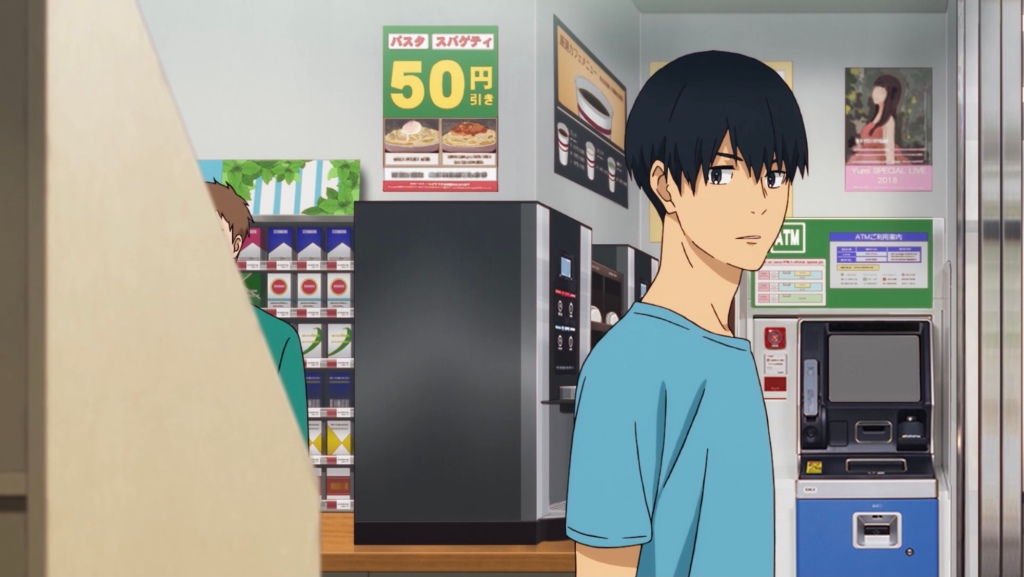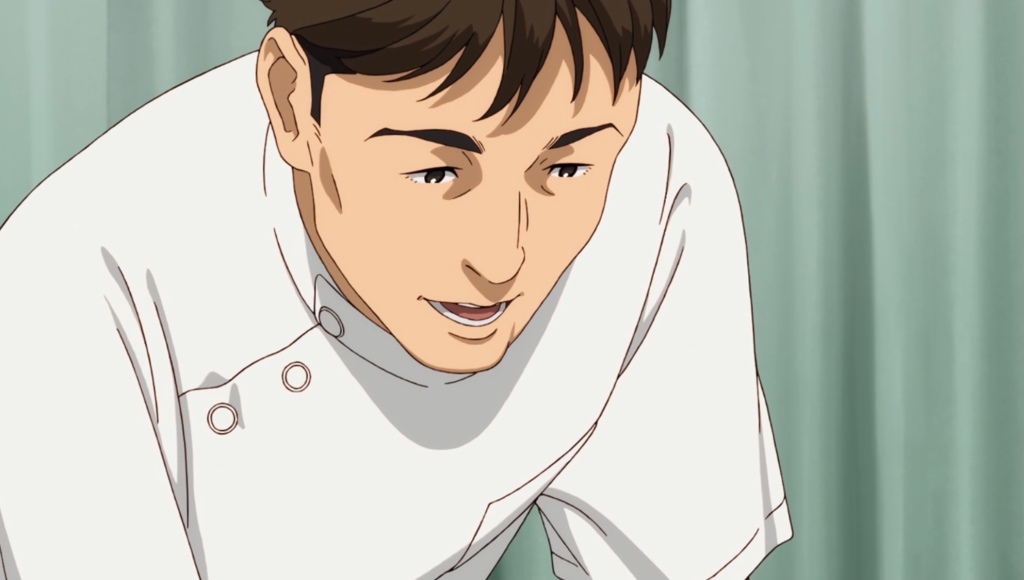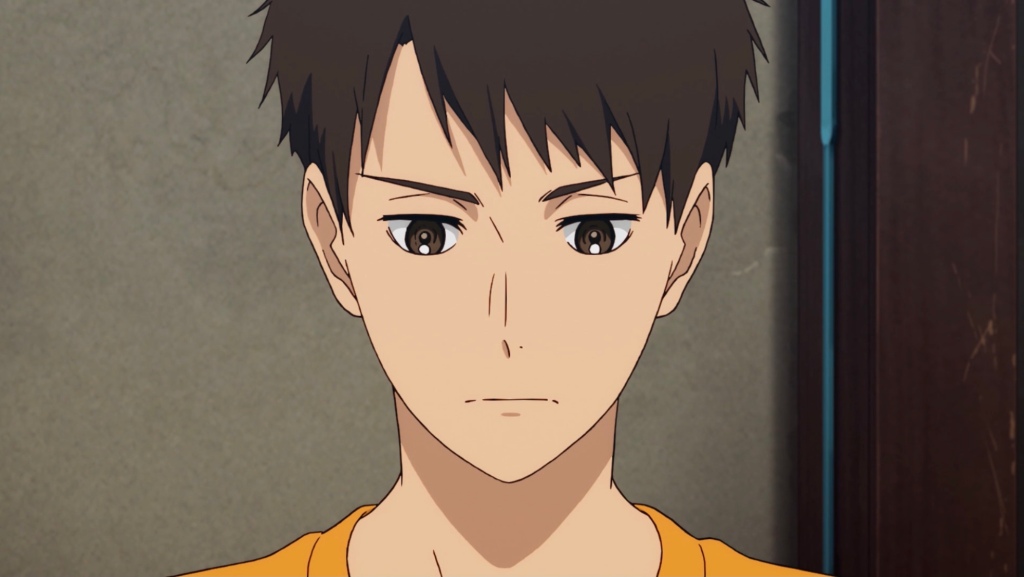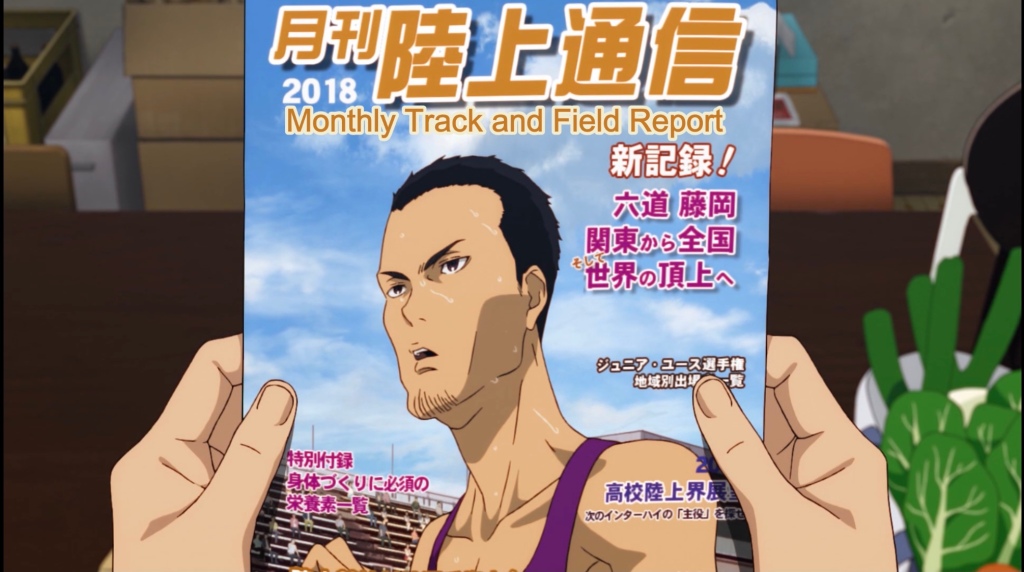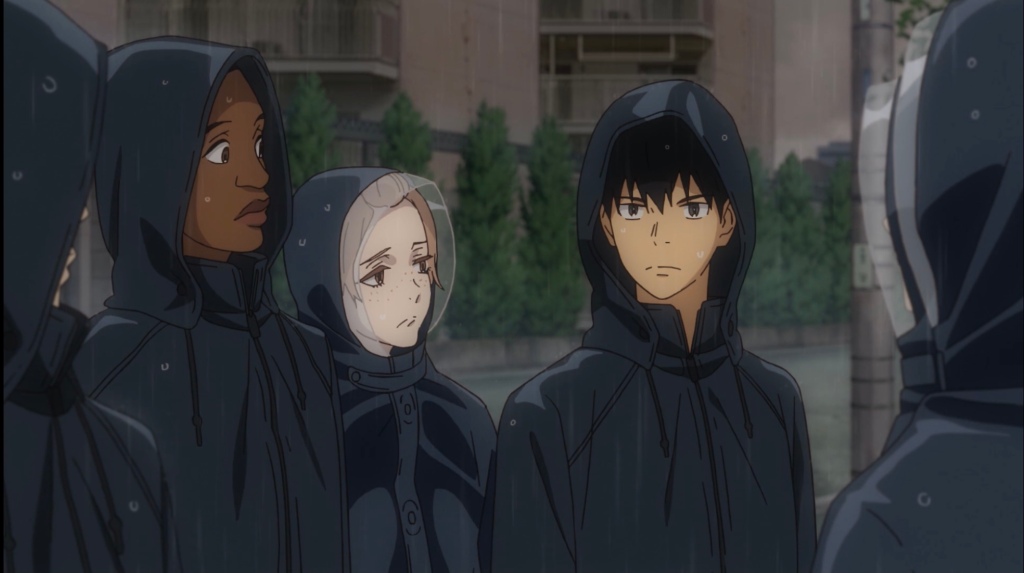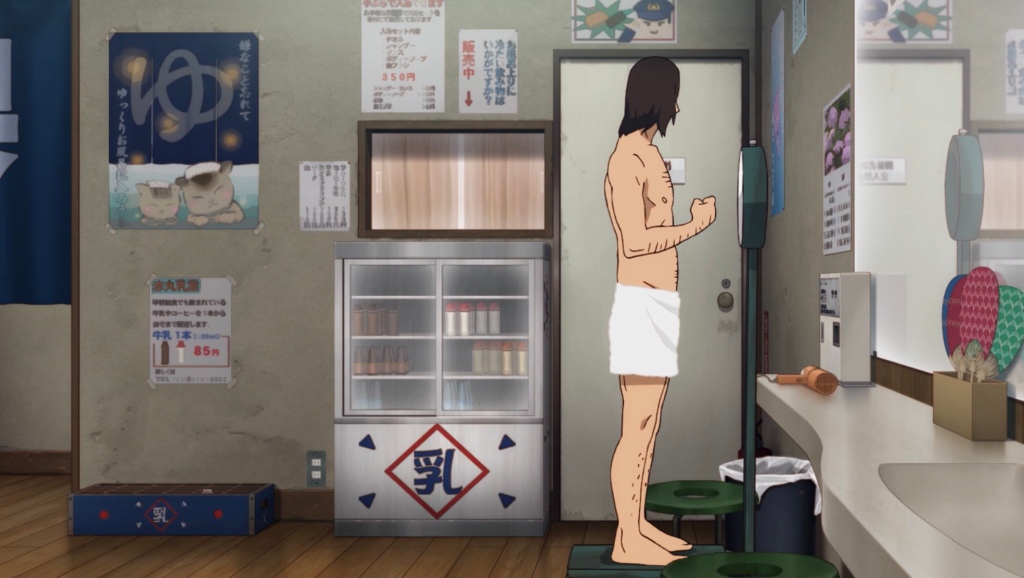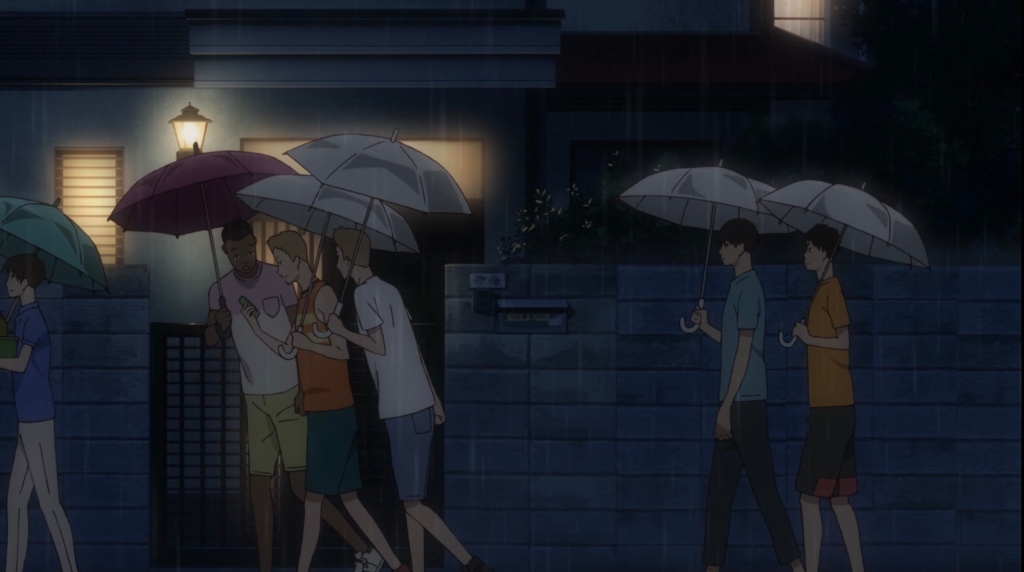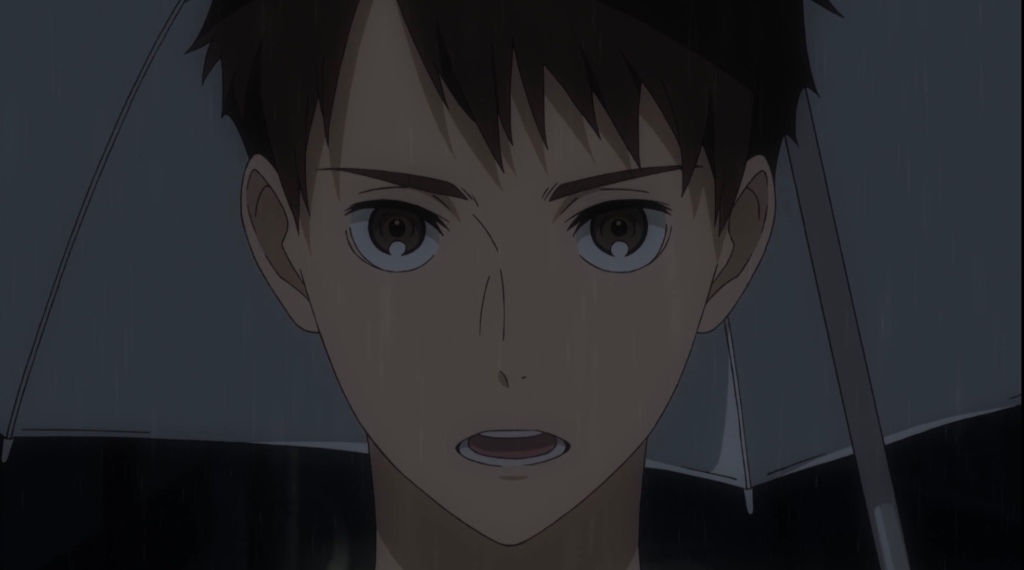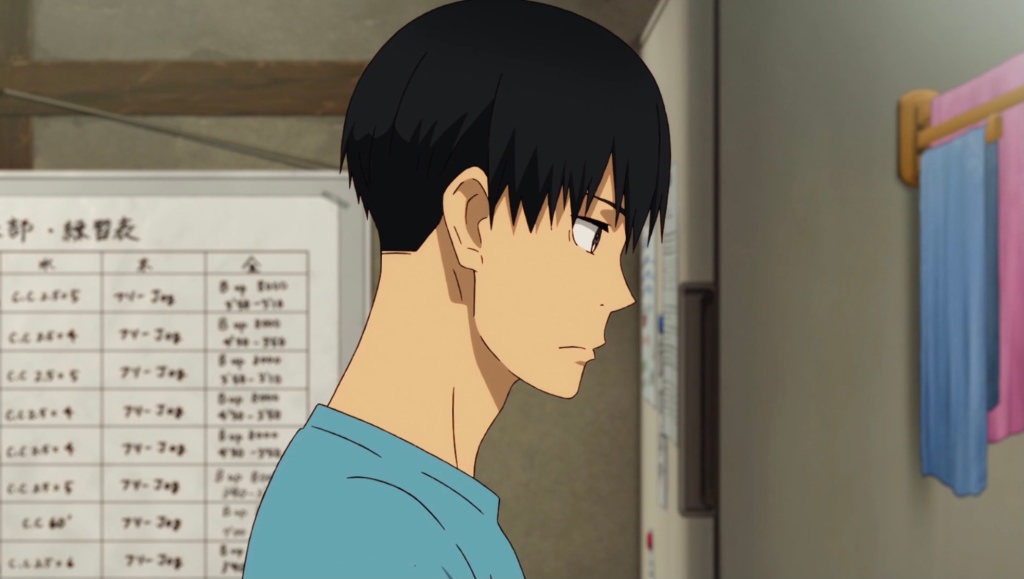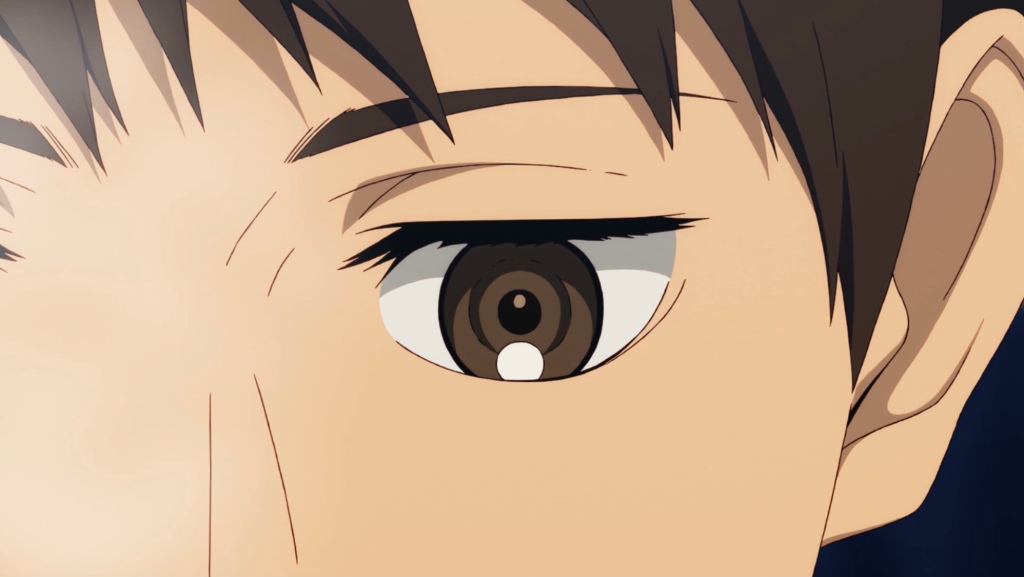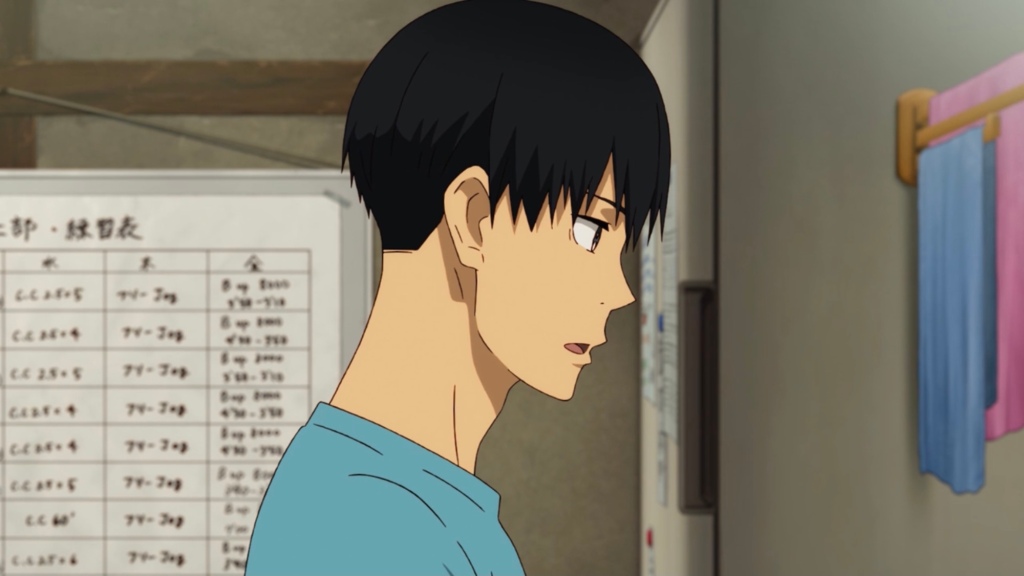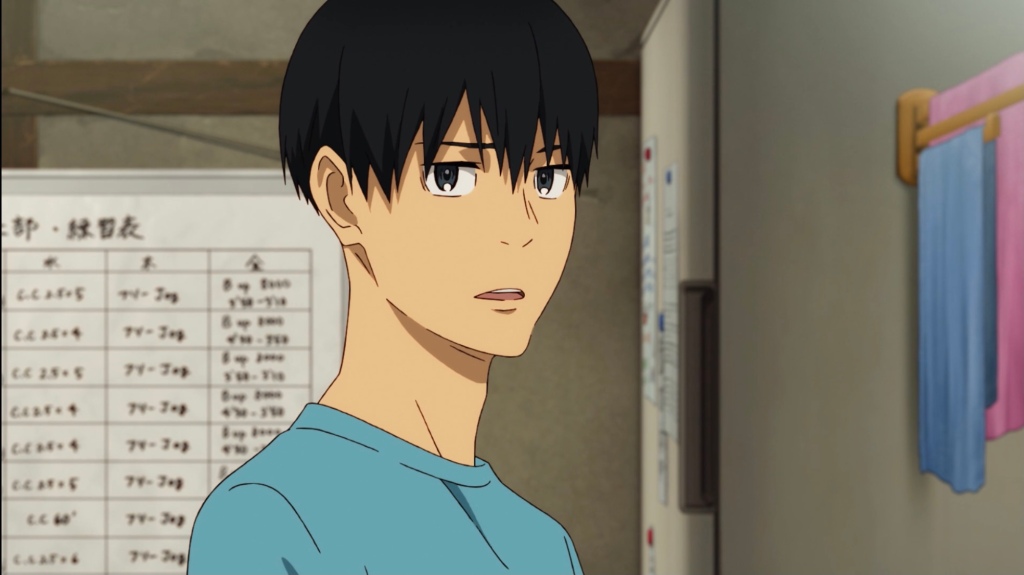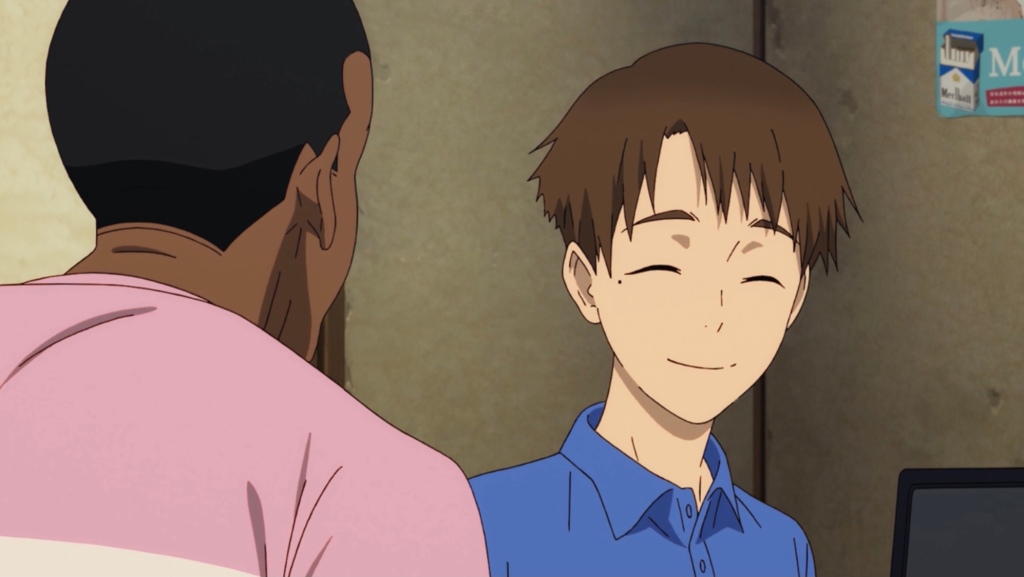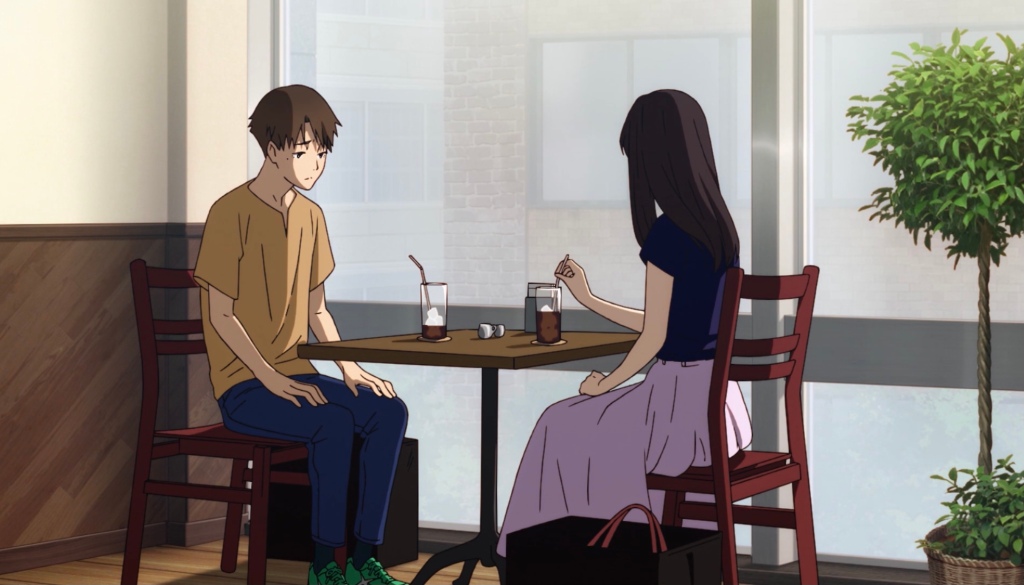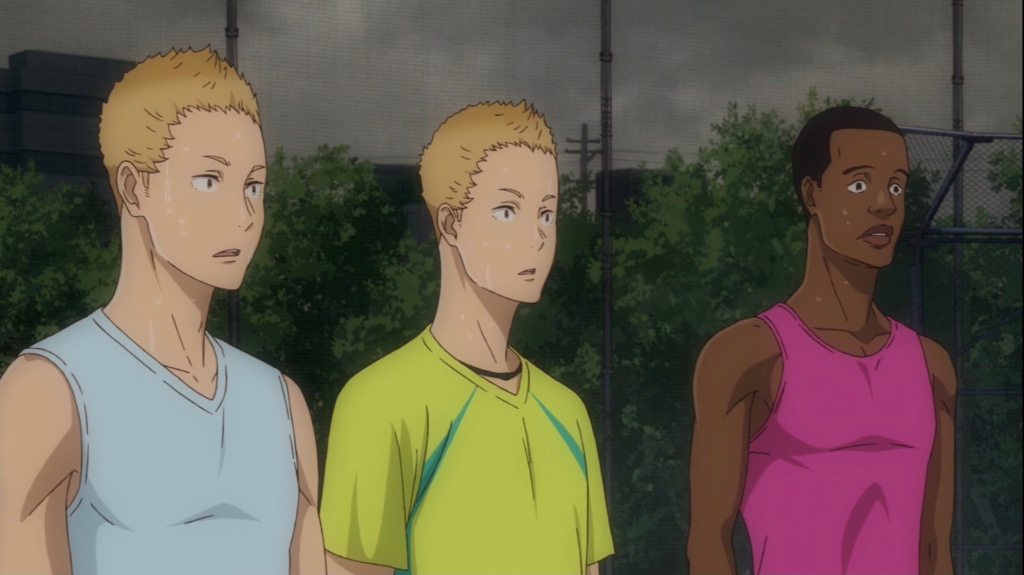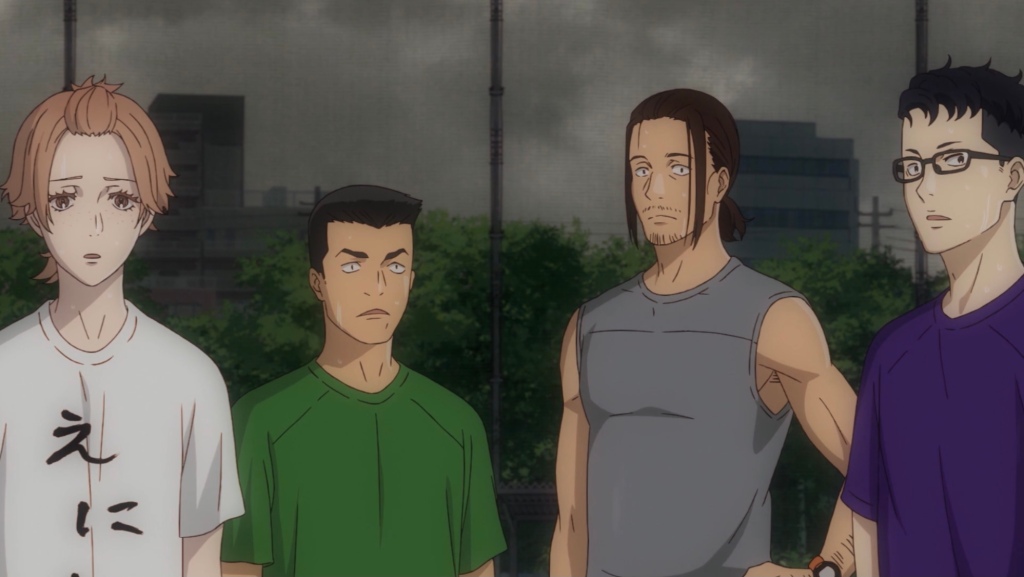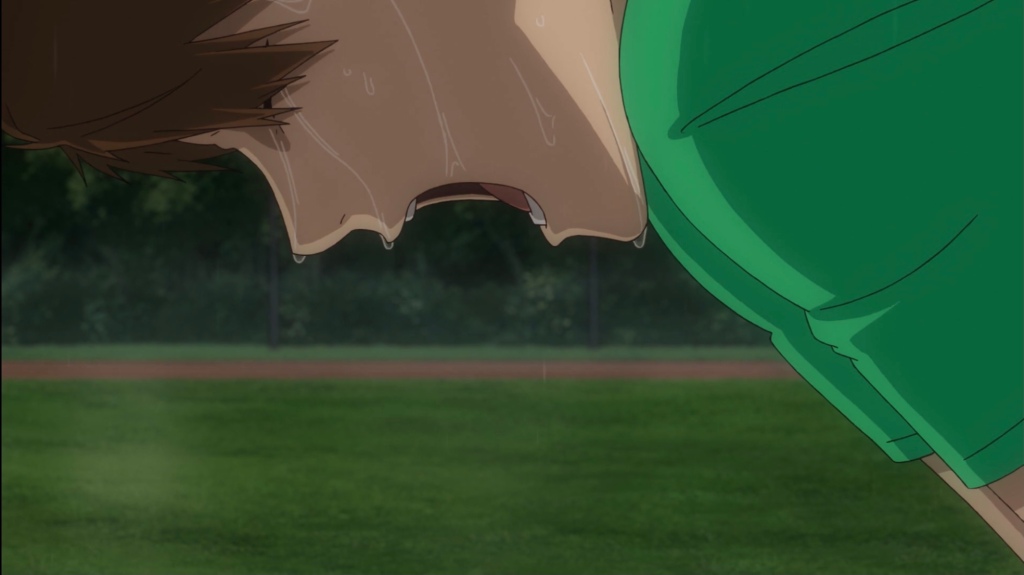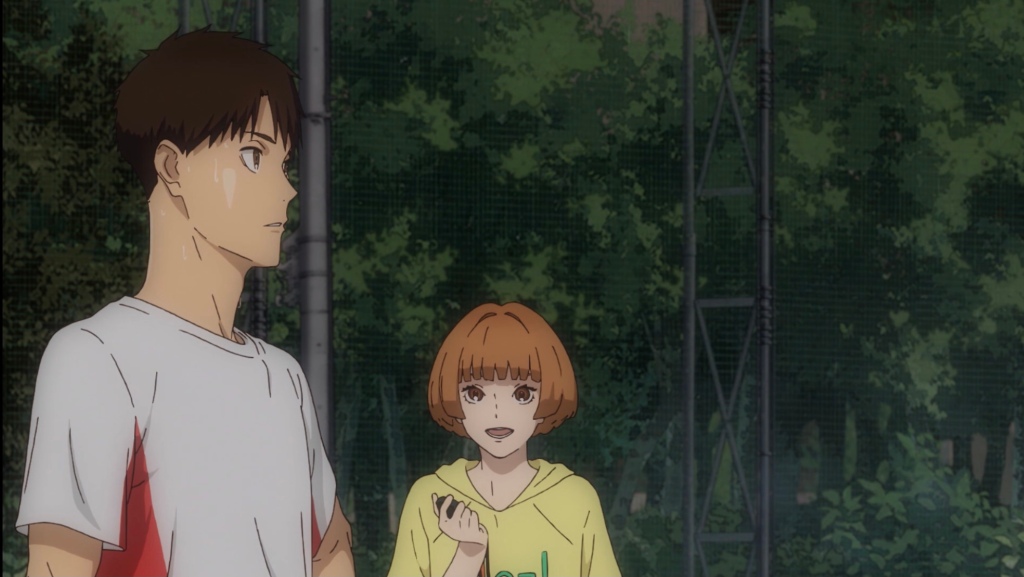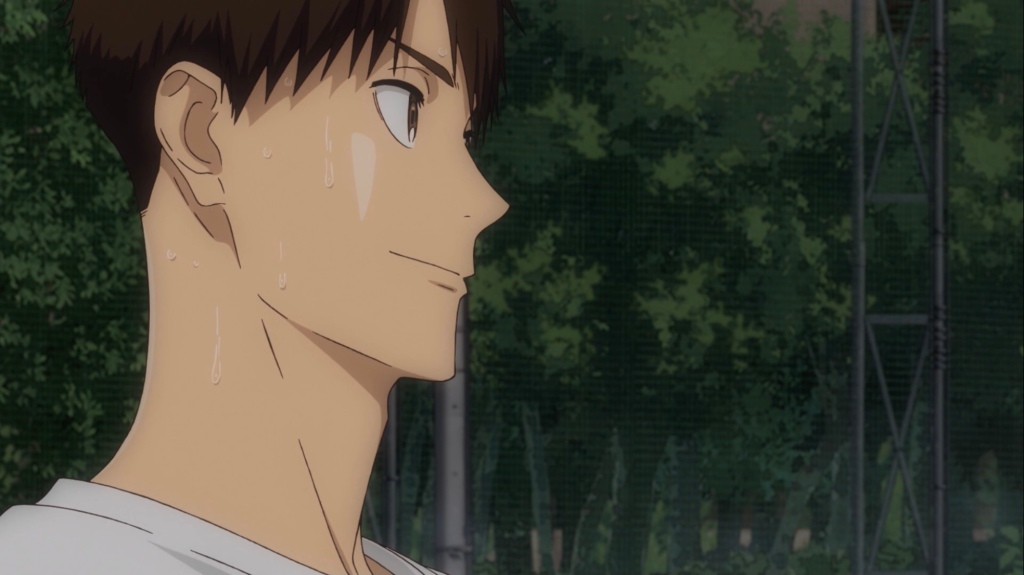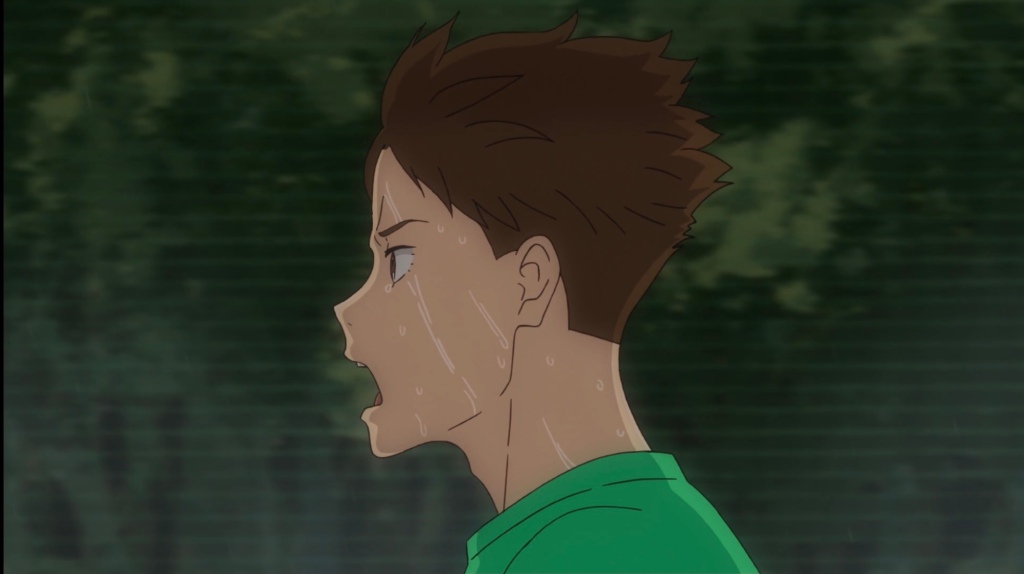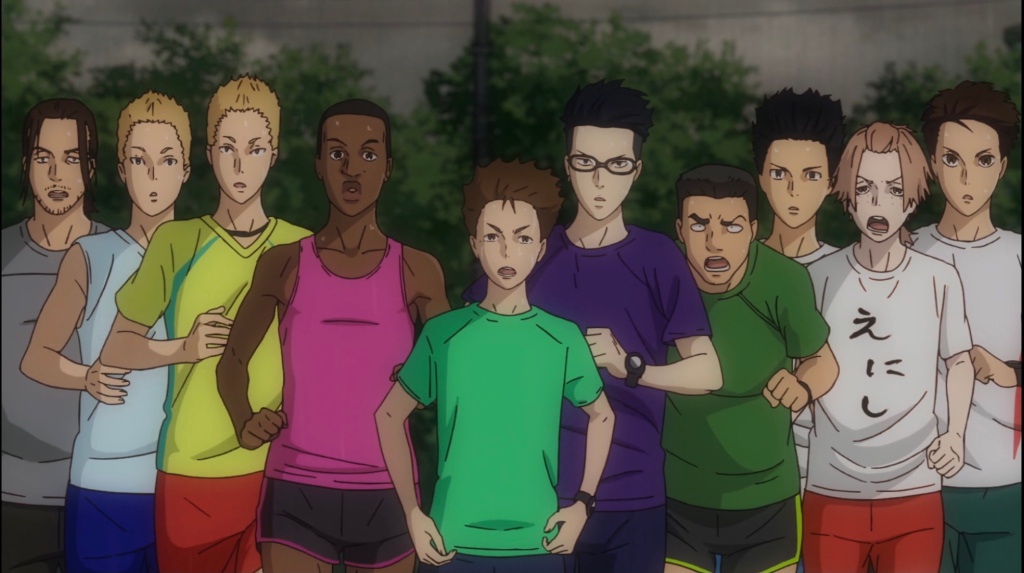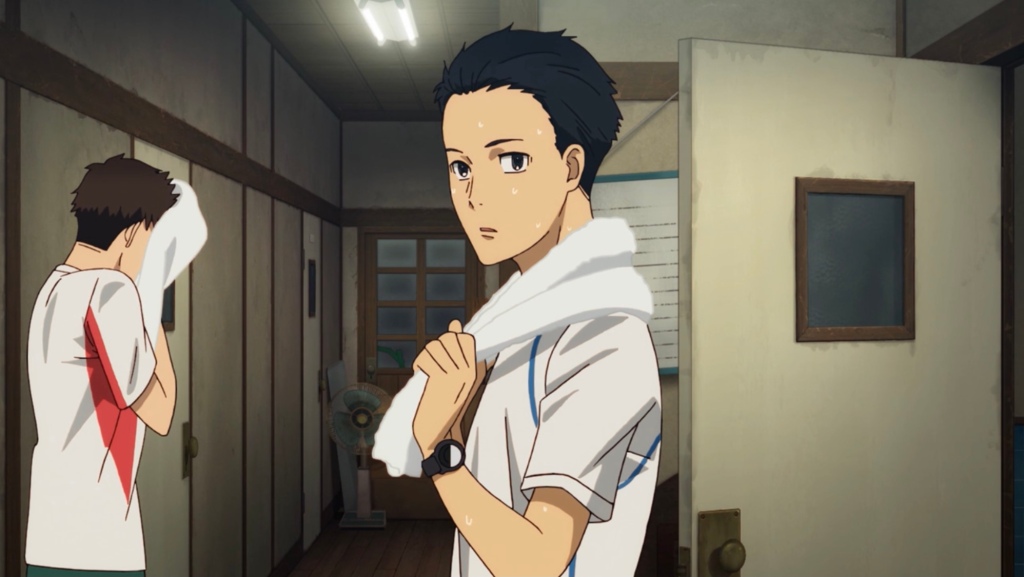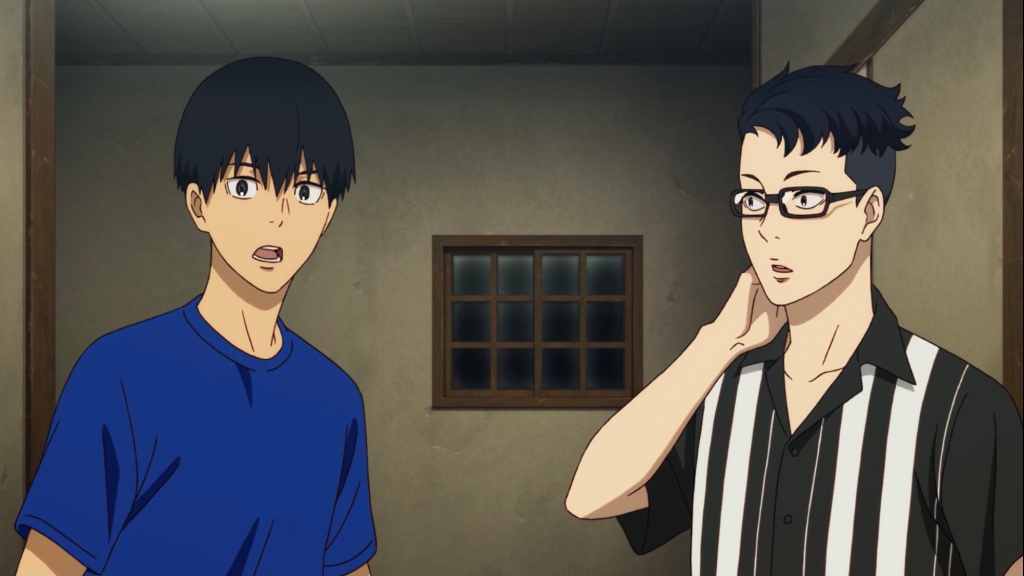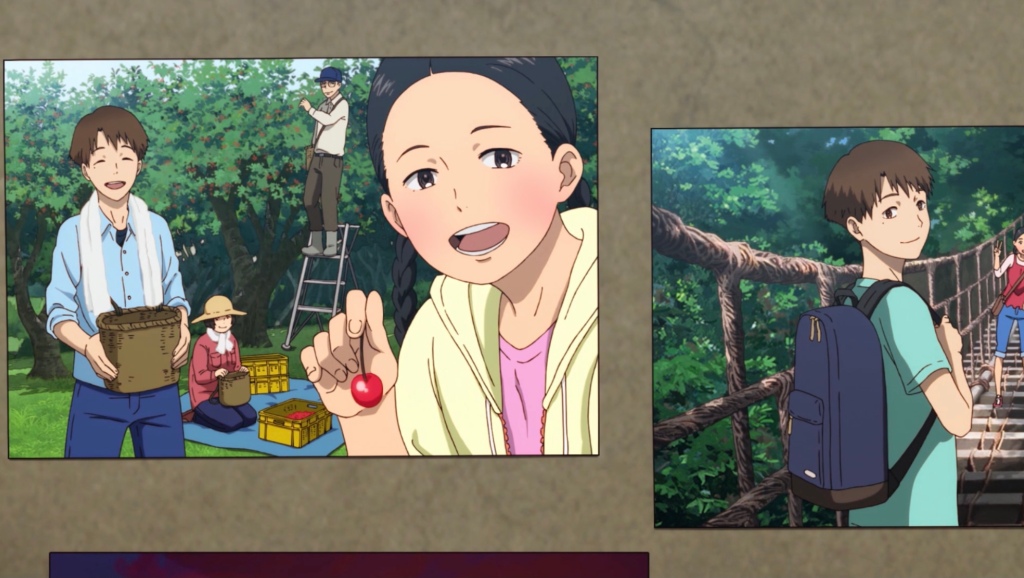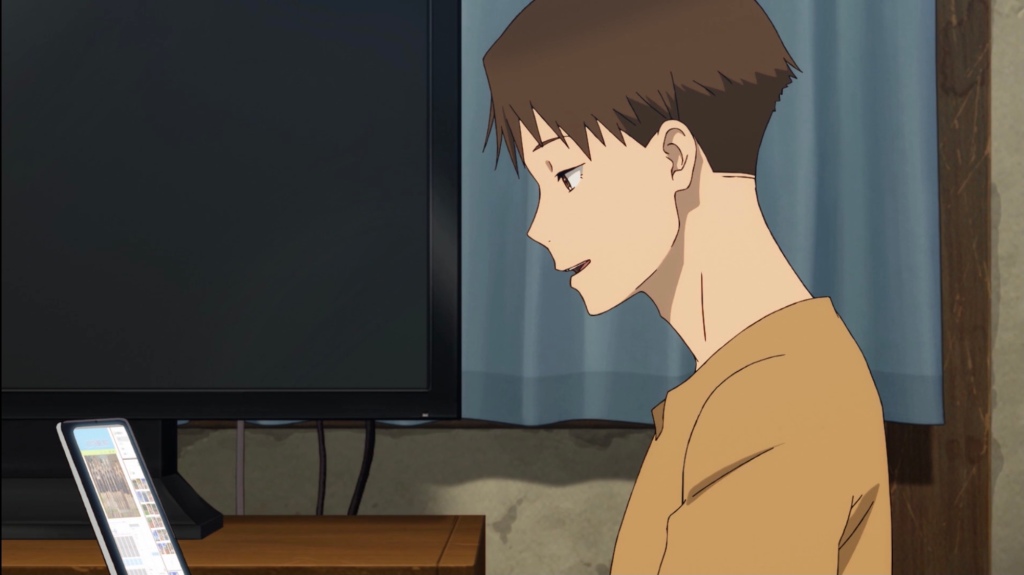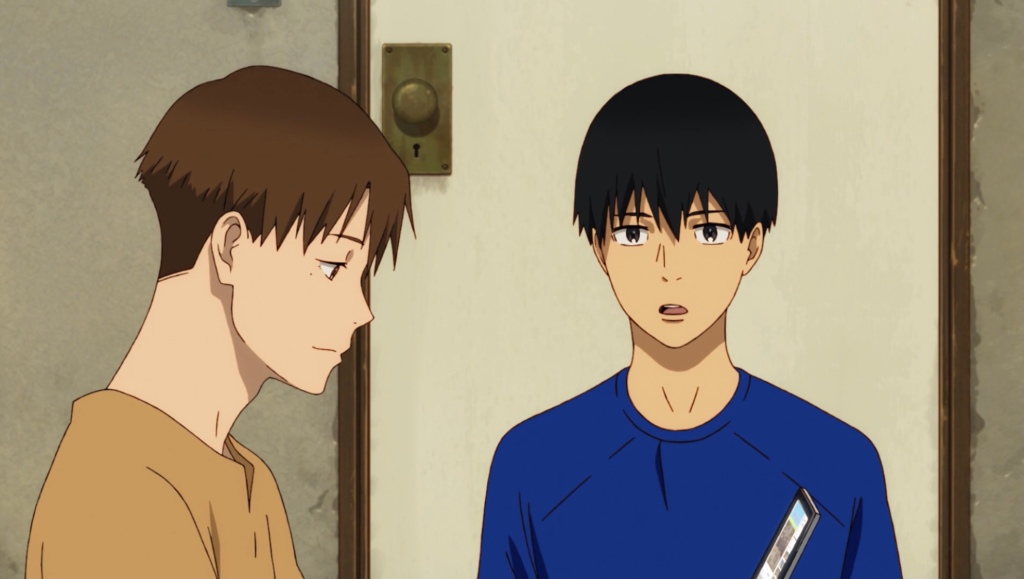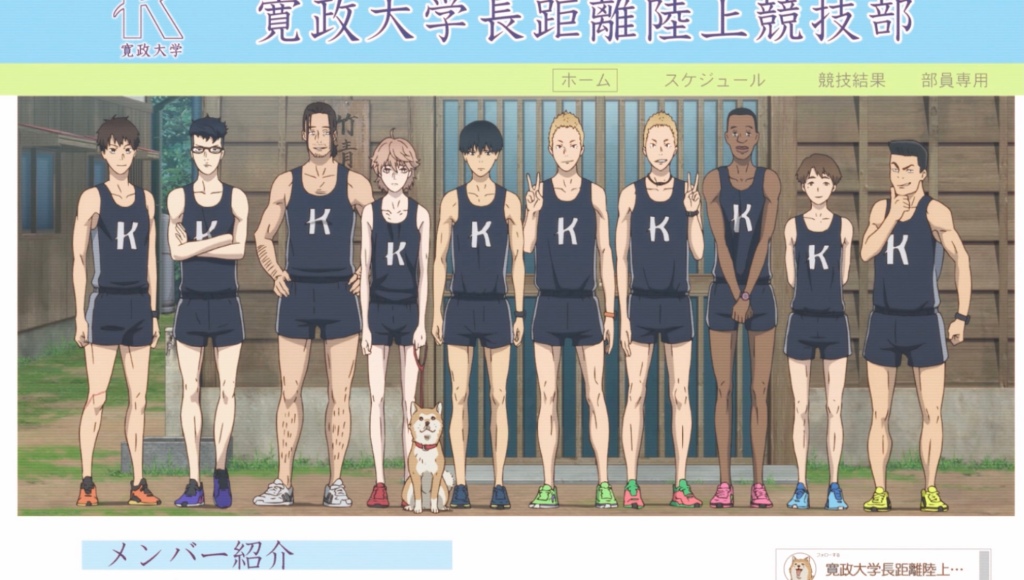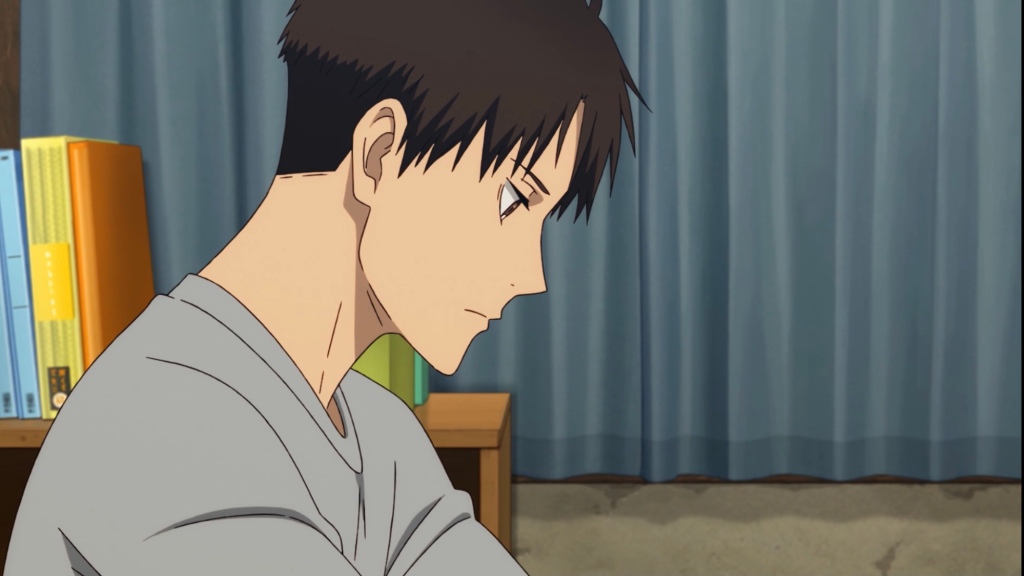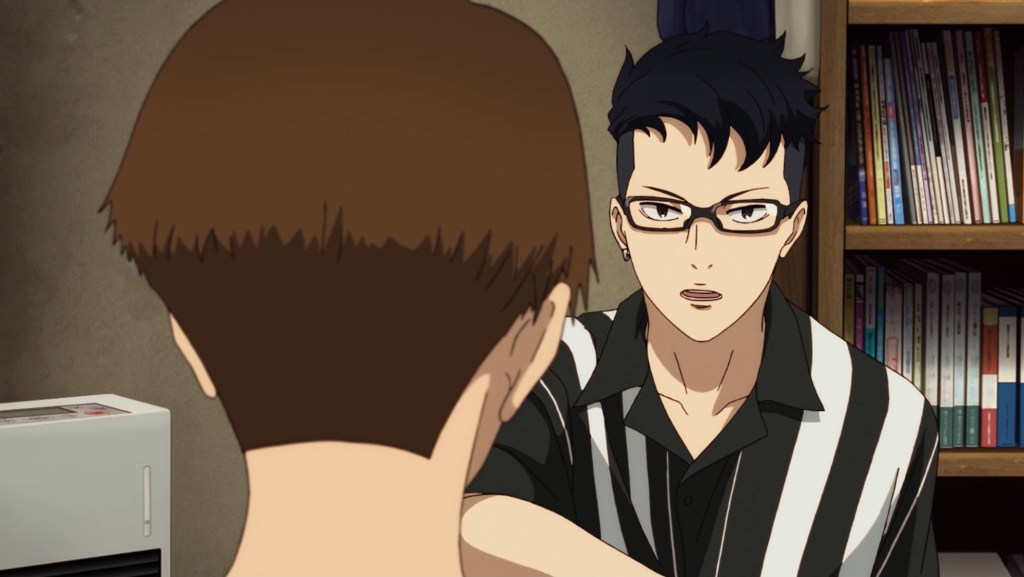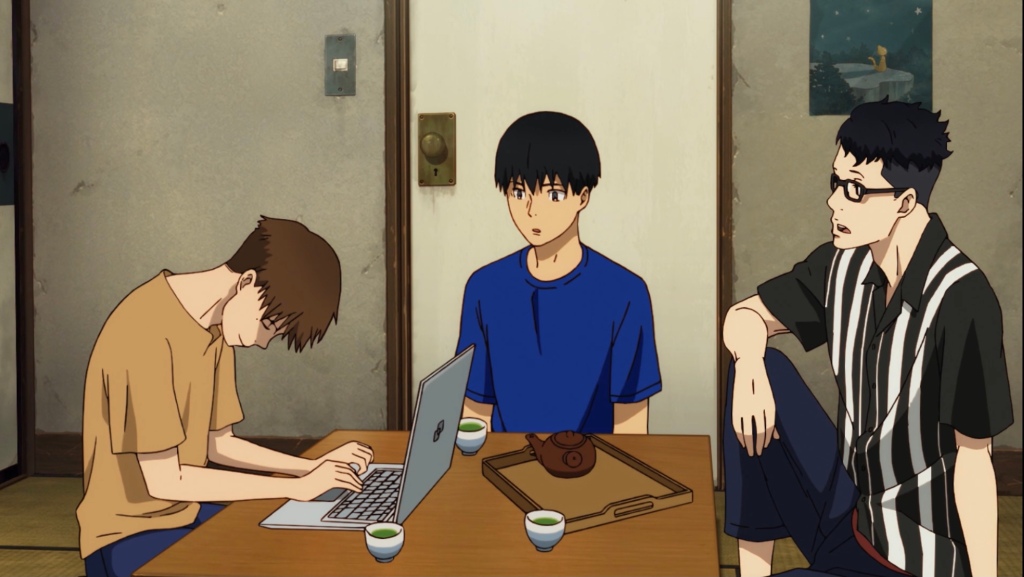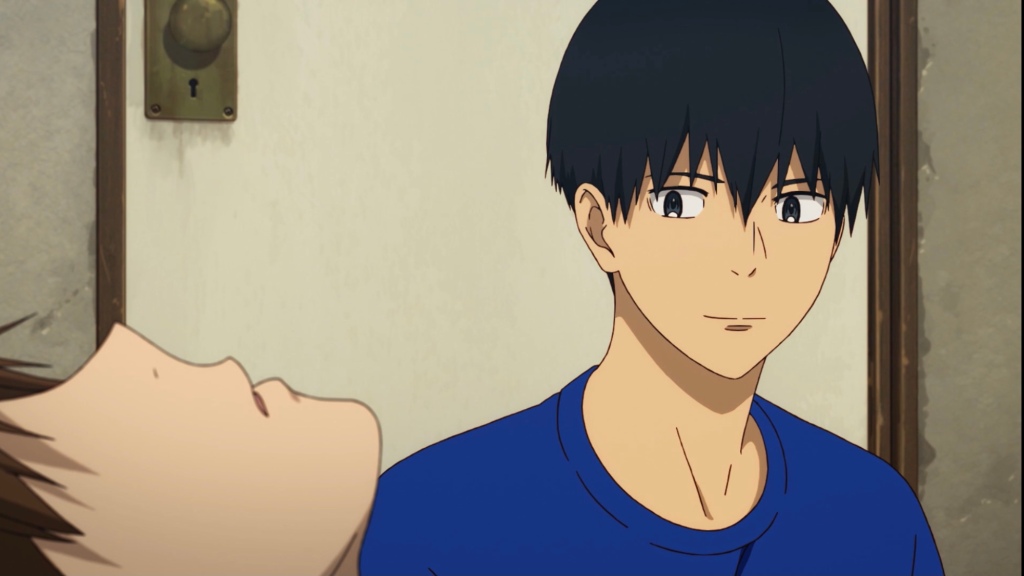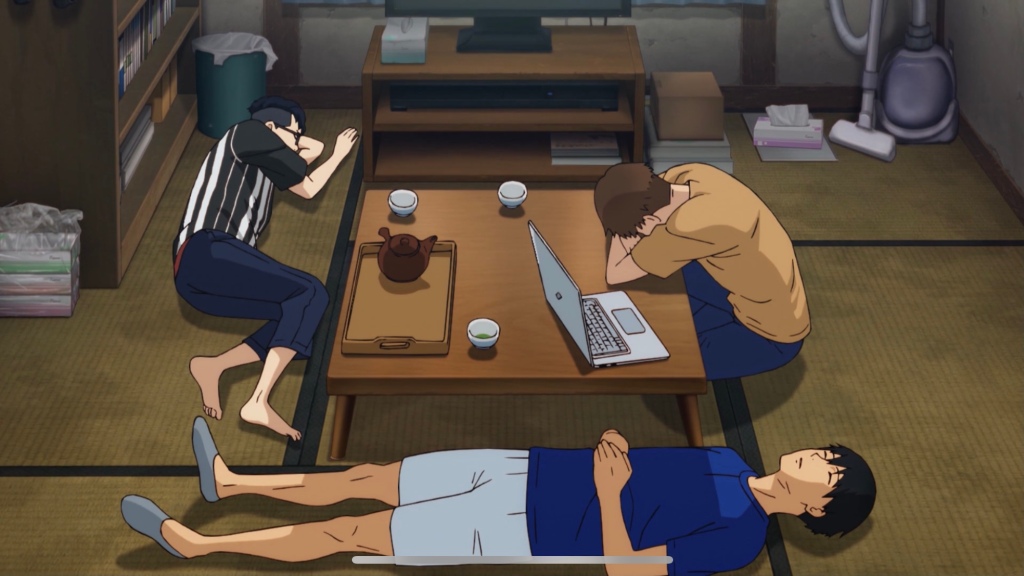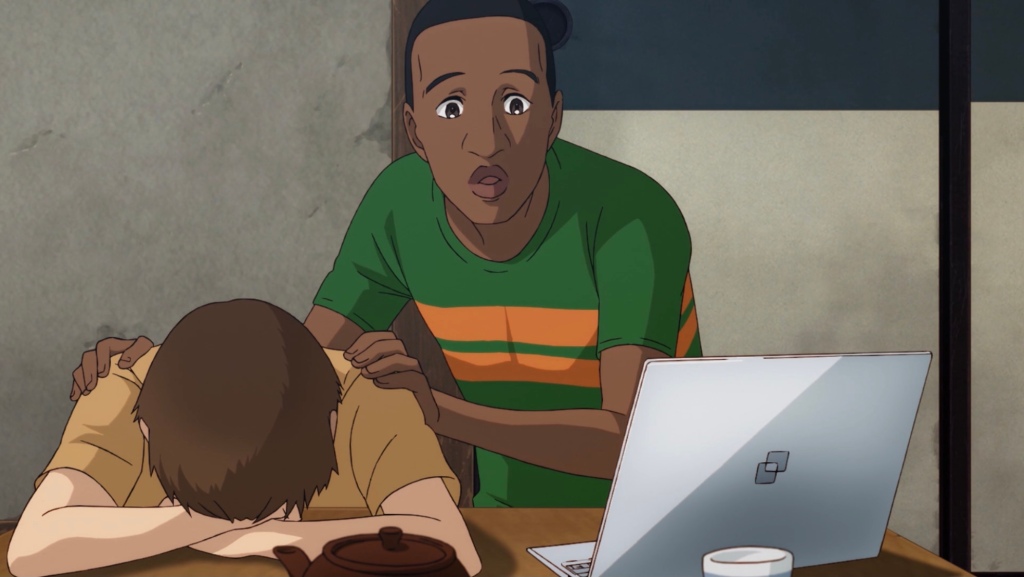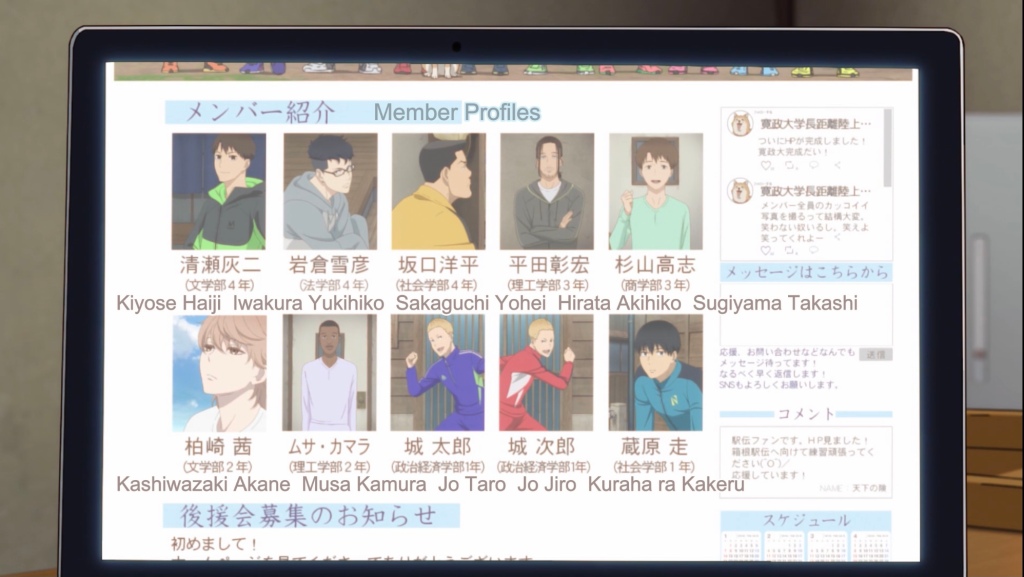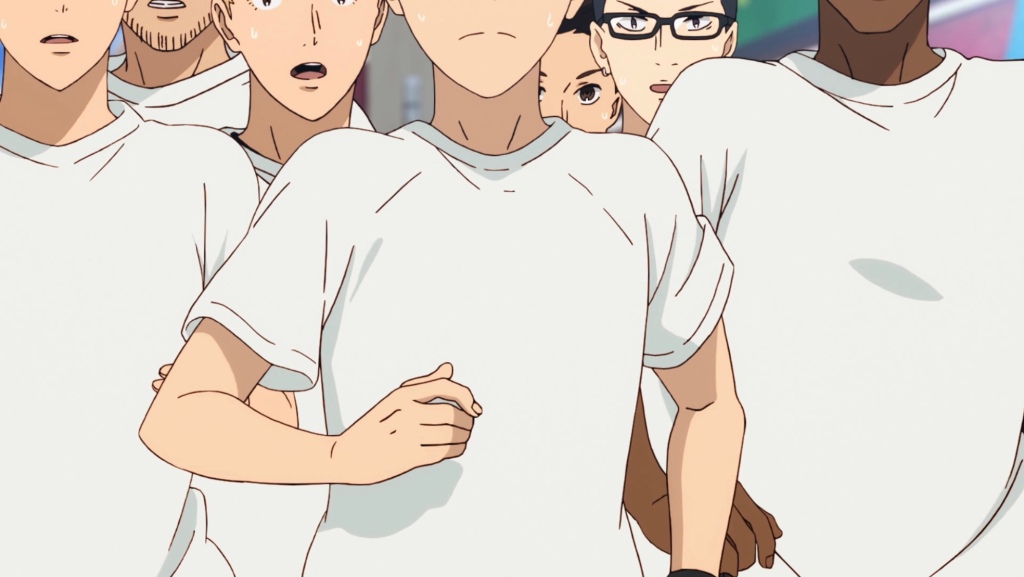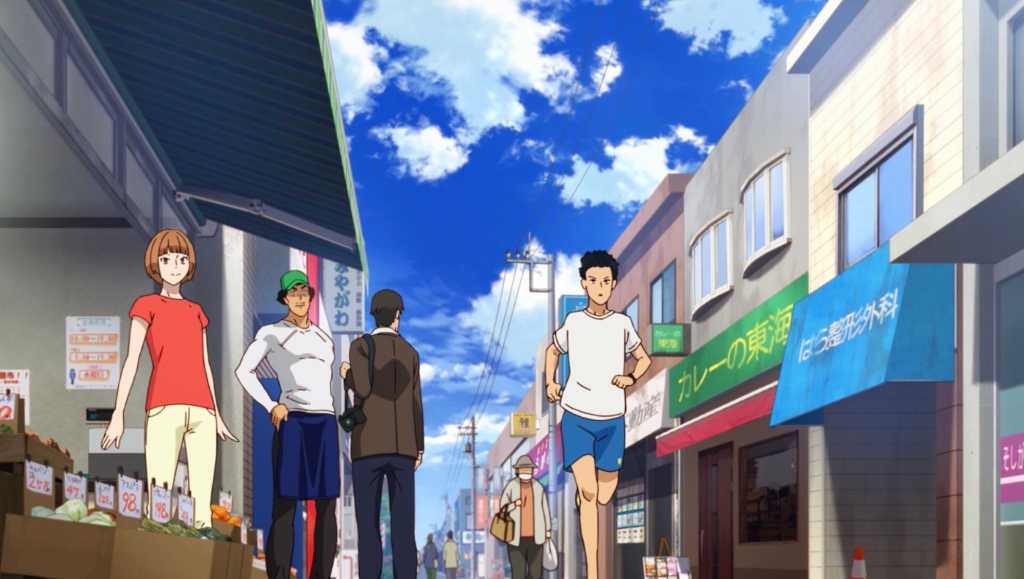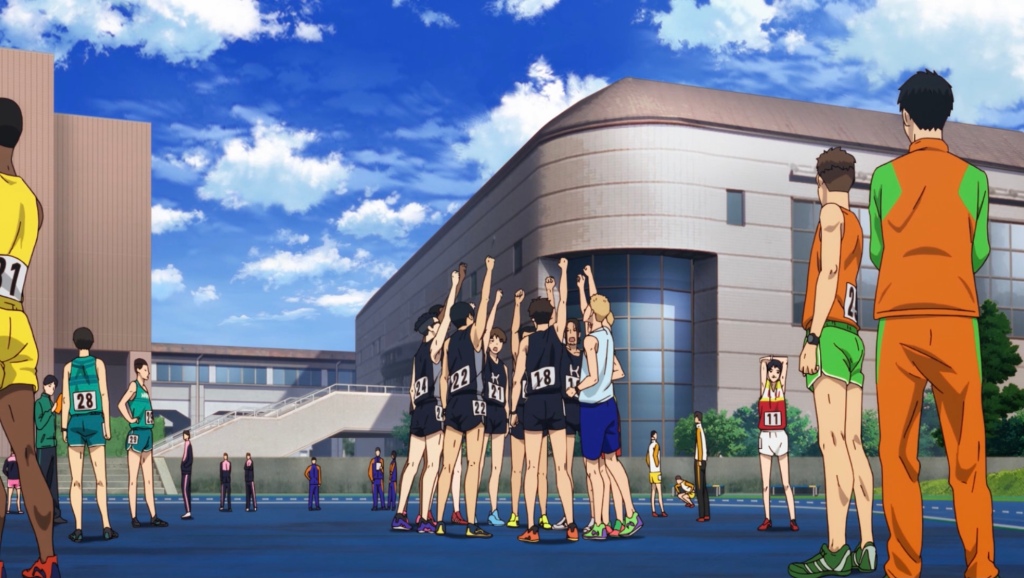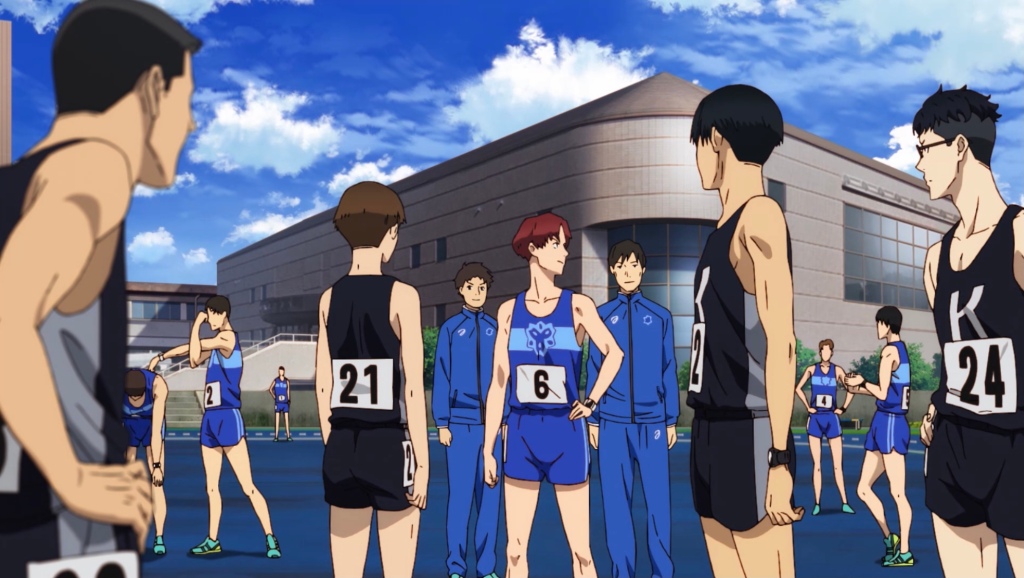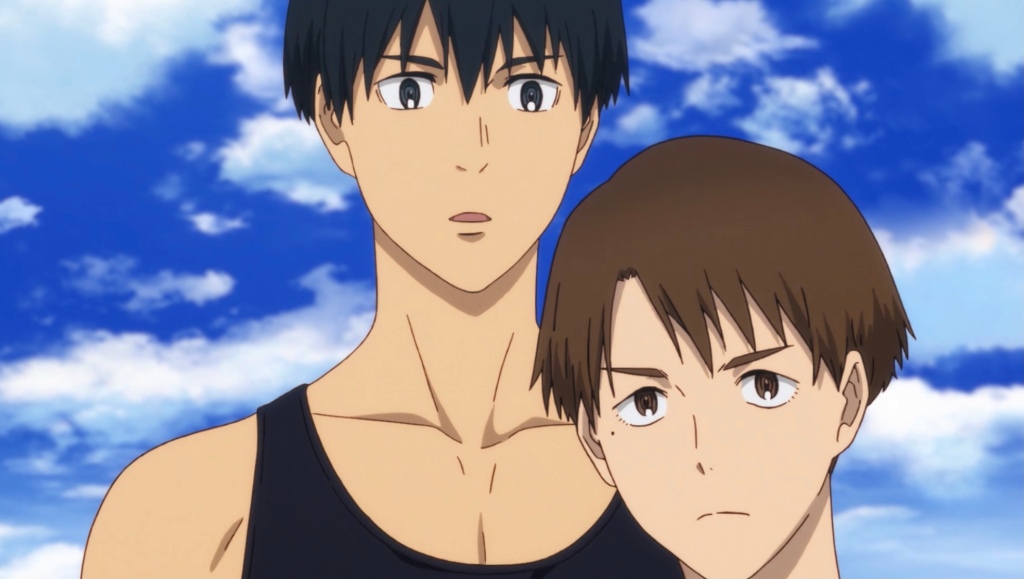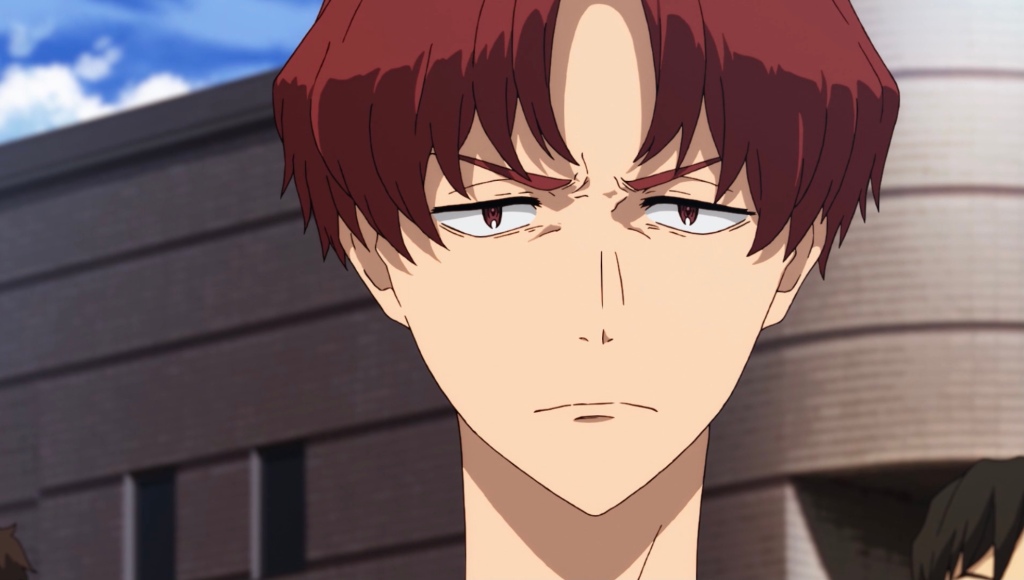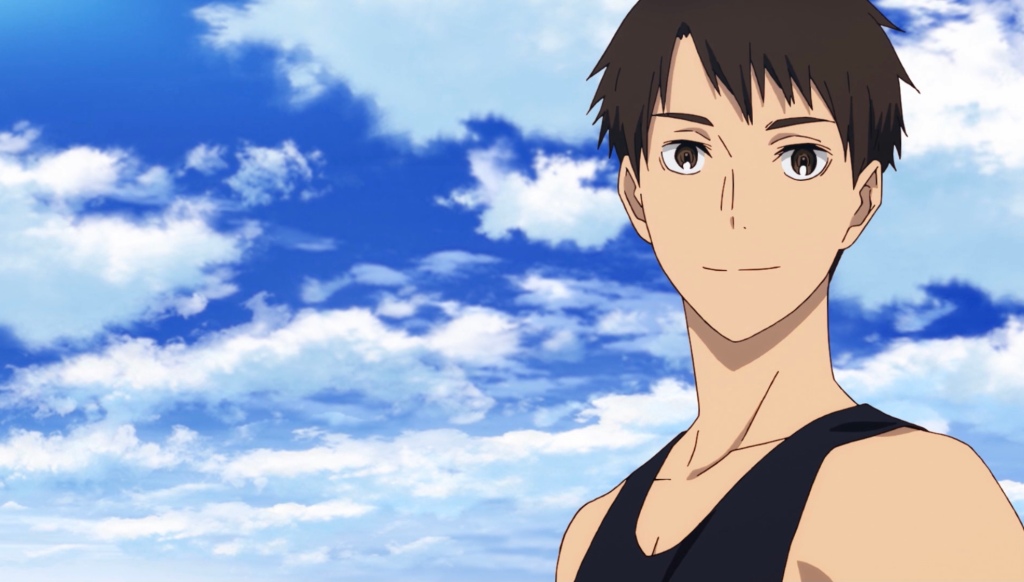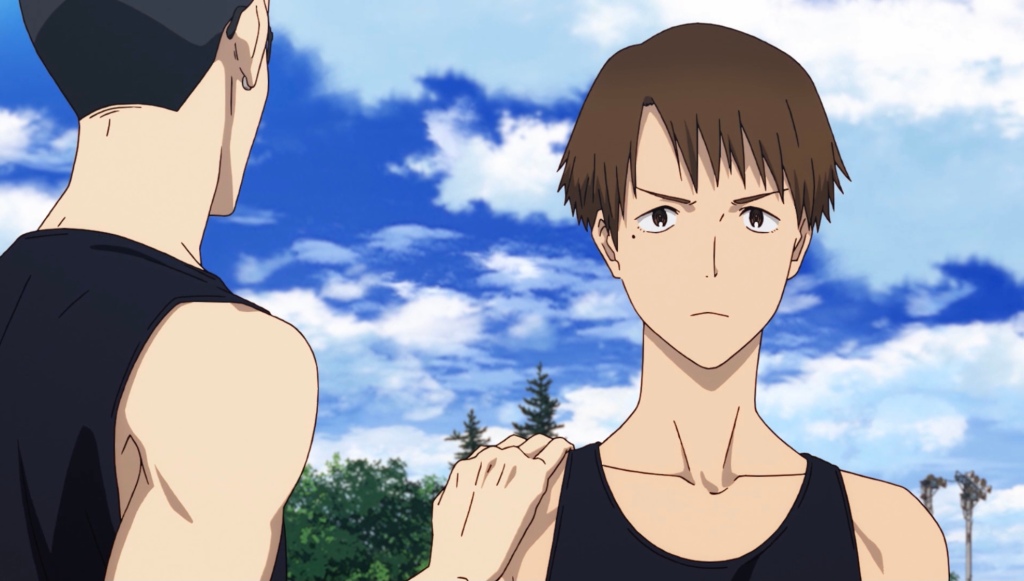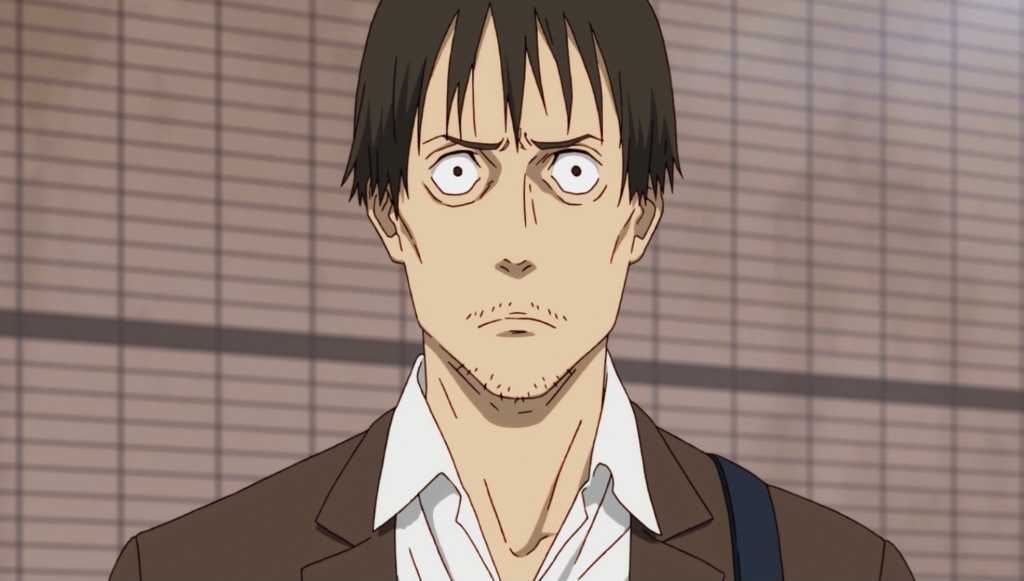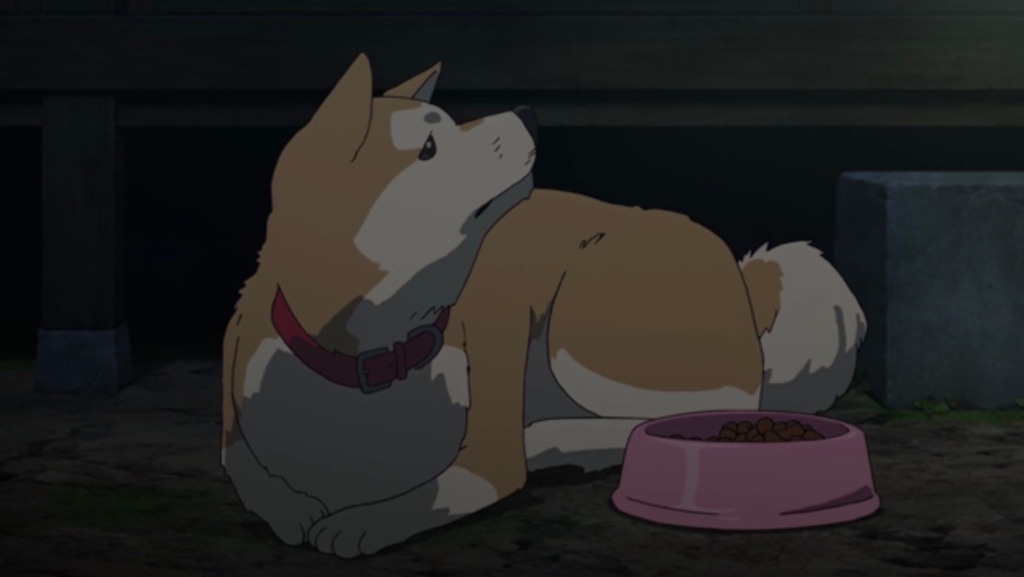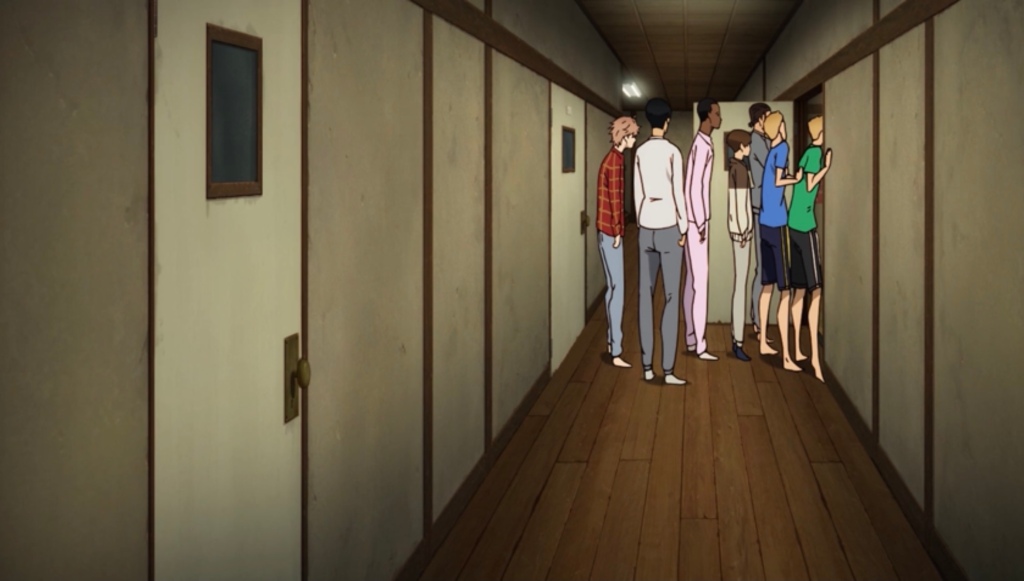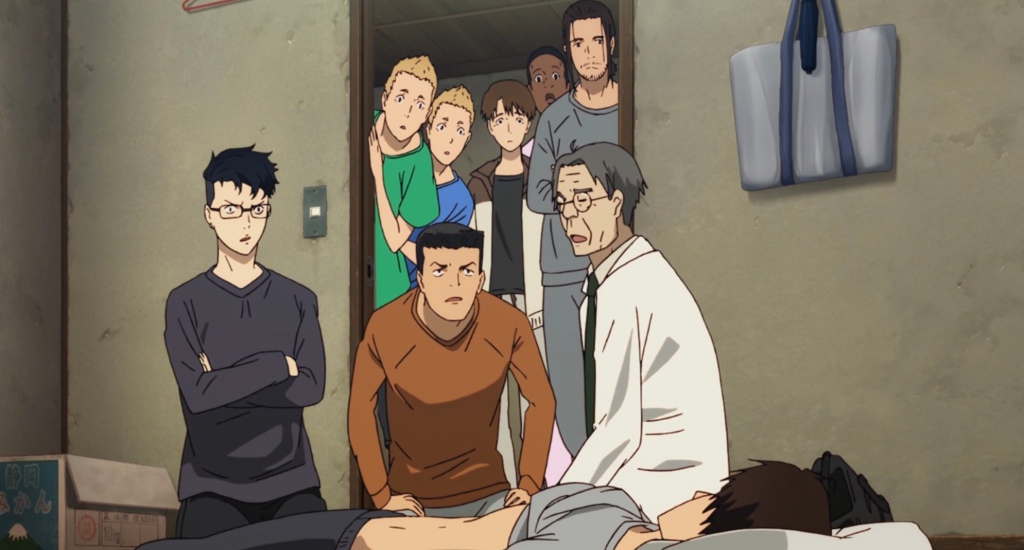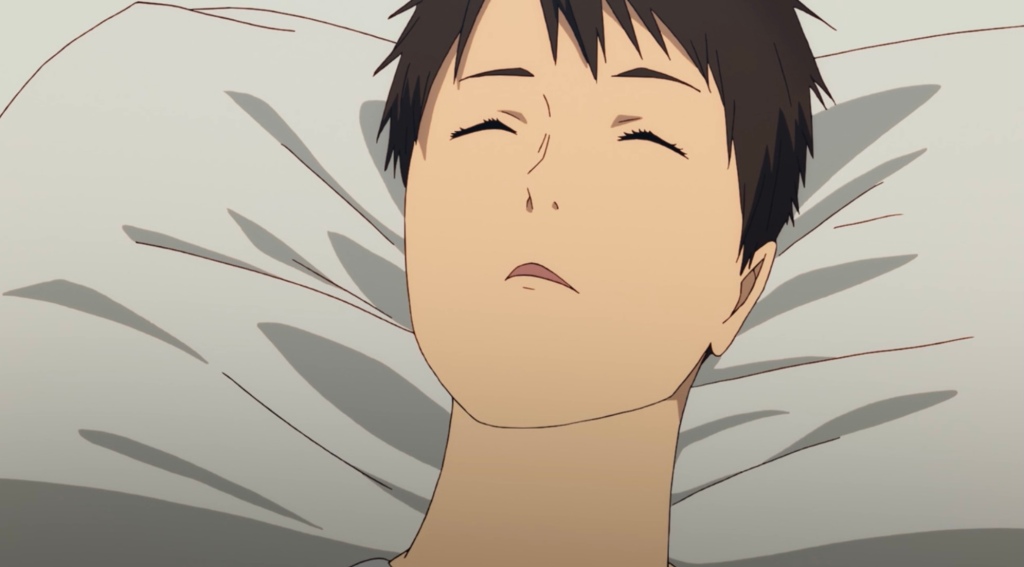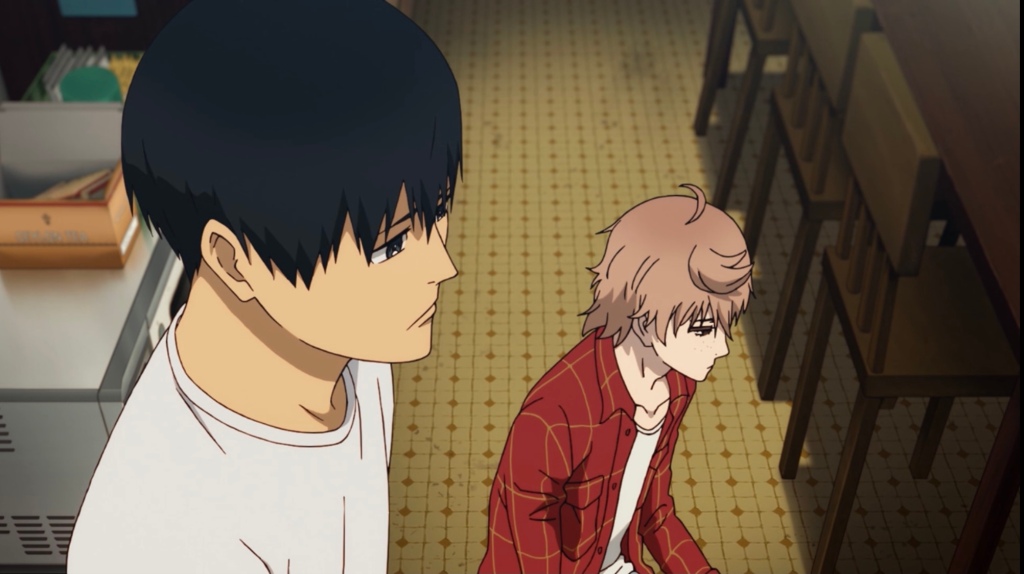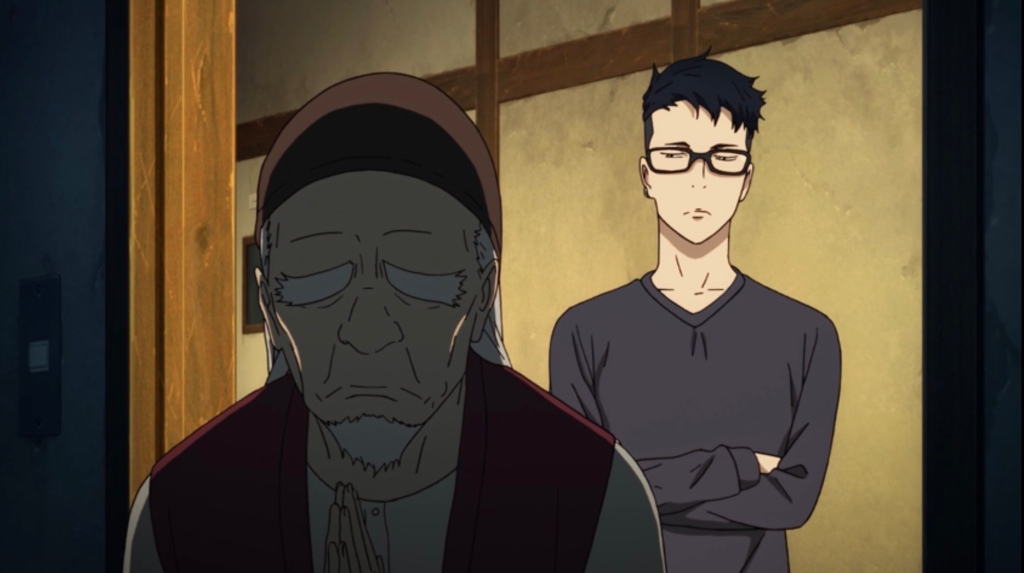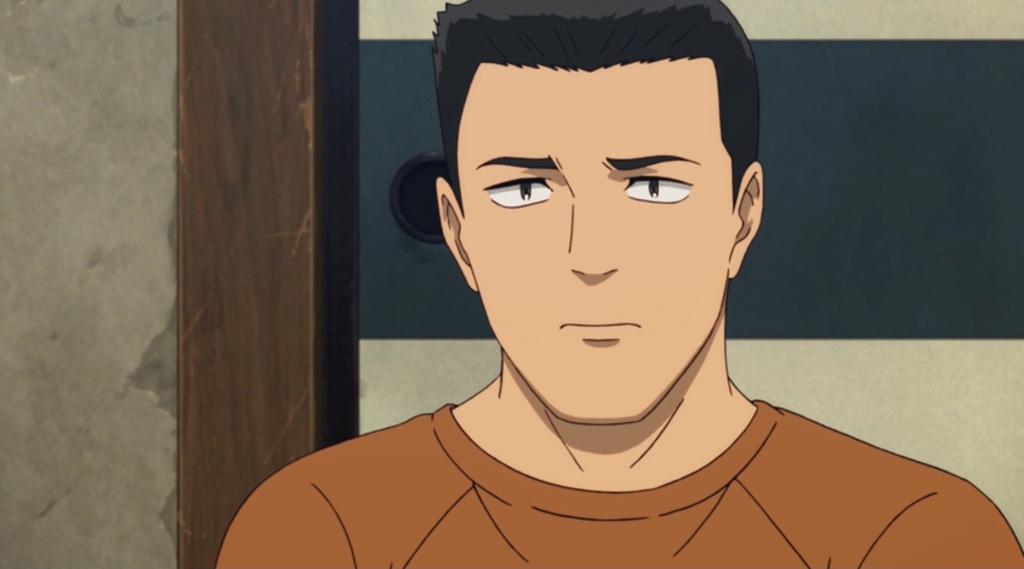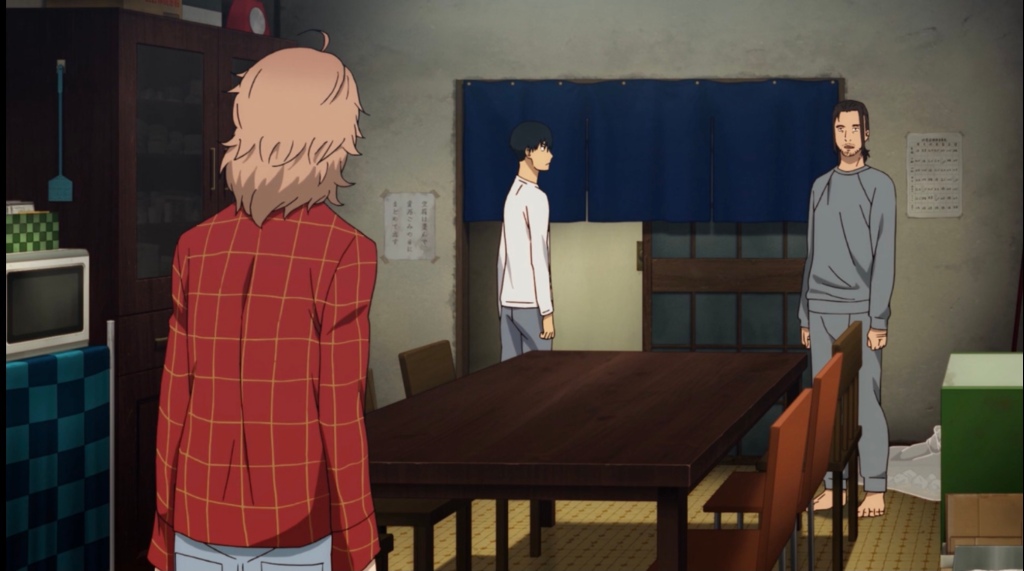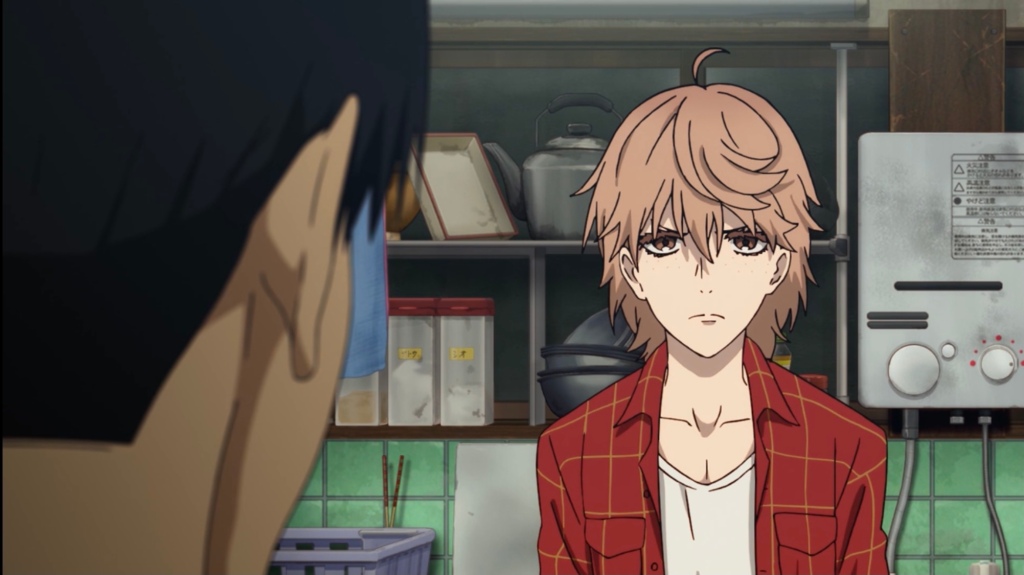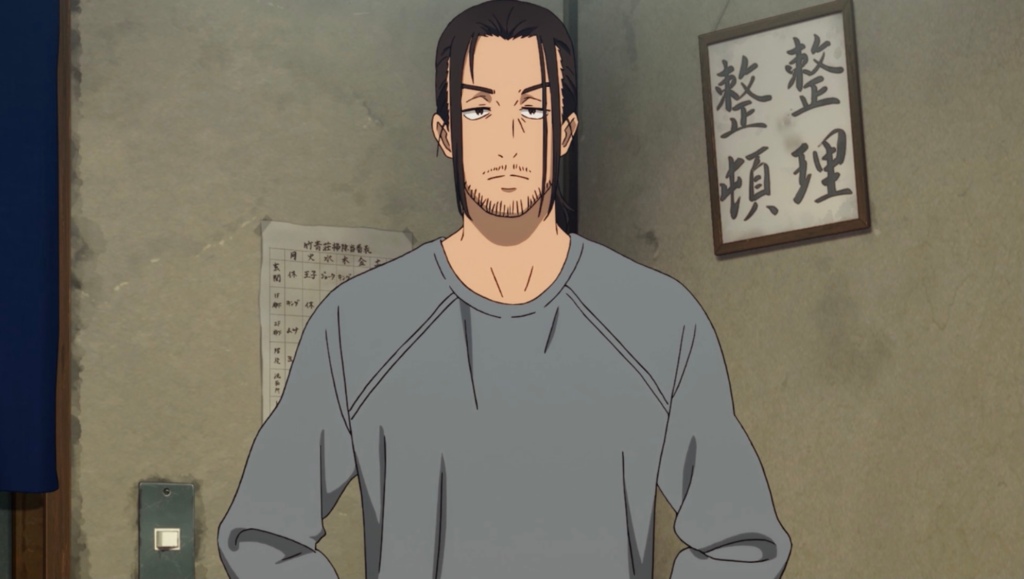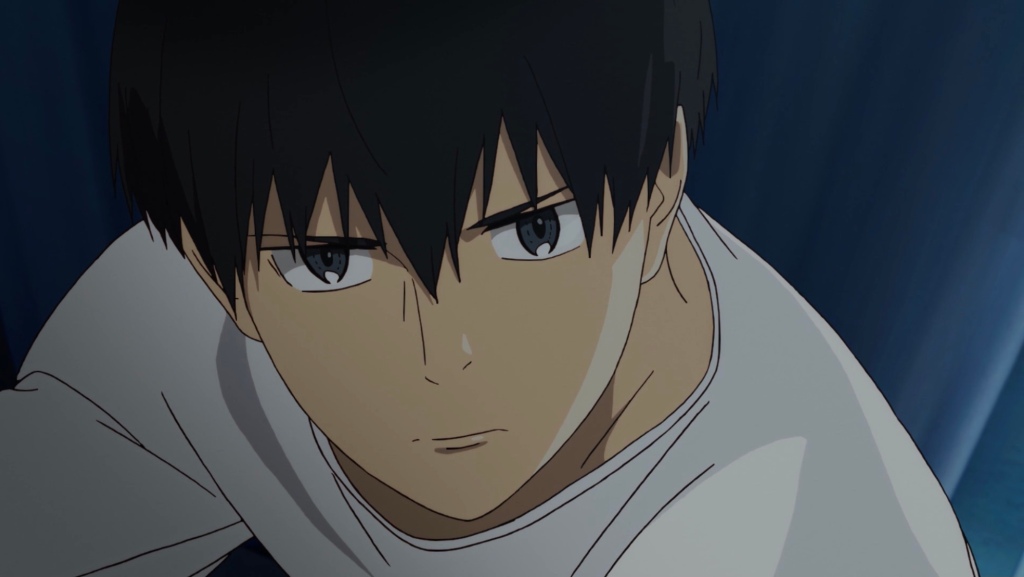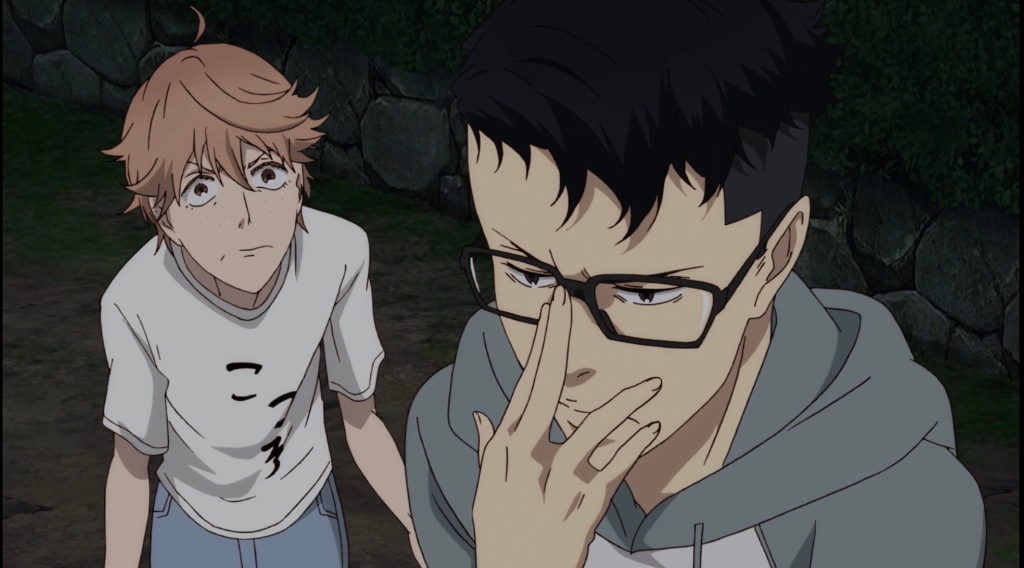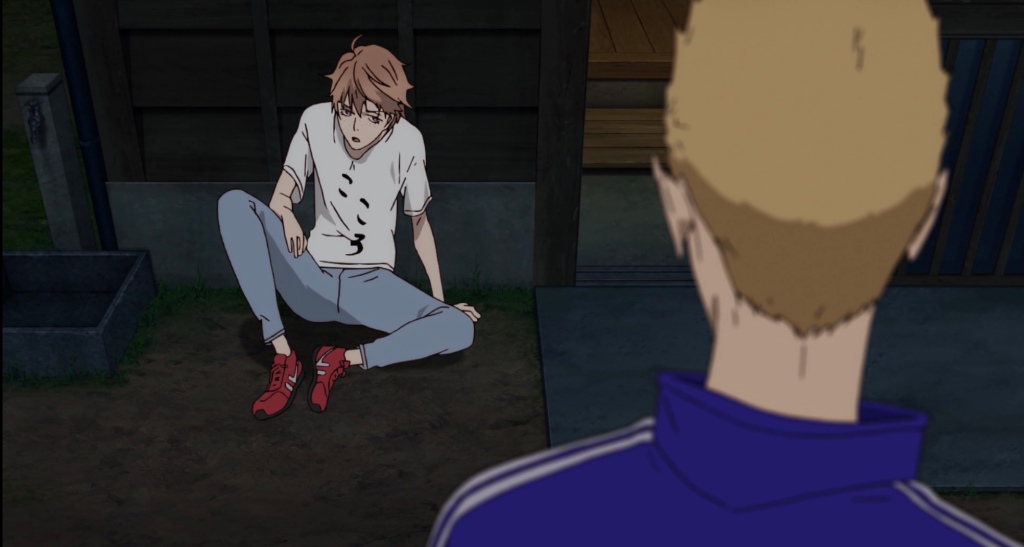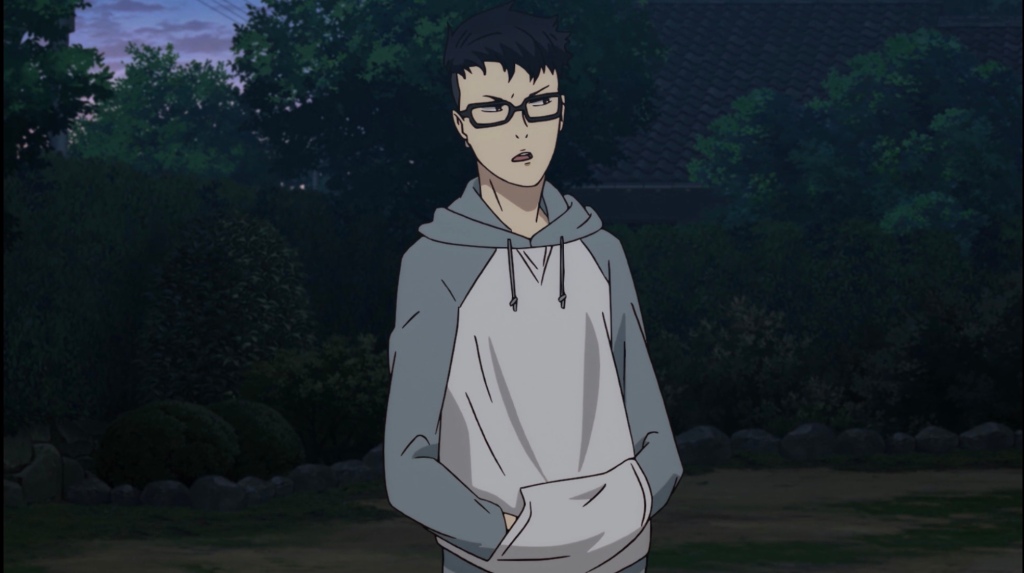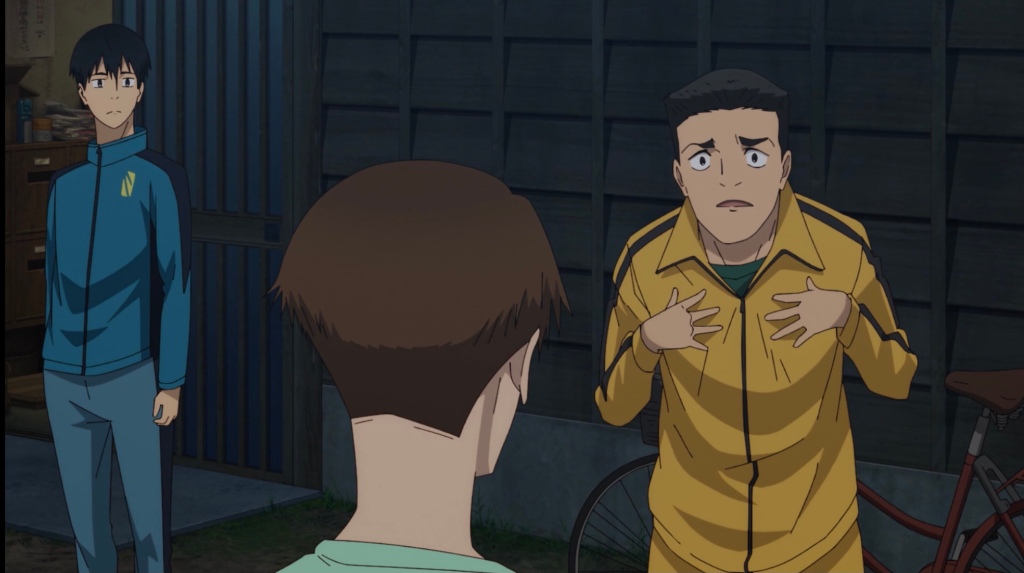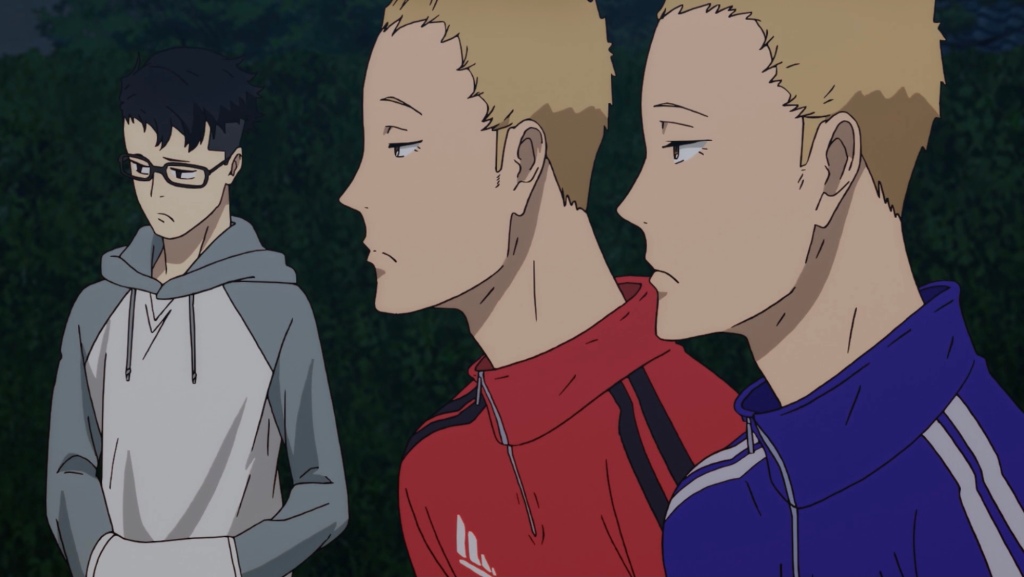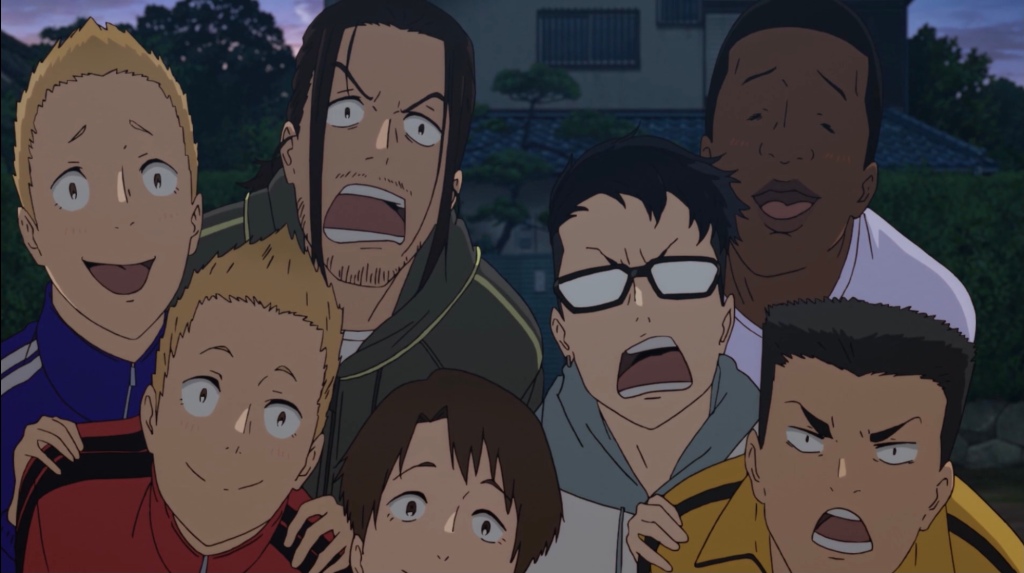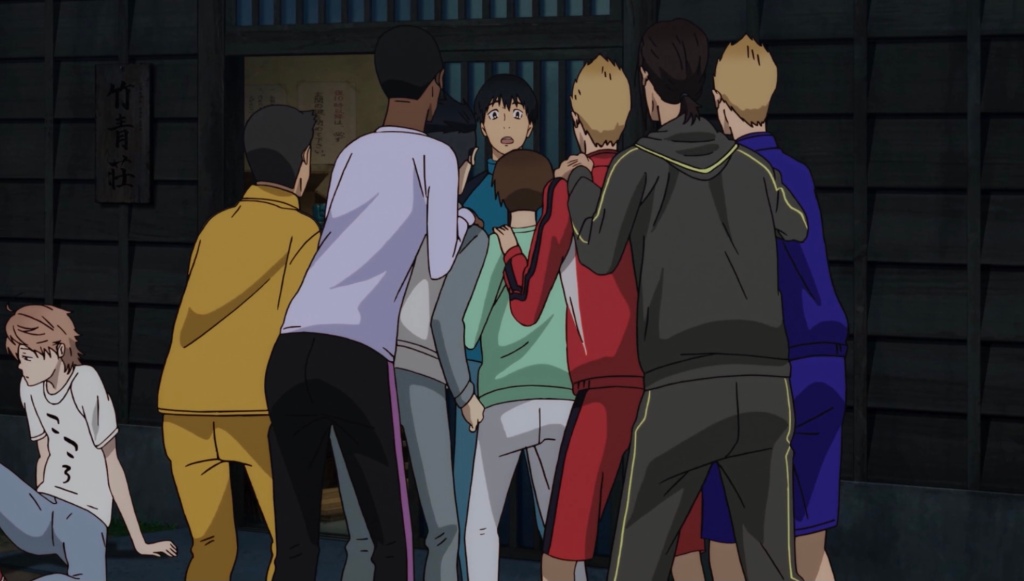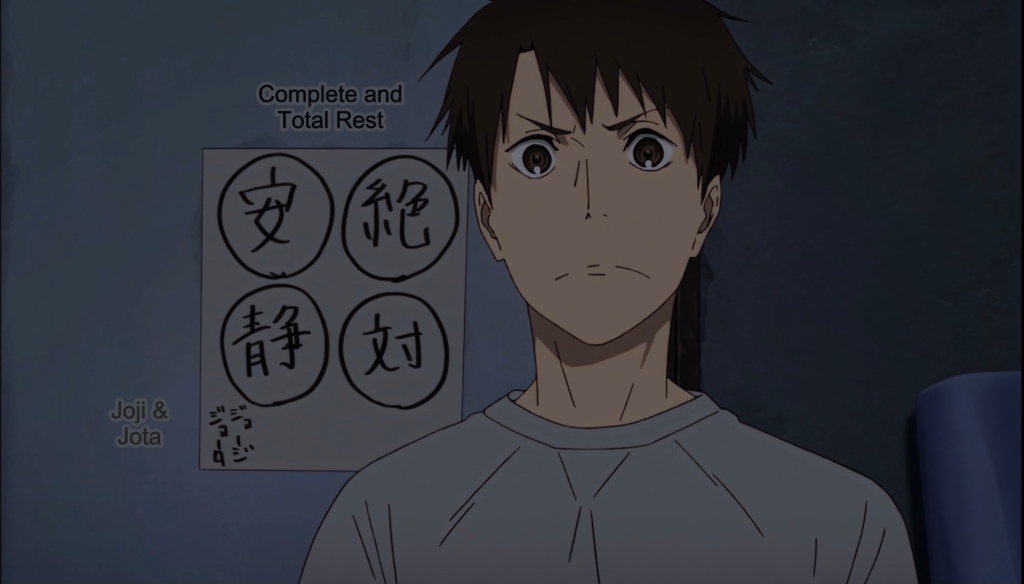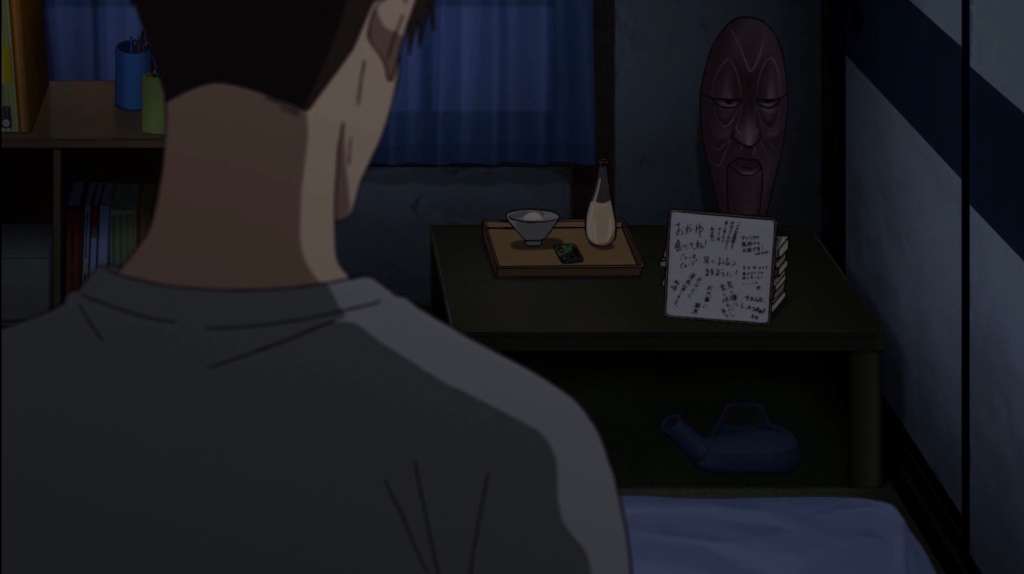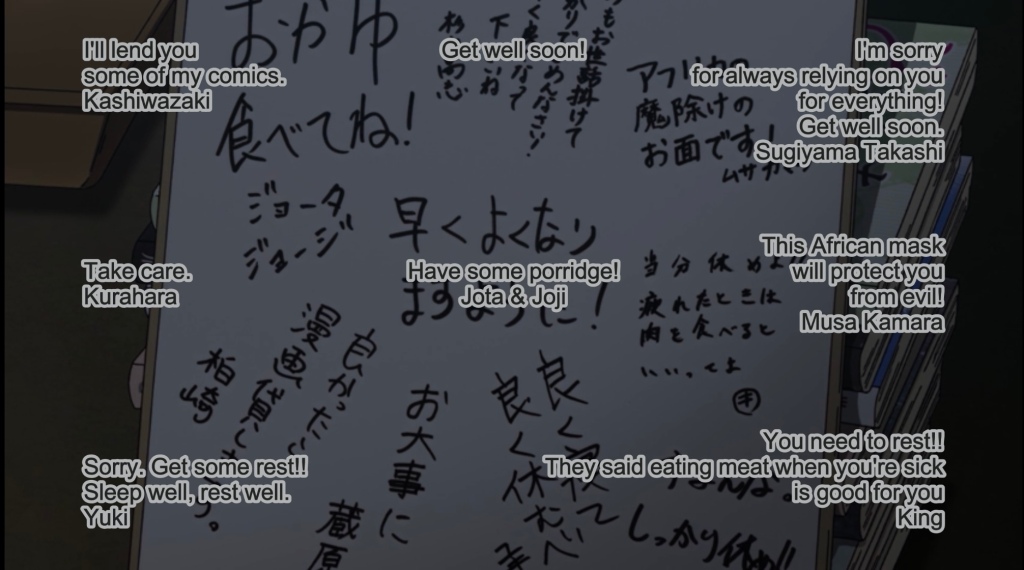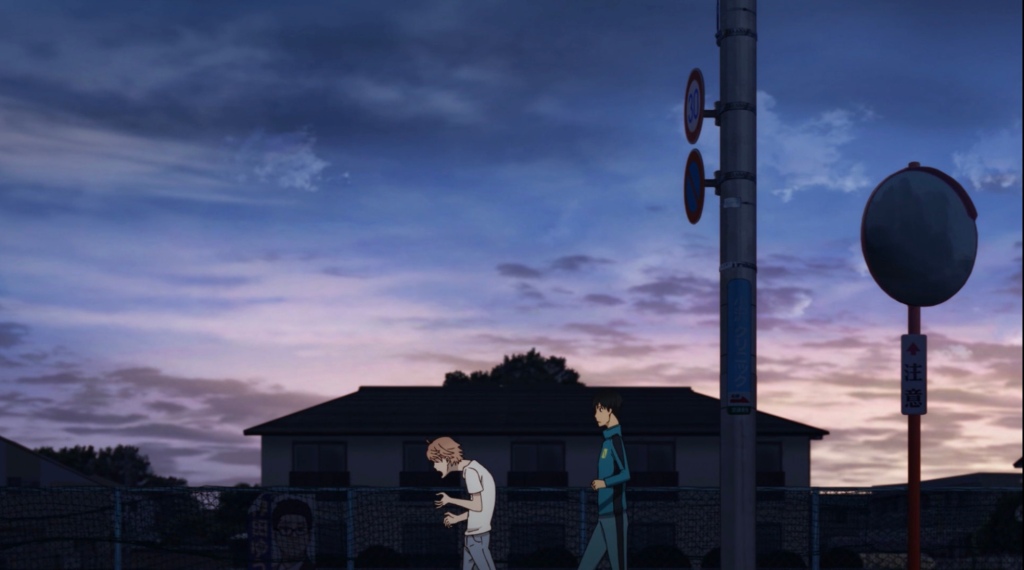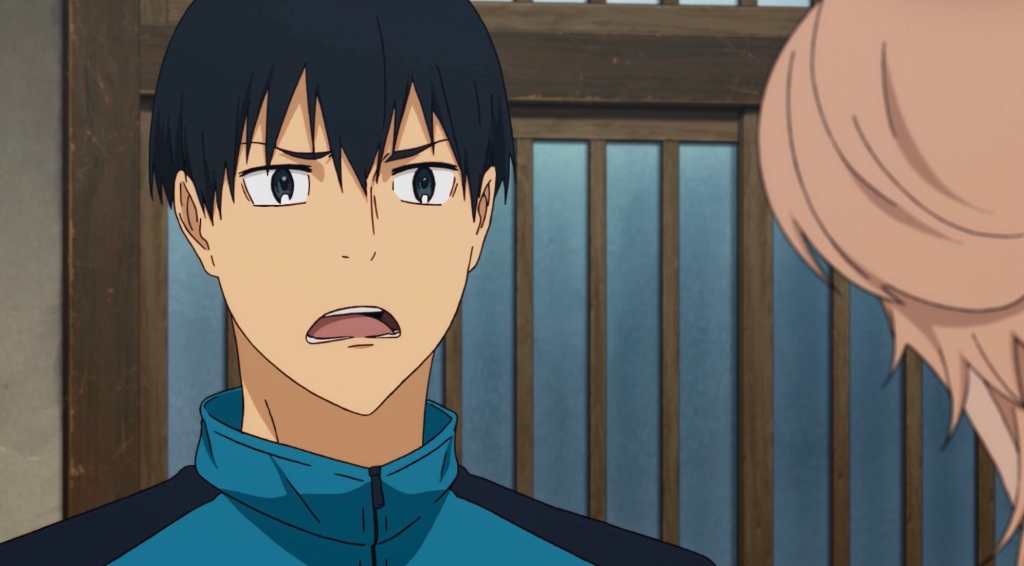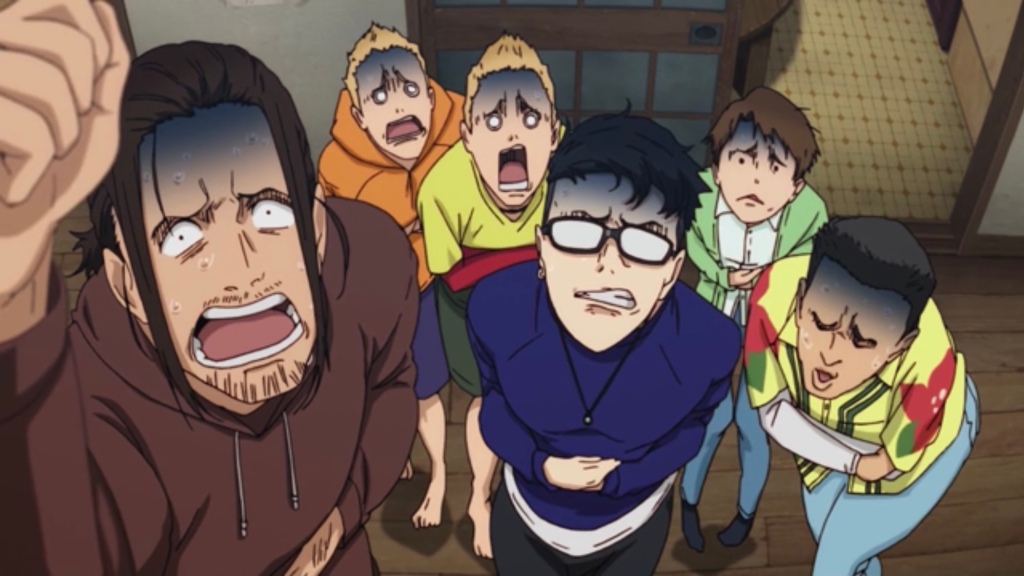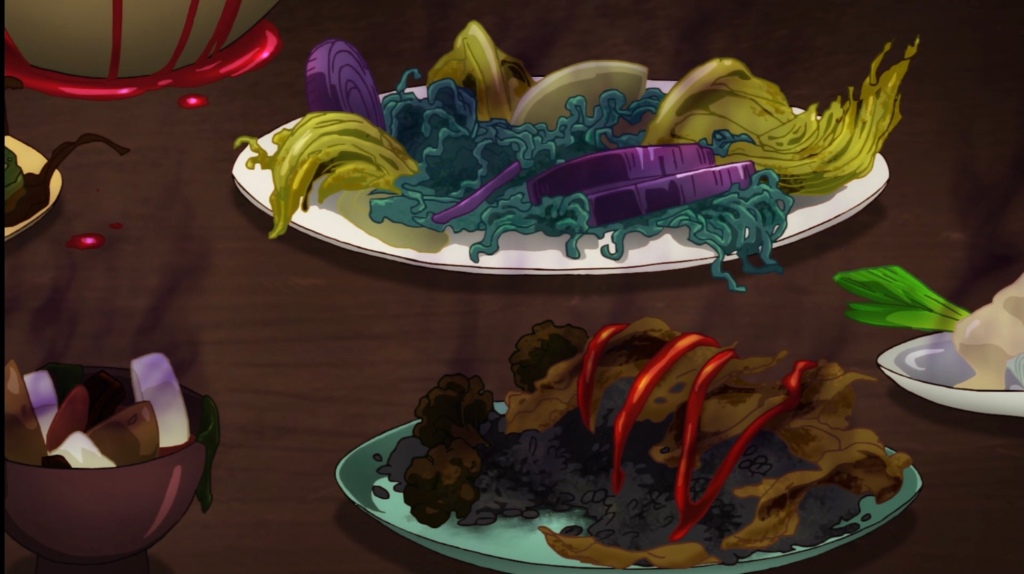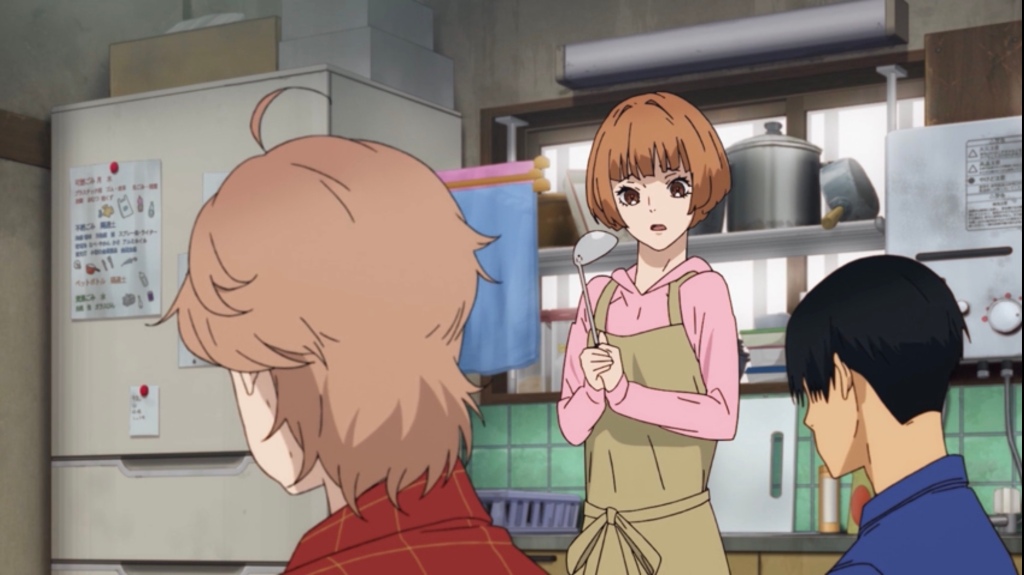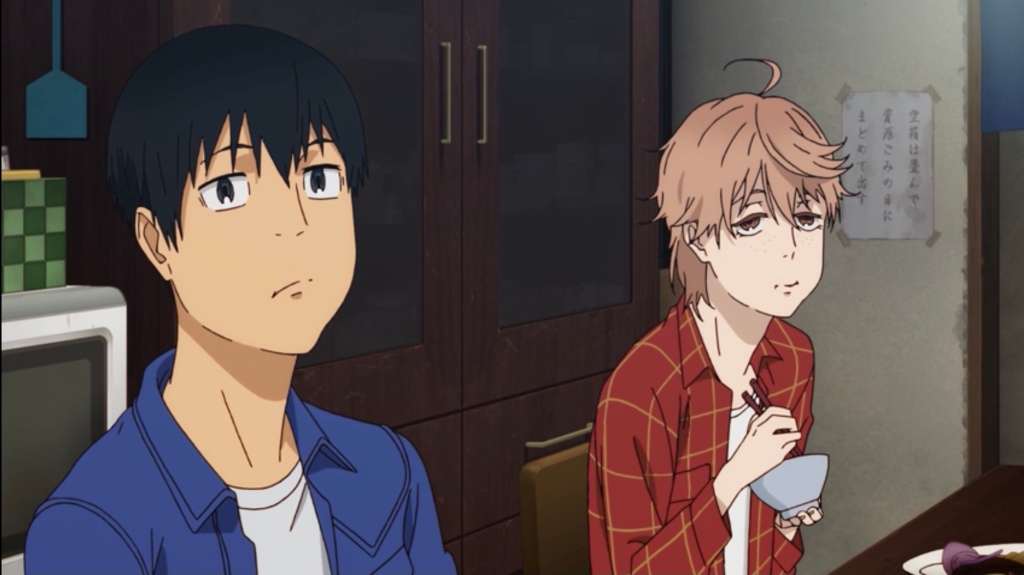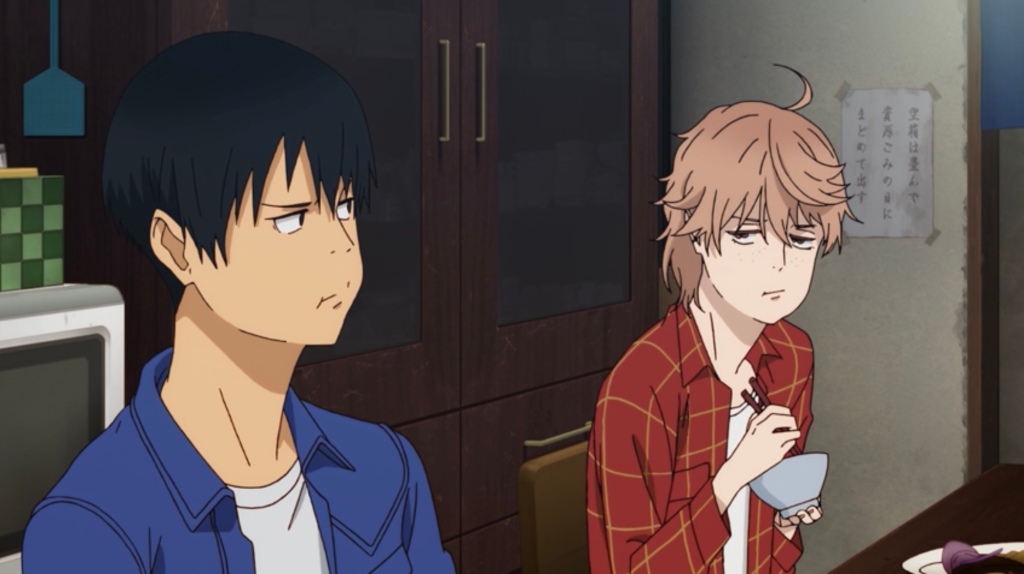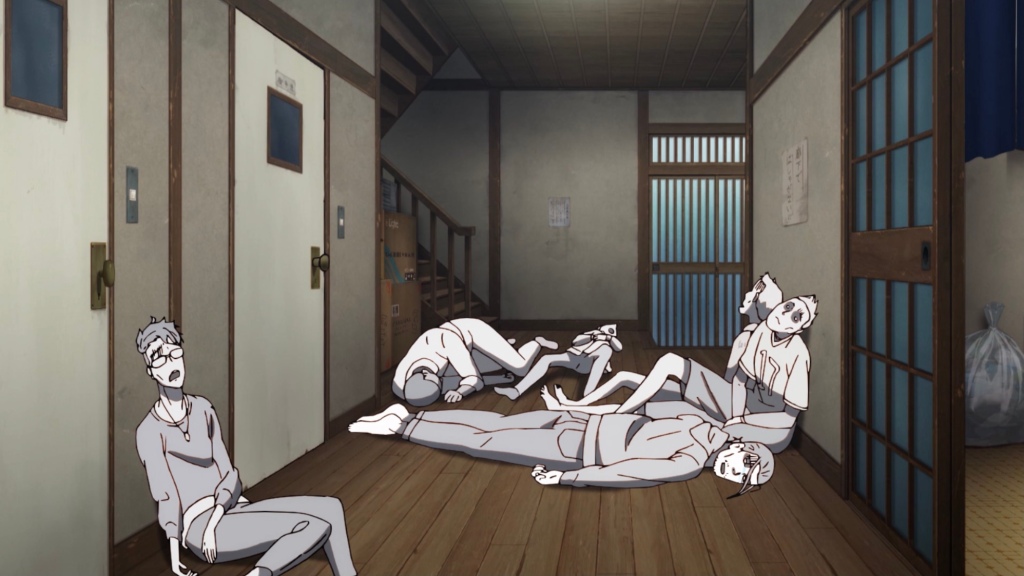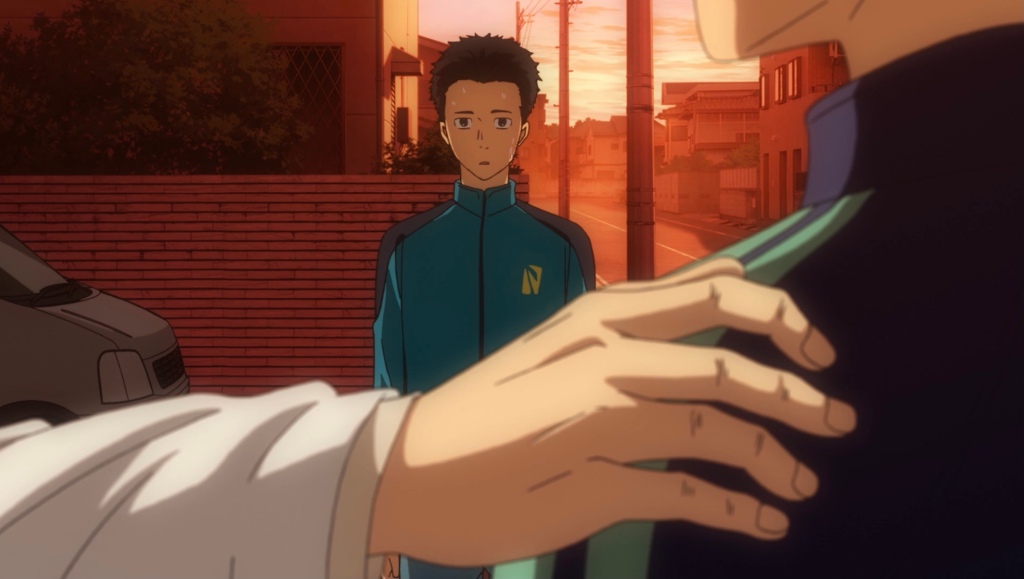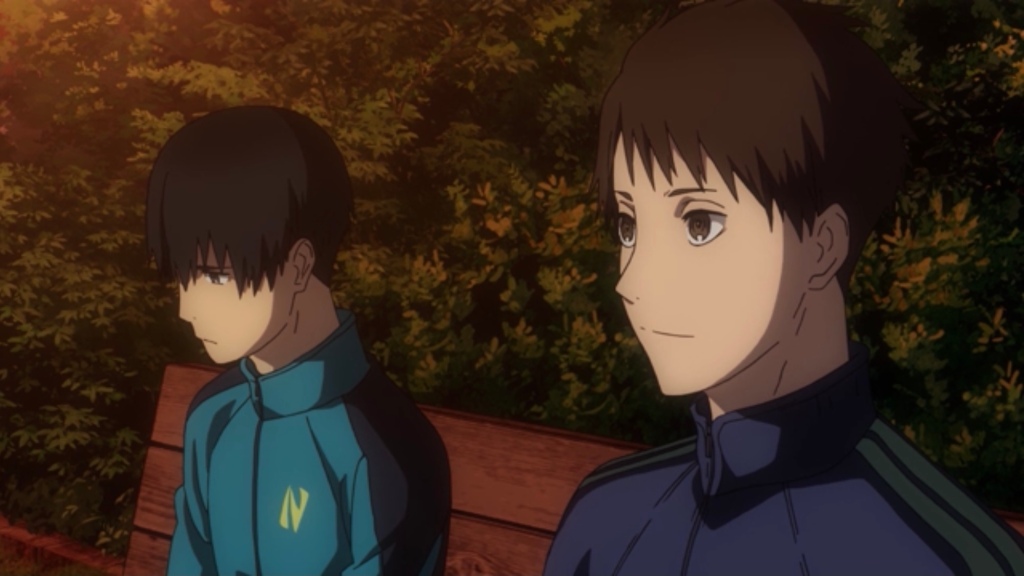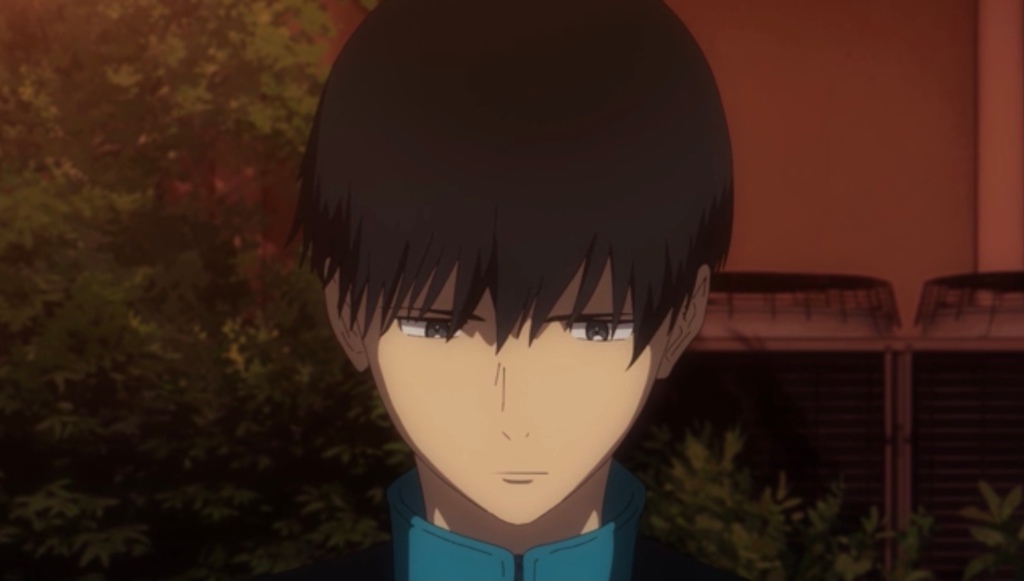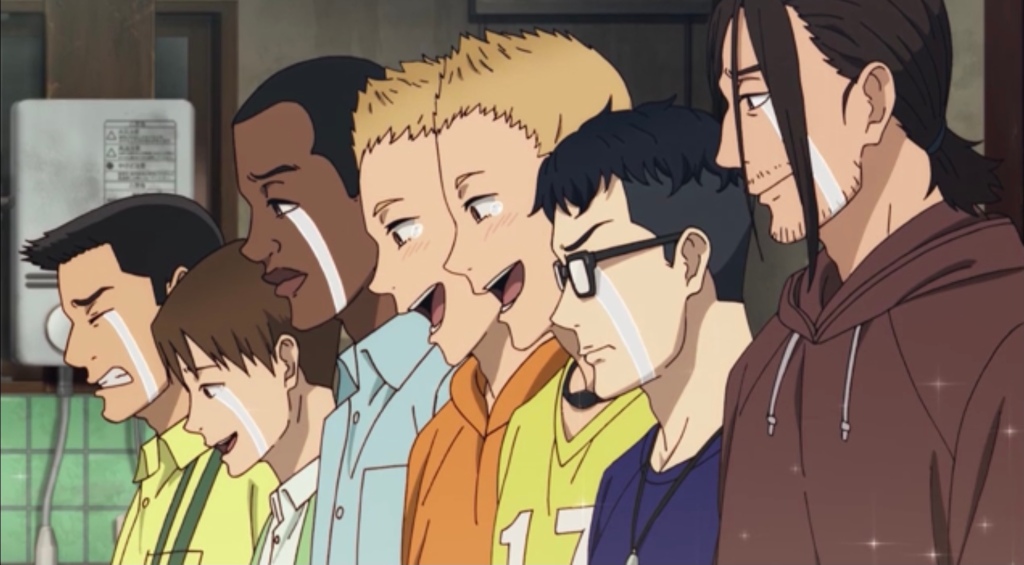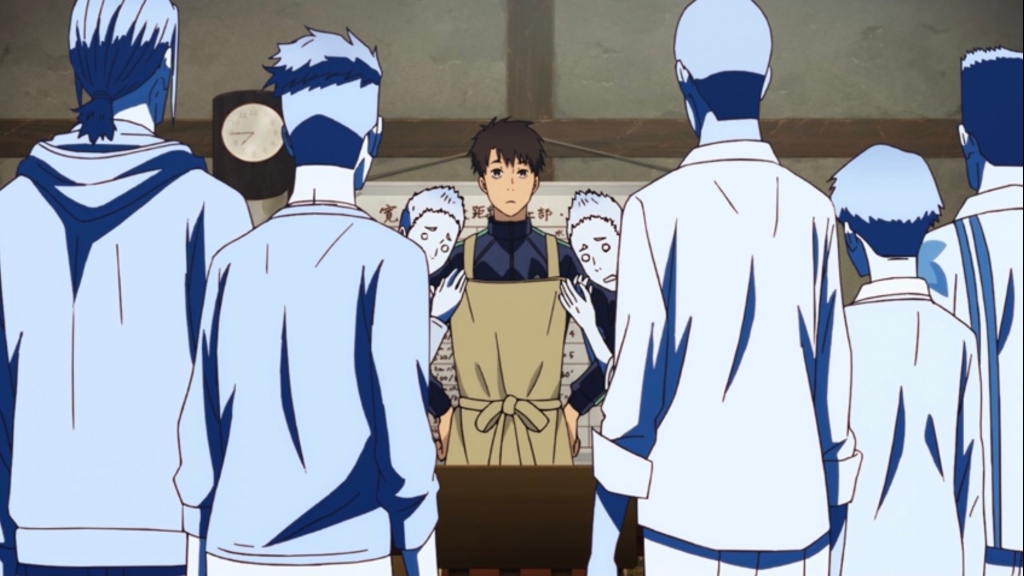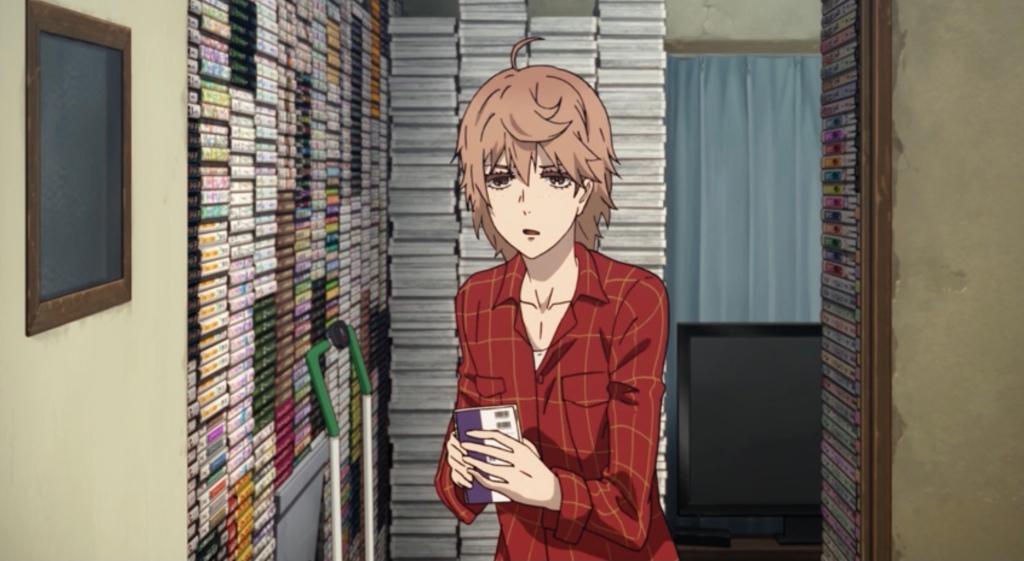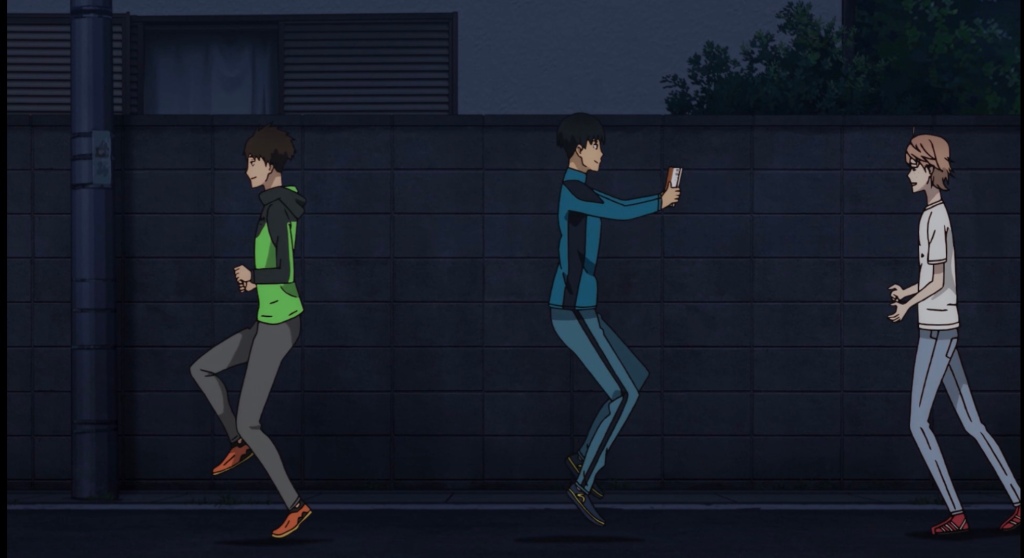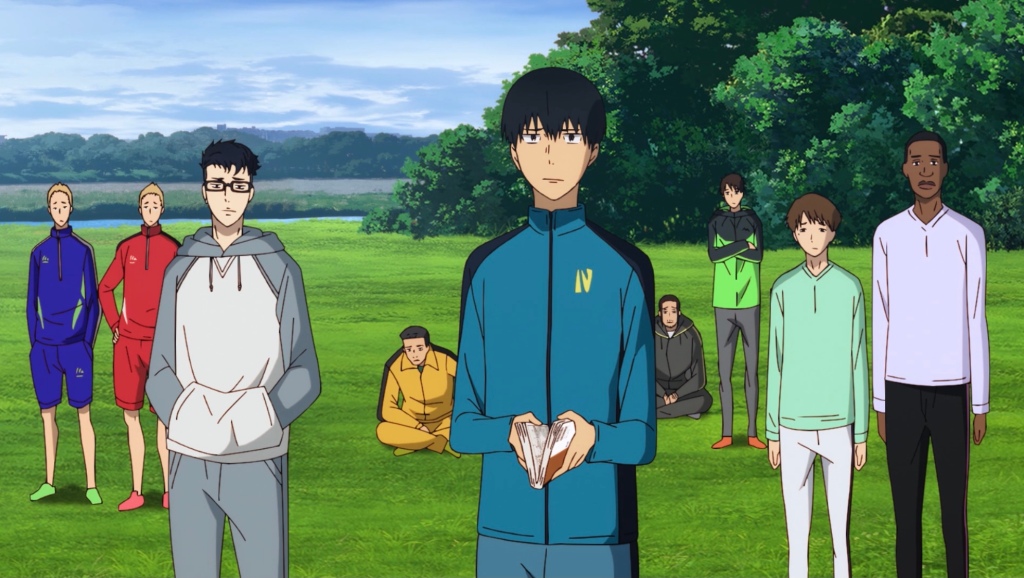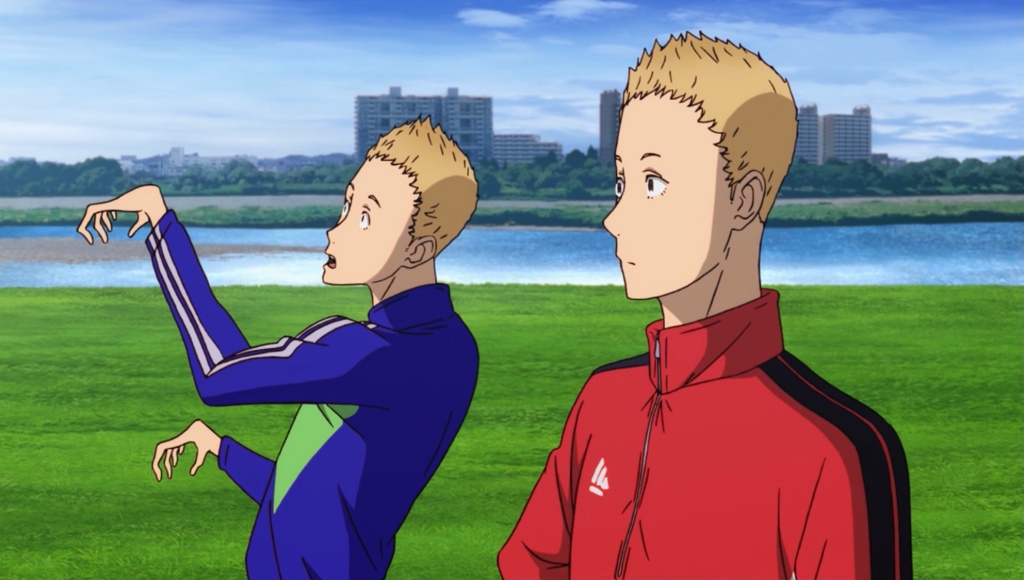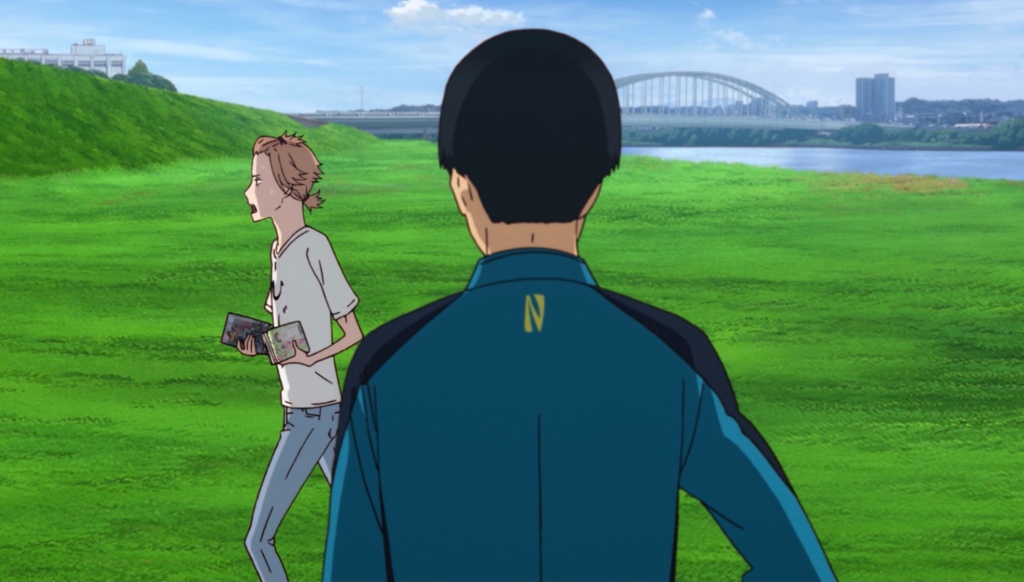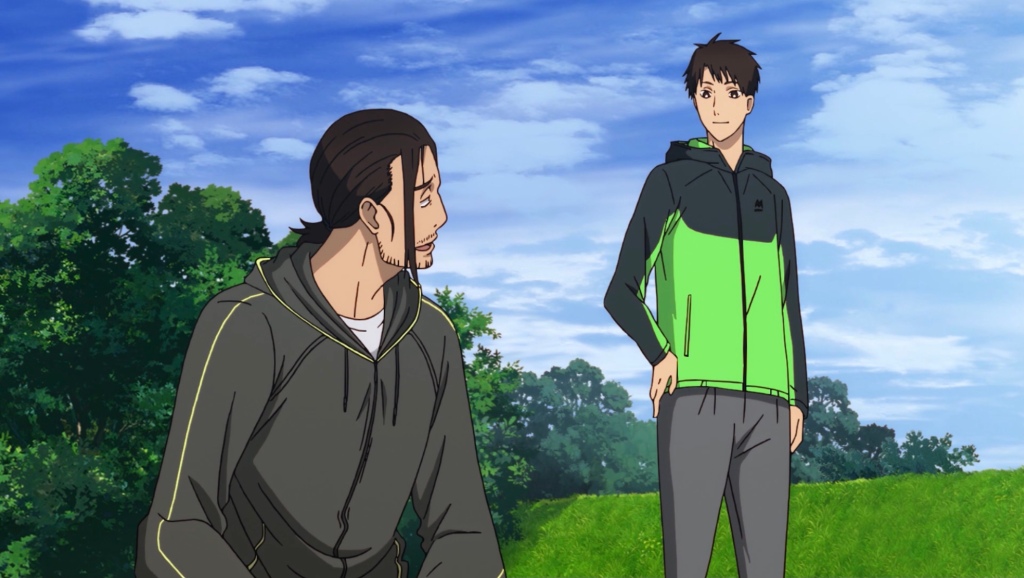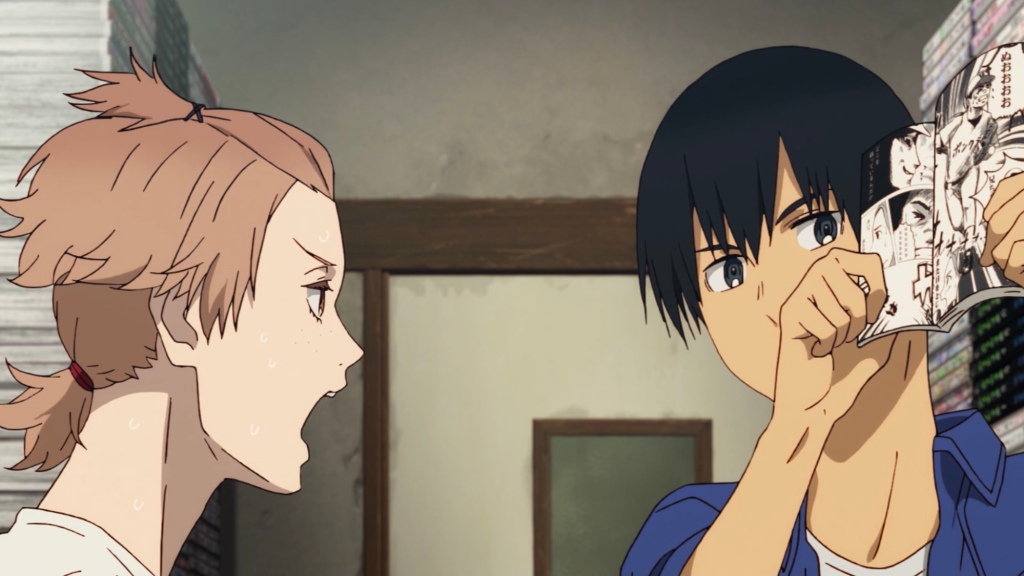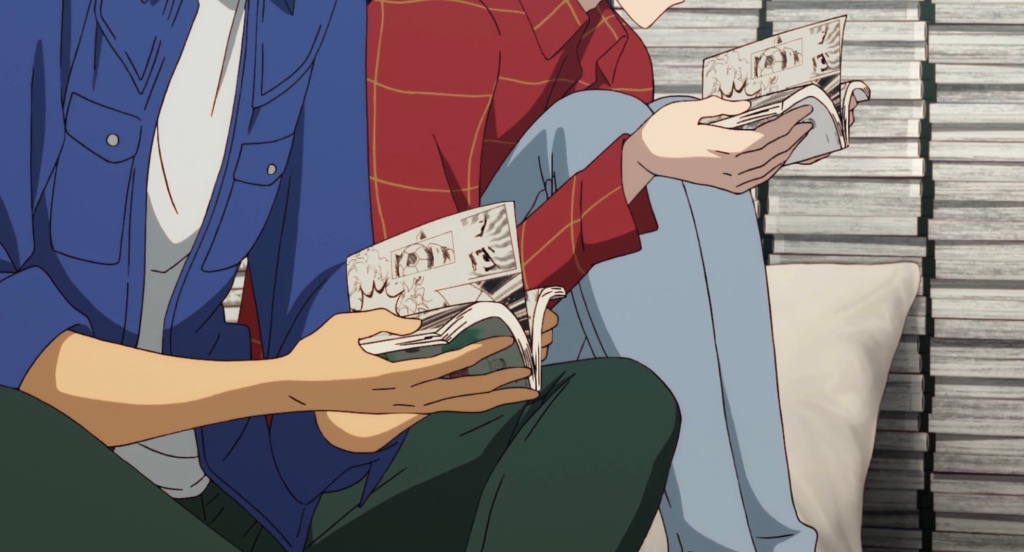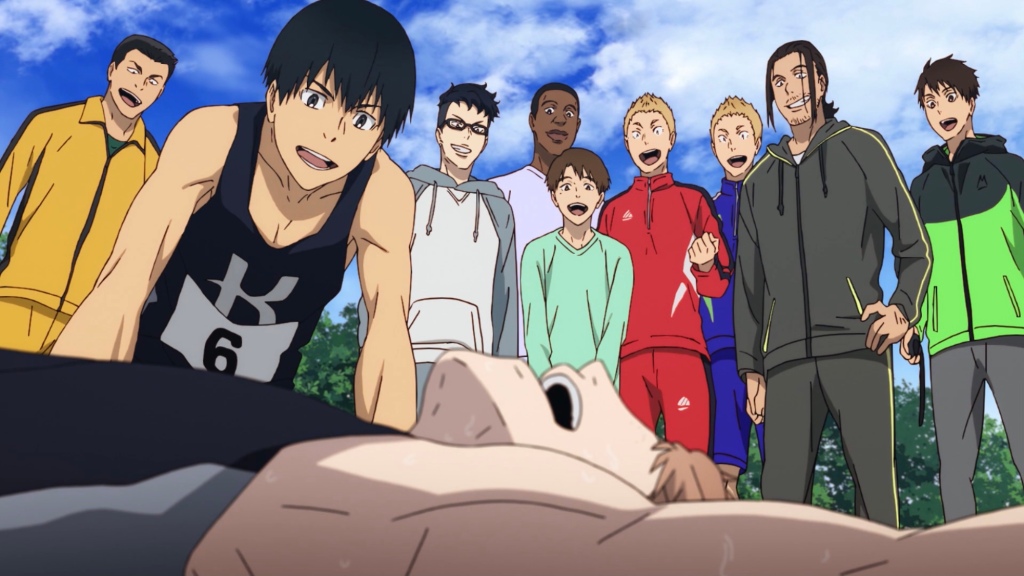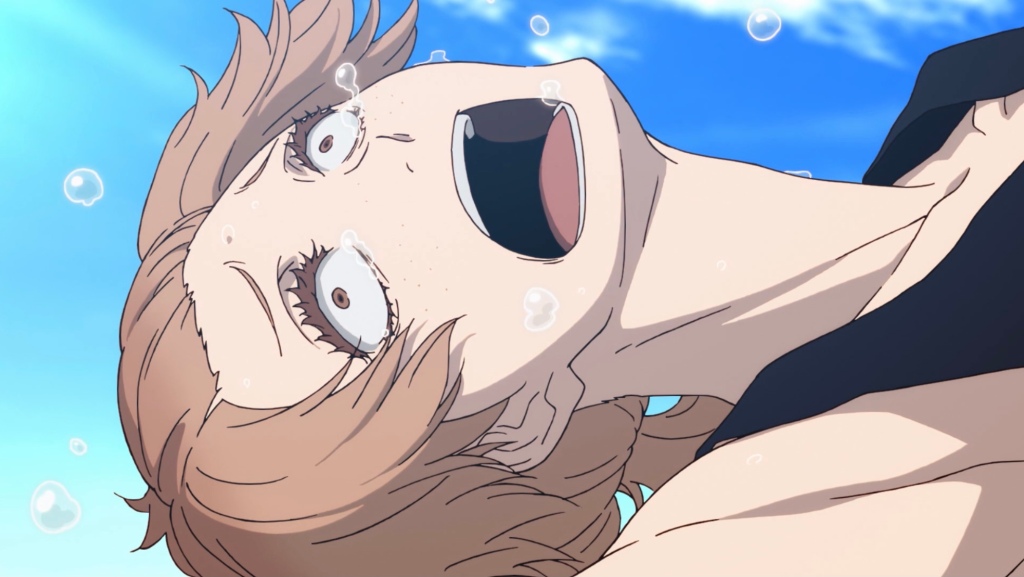‘Brown Shag Carpet’
Synopsis
Following the events of ‘Byzantium’, the team is chasing a serial killer who’s obsessed with the after-life. That leads Jane (Baker) to pull his psychic act as a bait to lure their prey in. Meanwhile, this step in the limelight leads Jane to come to terms with life-changing decisions regarding his relation with his girlfriend Lisbon (Tunney).
Concise Verdict
This ending for Season 7 comes as a two-parter, like it was for S3 (‘Strawberry and Cream’) and S4 (with the diptych ‘Red Rover, Red Rover’/‘The Crimson Hat’). It doubles as the series finale and rivals ‘Blue Bird’, the other potential ending intended for the story, for the closure and the fulfilling emotional commitment both provide. A new door opens for Jane and he accepts at long last to grab a new chance at happiness. The storyline concludes on a cheerful and moving goodbye to faithful viewers from the home-coming wayward consultant and his extended family.
Detailed AKA Humungous Review (Spoilers Galore)
Right from the start, the episode is one for tests. After finding Gabriel’s body, when Lisbon asks Jane why the killer would care if he was a real psychic, Jane answers that “he wants one for some reason and Gabriel didn’t pass the test”. It echoes Jane’s own wanderings in the emotional turmoil represented by the wilderness, since it was a nod to Jesus being tested and tempted by the devil. This double episode is the final test for Jane: after crossing path with death in a way reminding of his previous failings, fate will determine the new path he’ll take from now on.
VIS#1: Jane shows his love nest cabin to Lisbon
The storyline opens with a random couple half-arguing about the possibility that the rumored serial killer –whose killings have been made public- may be sitting outside their house. They state that “serial killers don’t sit in cars, they lurk in the shadows”…. which is ironical, since the actual killer strikes when the husband goes out to check on the suspicious yet innocent bystander. The husband has put himself in danger by getting out, but it is his wife who is taken from inside the house. It draws a troubling parallel with Jane’s family, targeted in the security of their home… and the man finds the front door alarmingly open, just like Jane met his fate under the guise of a closed door. How not to be reminded that Jane fears for a repeat by having Lisbon taken from him too?
This frightening opening is in dire contrast with the cheerful serenity surrounding the isolated cabin that Jane bought and that he is eager to show to Lisbon… In response to the way he’d been drifting apart after the shock of Vega’s death, he tells his beloved: “it’s a little shack that I’m gonna renovate. Make some additions… We both knew things had to change: I couldn’t make you quit and I need something to do”. Lisbon is surprised and a little bit skeptical (“so you’re gonna build us a house…”), but the sudden decision has been building up for some time. Their increased intimacy is expressed by the endearing way he closes her eyes to surprise her and her playful question “did you buy me another horse?”, which is of course a cute reminder of the pony he gave her for her birthday when she was still his boss. Plus the fresh air he wants her to “breath in” to try and make her impressions as good as possible is a nod to his familiar love for nature (and her wariness in front of it): having a house in the middle of this kind of environment is implicitly his way to meet her in the middle, instead of making her leave in a long boat trip like he alluded to in the beginning of the season…
Yet, Lisbon’s lack of enthusiasm propels him to explain: “when I’m done, if nothing else, we have a place to live. It’s a start”. Indeed, it’s a start in more ways than one: it’s the first hint he’s given her that he’s ready to stay in a long-term commitment after freaking out, but it’s also a new start for him, given that it would be the first real home he’ll be allowing himself after the debacle at the Malibu house… He’s willing to prove himself to her again, not by talking about what’s in his head, but by showing her that he’s trying to progress and make amends… The fastest way to hint at his will to share her life and start anew is to build a house: like the teacup, the “shack” will be renovated as the visible sign of his mended self. And again, this action echoes the progress of their relationship as they’ve been playing with the idea of moving in together for a few episodes, like when they visited the killer’s house as potential buyers in ‘The Silver Briefcase’ or as hinted by Jane’s fascination with her childhood ‘Little Yellow House’…
An interesting point is that, if Jane’s ready to prove his commitment to Lisbon, it doesn’t involve staying where she wants him to be, though. When she asks him if he wants to quit the FBI, he answers “maybe, I don’t know. I haven’t decided yet”. In a way, it shows that he’s having a more adult reaction than the flying reflex that leaded him to take a break when he was emotionally distraught: he doesn’t have to have all the answers yet. He’s just showing that he’s willing to make the effort and to start thinking about what he wants from life instead of just conning his way out of difficulties or hiding behind his fears. And given the trouble he always had to let her know of his thinking process when it got too touchy, the fact that he’s understood how important it is to share this with the woman he chose as his companion is an indication that he’s grown as a person.
Lisbon is able to sense the progress, yet she’s also afraid that he might take off again without as much as a warning. She tells him that she’s “glad”, albeit understandably shocked by his new acquisition, but that she needs to make sure that he’s “committed to this, to us”, probably because she’s dealt with enough of his lies to know that his word may not be enough. In that line of logic, she dares to broach a subject she never mentioned before: “are you gonna take off your wedding ring? It just, it seems like you don’t want to let go of it…” When she sees his stress over the question, she backpedals “I understand why it’s difficult for you”, leading Jane to answer rather lamely “it’s just that I’m used to it”.
It’s interesting that Lisbon basically asked for that as a sign of commitment for him, whereas she never seemed to mind much the offending object binding him to another woman and another life. She’s been extremely understanding on this point, certainly due to her own history with this dark part of Jane’s life: as the leading officer on the investigation on his family’s murder for more than a decade, she’s also part of this past, even more so considering her nurturing nature and the concern that she felt towards the revengeful widower that she took under her wing. But it looks like having Jane give her the cold shoulder made her greedier, as it happened when Pike entered her life and Jane started hiding his jealousy. As soon as she could, she turned tables on him: before Michelle’s death, it’s been Jane pressuring her to change her life in order to protect her, while now she’s the one pressuring him into giving her more than he thinks he’s ready for… Like it was after his escapade in Vegas and the surge of feelings his two-year long hiatus provided, this last break was probably an eye opener for her. She wants something more instead of risking him not answering her calls again and she no longer feels afraid to demand it. In a way, it shows how much more secure she feels about herself and her relationship with her stubborn lover: after the debacle with Lorelei, she couldn’t bring herself to be straightforward with her feelings for him, just like she blew cold (the plane argument) and hot (the socks) on him when he got back from Venezuela, which lead to a misunderstanding on what she really wanted and Jane clinging to status quo. Now, after having admitted out loud that she loved him (‘Little Yellow House’) and what they had was good (‘Copper Bullet’), she has no claims in asking him to give her more too, in making their relationship progress. By asking him a token of his faith in them, she’s thus willing to back give her trust.
VIS#2: the plan to catch the serial killer
But Lisbon is not the only one getting bolder: the villain is too. Things get ugly when they’re called at a new crime scene: the serial killer they are after since the previous episode has made another victim, whose body he didn’t bother hiding this time. His “playful” display for the FBI to find is briefly enhanced by how the scene is shot from the dark tunnel towards the light; even though it gives the impression that the killer is creepily watching them, it also hints at Jane’s willingness to step out of the darkness and into the light. Plus, the association with the well known “light at the end of the tunnel” that some people have seen after near-death experiences brings forward the notion of death and resurrection, an important theme in the series (cf. the questions of psychics and the afterlife and the reference to Jesus Christ in ‘Byzantium’ for instance). In that same perspective, the difference in the killer’s ways gives them another clue. His pattern is roughly the same, yet since the body is not decayed, they can spot a puncture wound along with the usual missing fingernail: he’s been taking “a cup of blood” from his victim… This choice of words immediately links the murderer to a vampire. Wylie later presents the vampire theory as the most popular online, leading them to investigate a potential link with the occult; this connection is based on the murderer’s interest in Gabriel as a psychic and the fact that “he is stealing blood from a corpse; he’s got to be doing something weird with it”. Interestingly, the “vampire” aspect might also be a nod to Bret Stiles’ golden chalice filled with blood during the Visualize ceremony in ‘Fire and Brimstone’. Indeed, both the cult leader and the vampire use blood as a mean to gain immortality and/or resurrection: Bret promised “I will return” to his followers, while the vampire is an undead/immortal creature. Therefore, they hint at Jane’s fear of Lisbon dying and the Christian references involved with Jane’s wanderings in the wilderness, as well as the psychic angle used in the previous episode.
Back in the bullpen, they get another surprise in the person of Rick Tork, from the Santa Fe office. He’s going to help them on the case because they’re short-handed. Said Tork worked briefly with Jane and Cho in the SCU under the supervision of Ray Haffner in ‘Little Red Notebook’, when Lisbon was almost fired by Bertram. Tork’s memories from that time are far from good. Jane’s used his complex over his short stature to get him into a fight with a coworker in order to undermine Haffner’s new team: “he’ll never tell you what he’s up to; whatever he does, you’ll look like an idiot. And always keep your hand on your wallet”… It’s noteworthy that Tork is one of the rare secondary characters from the CBI era that doesn’t get killed off after crossing paths with the new team –unlike Ardiles, LaRoche and creepy Haibach. As such, he shows indirectly how Jane’s gotten more at peace with his past, because when he first met Tork he was trying to make up with Lisbon for the consequences of his restless actions, like he’s doing here… Both Tork and Jane get therefore an occasion to evaluate how much the consultant has changed, which is bound to give them closure. Before that, though, Jane gets his comeuppance when Tork suggests that they need to set a decoy psychic to lure their killer out. And that Jane should be the bait, of course. Jane is miffed by the idea and leaves the room (“Uh, not a psychic, dude”) and his team members get very protective of him because “the last time Jane tried something like that, it didn’t go well”. Tork only then remembers about “the wife and kid”.
Meanwhile, Lisbon follows Jane to offer some comfort. She doesn’t pry, because she knows it’s still a very sensitive topic, which hints that their couple is not yet over that part of Jane’s history. So, she only informs him that they got Gabriel’s autopsy report back: he had tiny tumors in the brain that caused seizures and delusions, which explains why he was so convinced that his gift was real. By satisfying Jane’s curiosity over the kid’s unexplainable sincerity when he tried to cold read him, Lisbon tries to reassure him by showing him that he was right again: “there’s no such thing as psychics”… It was his mantra to justify his conman ways that got his family killed, so it’s no wonder Lisbon chose this angle to offer support. When she broaches the hurtful topic again, she doesn’t mention Tork’s suggestion or which memories it brought to mind. Instead, she sidesteps by apologizing for having brought the ring up earlier at the cabin: she feels bad for pressuring him into moving on and Tork’s lack of sensibility has awakened this feeling of guilt. Jane simply tells her that he’s okay. Obviously, talking about his way of (not) dealing with the loss of family is not something Lisbon has dared to do sooner in their relationship; this makes one wonder about the status each of them gives to their love story, compared with his idealized married life with Angela.
On the other hand, this disagreement with Tork is also subtly oriented towards Jane’s future: the mention of how he provoked the demise of his loved ones echoes his fears of getting Lisbon killed on the job. Plus, when Tork was told about the investigation, a detail suggests something for Jane’s relationship with her: the buried first victims were killed “between two and nine months ago”. Nine months is the standard duration for a pregnancy. Again, life/birth and death are linked as it has been with the underlying concept of resurrection.
VIS#3: Jane’s psychic act
In spite of his reluctance, when a man is mistakenly killed by a frightened citizen, Jane is convinced that he should follow Tork’s plan to avoid more collateral victims of the panic over the serial killer. While Lisbon argues over his dangerous decision to risk the same fate as Gabriel in the hands of the murderer, Jane tells her: “I appreciate your spirited defense, but it’s not necessary”. The tables have turned, since he was before the one trying to stop his brave Teresa from playing the target… Plus the word “spirited” alludes indirectly to the psychic world Jane’s once again about to enter, another nod to the death/life theme coursing through the episode.
This aspect is discreetly hinted at when Jane is preparing to take part in a TV show. One of the news announced is that “according to state forestry officials, once the bear was tranquillized, he was relocated to a wilderness area”… The wildlife might be a nod to the RJ-related tiger, but it’s interesting that the anecdotic fate of that bear matches Jane’s: he too is more tranquil after coming to terms with his fears and he’s “relocated” himself to a “wilderness area” by buying his large cabin.
The TV show itself –with its dark red setting- is reminiscent of the act Jane pulled in the flashback from the pilot and which got his family killed. The anchorman alludes to it by mentioning Jane’s experience with shows (“oh, you’ve done this before? –Yep”) as well as the long-standing game metaphor, which was used to symbolize RJ’s interactions with the consultant: “all right, I’m gonna throw you a couple easy questions, we’ll have some fun, just keep the ball in the air”… The progression of the scene is in direct opposition with the pilot: back then, Jane showed his skills, then answered to the interview about his work with the police on RJ. Here, he’s first introduced as “a psychic who works with the FBI” –enhancing that he’s no longer a conman seeking glory and money, but part of law enforcement- then he’s asked to explain how he works: “what is a psychic? What is it you do?”
For a fleeting moment, Jane is throw back in the decisive moment of his past, looking straight at the camera with an anguished music playing. This moment reminds of his tormented performances in Karen Cross’ shows, both in ‘Red Carpet Treatment’ (another “carpet” episode where his forced to live again that fateful first interview about RJ) and ‘Blinking Red Light’ (where his drastic choice concerning Panzer lead him to his first serious occasion to approach the man… and where his staring at the camera was equally, if more sinisterly, significant). Then he comes back to the far brighter-present and starts cold-reading the host, telling Dan “your wife… just had a baby… a girl, I believe”. The choice of this particular point regarding Dan is interesting: of course, a personal and emotionally charged detail has more impact on the mark and the audience, but this description of Dan’s family situation, being the happy father of a daughter, matches the one Jane lost when he did the same interview years before. Moreover, it also hints for the second time at the presence of a baby… Jane adds about the baby girl “her name begins with a vowel, “a”…, “Alexan” “A… Alexa” right?” It echoes the encounter he had before entering the wilderness: when he was away from Lisbon in the previous episode, he guessed that the kind bartender’s name started with an “a” too. His first guess was “Angela”, his late wife’s first name, while, now, he’s got enough distance to choose another one. The fact that he accepted to start facing his fears and his grief at long last shows that he’s really moving on instead on hiding emotionally like he’s been doing for years. It’s the last step of letting go: he’s finally able to give his “congratulations” to a happy father instead of chasing guilty parents as he’s been doing since the very first case in the pilot with the abusive father.
Jane’s credibility as a psychic is further set up with another interview, in the afternoon this time. He’s facing two women who are hanging on his lips. He tells to one of them “your aunt passed away about a year ago”. It echoes his performance with a member of the audience with a deceased loved one in the interview from the flashback. Yet, back then, he told the woman that her father asked her “to forgive him”, that he was “deeply sorry”, whereas now this soul he’s supposed to be talking to doesn’t seek redemption: “she used to help people” and “she really wants you to be happy because she loves you very much”. Basically, he’s telling her what he feels like his own family would be hoping for him: that’s what his hallucinated ghost Charlotte meant to tell him and what his carnie friends/family insisted on in ‘Copper Bullet’. That also represents that he’s made peace and finally mourned them in the process of moving on.
Those TV appearances therefore contrast with the badmouthing he did against RJ in the past. Now, he’s not seen “slaughtering” another killer “in the media”, but he’s showing his skills peacefully, he’s accepted this part of him and the past it entails. Before, it just caused death –his family’s, Panzer’s, even Kristina Fry ended up in a half-death after following the same path-, yet now he does it in order to save lives. He’s putting himself at risk to protect others instead of acting in the name of greed or of a vengeful and somewhat selfish hidden agenda. That’s why the interviews follow the course of a day: he starts with Dan in ‘Austin Today’, probably in the morning; he’s in the afternoon edition later and finishes in a “Night Talk” on the radio: these interviews follow the steps of his career at the CBI. ‘Austin Today’ reminds of the pilot and a little bit of his performance to catch a shady anchorman in ‘If It Bleeds, It Leads’ in the Volker arc. The two female journalists remind of Karen Cross and the radio show is a nod to ‘Red Velvet Cupcakes’. All in all, in the course of a day, he’s experiencing again the same situations, but with a new goal and a new peace of mind which symbolizes again that he’s finished his grieving process.
The radio interview is undoubtedly the most telling. First, Jane states his position as part of a team: like he’s been doing for years, he explains that he’s not a cop. Still, unlike his previous insistence about not being “above or below” of Lisbon or the other agents, but “on the side”, now he just tells much more humbly “I’m not a detective, I don’t do police work. I’m just trying to help my colleagues understand this man”. The contrast is great with his attention-seeking behavior in the TV show from the pilot… The difference is made even more blatant when Jane describes “cautiously” the serial killer –instead of pretending to force himself to look into the “terrible cold, dark flame” of “true demonic evil” like he did back then when he used to lay it on thick with the mystical aspect of his persona… He says “I would say that he’s obviously angry, probably in a lot of pain, but I think he’s trying to get in touch with someone from the other side”, because “who isn’t?” He doesn’t insult his prey this time, there’s no “ugly, tormented little man”. He only describes the emotional state of the man, who’s “angry”, “in pain” and seeking comfort from a dead loved one: it’s a far more understanding point of view than the “lonely soul, sad, very sad” that he used for RJ. Of course, it’s intended as a bait to lure the psychic seeking murderer to him, so it makes sense Jane is subtler and kinder in his reading, even more so when his past arrogance cost him so much. Yet at the same time, it shows that Jane himself has become less angry and thus less confronting: he’s more mature than he used to be.
When Jane begins taking calls, the first woman to talk to him is an “Anna Marie” whose names come from the Bible: Mary/Marie is Jesus’ mother while Ann is her own mother, which entwines the baby/family aspect with the story of Jesus Christ. Furthermore, Anna in the Old Testament is also the name of a prophetess who spoke as the redemption brought by the child to come. But of course, the caller who’s most interesting and loaded with Biblical meaning is Lazarus who “rose from the dead” as one of Jesus’ performed miracles: his name can be linked to the notion of avoiding death, just like the vampire, which already hints at the secret motives behind the killings… The mysterious man dives straight into questioning Jane’s knowledge about “the man the FBI is hunting”, in complete contrast with the previous callers’ more personal worries. When Jane starts asking questions himself about what the man might know, the other simply remarks “you’re the one who knows everything”, because “you claim to be in contact with his spirit”… Underneath the slightly ironic phrasing –given that Jane has already guessed that he’s talking with the killer-, the man can’t mask his very real interest in Jane’s supposed gift. That is meaningful, because it reminds of how Jane’s comments on RJ lead the late serial killer to make contact too, in a most gruesome way. Plus RJ’s first direct contact with vengeful Jane was also by phone: he called after killing off Renfrew/Jane’s first real lead to taunt him with his laugh in ‘Red John’s Friends’.
Jane further tests the waters by making Lazarus admit that he spoke to another psychic before: “he was a complete fake. You could practically see it written on him”. This comment is obviously dark humor: it’s a way to hint that he was the one who killed Gabriel and who “wrote” the word “fake” on his corpse… In a way, Gabriel thus reaped the same consequences than Jane did when he provoked RJ: he was labeled as fake (echoing the sarcastic letter RJ left pinned on the bedroom door) and his career ended in bloodshed… which in turn means that Jane might avoid following the same path since Lazarus wants to believe in his abilities. Unlike RJ who wanted to set himself as god or at least who presented himself as sent by him, playing on Blake references, Lazarus believes “in spirits very much, just not everybody who claims to be in touch with them”. Jane’s therefore been given a chance to put things to right. He’s rewriting his past with RJ, this time avoiding making the same mistakes, in order to gain a different ending. He’s literally facing the past that been plaguing him for years and he’s finally fully ready to deal with it, hence his statement that nobody haunts him when Lazarus asks him: even though the man remarks “there must be spirits in your life”, Jane answers “fortunately, they leave me alone”. He’s spelling out that he’s finished mourning, in case the many hints were not clear enough.
However, Jane’s strength of mind is tested when the new woman in his life is in danger, just like Angela was: Lisbon is coming back at his place and asks over the phone “did you leave the door of the Airstream open this morning?” This moment ends the long string of phone calls between them when he was afraid to have her get killed ever since S1 ‘Redwood’ (‘Strawberry and Cream’, ‘Red All Over’, ‘The Desert Rose’ for instance). It also happens to be the first phone conversation they have since he stopped ignoring her calls: he had felt the need to get away from the FBI for fear of what danger might befall her, while now he’s presented with the very same possibility that he did try to run away from. Unlike with Angela, here he can stand by Lisbon instead of letting her face danger alone; when she opens the door in the same way that he was about to open that fateful bedroom door years ago, he tells her “okay, stop, don’t go anywhere near it, don’t do anything until someone gets there”. He insists “you’re not hanging up”. Yet, like it was with the couple in the opening of the episode, it’s the apparently safest one who’s actually in danger: the killer has set his eyes on Jane. Lazarus crashes his car against the one the consultant is in. It’s what Michelle did with their suspect in ‘Copper Bullet’: the scent of death is looming closer over him. Jane’s kidnapped like he was during his ordeal with Kirkland (‘Red Listed’) and the scene has also shades of his risky encounter with Lorelei in the limo in ‘The Crimson Hat’.
Later, the team makes plans to get him back and orders are given. Interestingly, one of the agents who’s given a specific task is called Elias. This is another version of prophet Elijah’s name, whom John the Baptist –who used to preach in that wilderness that brought peace to Jane- was compared to when he announced the Day of Judgment and that the Messiah was coming… It also symbolizes how Jane is getting over his fears about death by getting committed to a new life. Nonetheless, Elias has a different attitude towards sin than Jesus: while the latter forgives the sinner, Elias is more willing to call the fire of a vengeful justice on the Samaritan who doesn’t respect him enough to be a good host (Luke, 9, 51-56). It foreshadows Jane’s own behavior towards the bad “host” that made him captive and threatens to kill him… Last amusing point: Elias is also known for having resurrected people as a miracle (King 4, 35; 17, 17-24), which again hints at the thing Lazarus is after…
The second agent mentioned by name is trickier: Merrick might or might not allude to Joseph Merrick, better known as the ‘Elephant Man’, a man whose physical deformities lead him to be exhibited in 19th century fairs. If this name is more than a simple coincidence, it might allude both to Jane’s past carny life and to his efforts to become human again –an important theme of the 1980 movie based on Merrick and directed by David Lynch: indeed, in ‘Blue Bird’, he admitted to a scornful Lisbon that he’d “forgotten how to act like a normal human being”. Now, he’s trying to go further into this form of redemption by accepting both his past and future. By forgiving himself, he’s willing to commit himself to her fully.
VIS#4: Jane and Lazarus
While Abbott is telling Lisbon how sorry he is not to have listened to her misgivings concerning this dangerous plan, Jane is held captive in Lazarus’ den. His position, tied up on a chair, reminds of all the other occurrences when he’s been kidnapped and at the mercy of a dangerous criminal (with Kirkland; when he was saved by RJ in S2 ‘Red Sky in the Morning’; in S2 ‘Bleeding Heart’). He’s forced to buy some time, study his abductor and use his wits to get out of the situation, in the vein of S3 ‘Ball of Fire’. Thus, he’s observing intensely his surroundings. He remarks “interesting place. Could do with a little update”: the decoration of the room, including the brown shag carpet, is indeed pretty old fashioned. It’s like it’s been frozen in time, without Lazarus making any change, like an echo of Jane’s empty house in Malibu used to be, with the bedroom containing only a mattress and the dreadful smiley face: Lazarus too is too caught up in his history to move on. The situation enlightens his character and way of life, because it reminds of RJ’s career in crime – a parallel enhanced by him asking Jane if he’s a liar like Gabriel was, then telling him to prove that he isn’t. It also makes him a bit similar to Jane who used to reach for darkness out of distress. Plus, the consultant stays intriguingly true to his word with the man during their talk; he said “I’m not lying” and he keeps indeed telling the truth, explaining that he doesn’t know that Lazarus has kept the room unchanged since his father’s days because of a spirit but because of the outdated furniture…
The similarities are developed when Jane cold reads Lazarus. His mother died when he was very young and he was raised by his father. As far as viewers know, that probably matches Jane’s own carny childhood even as he adds that Lazarus’ father was “strict”, mirroring how Jane’s abusive father tried to make him a conman… This detail is even more interesting since it also corresponds with what Jane deduced from Vega’s father: fatherhood has been particularly stressed on recently and those three examples give a different perspective on what those dads taught to their children. Vega’s father used to be loyal and tried to raise Vega in the respect of rules; as an adult, she had to learn how to bend them in order to become her own woman… On the other hand, Jane’s dad had taught his son how to live in the margin of society, but the consequences that befell him lead Jane to change and become less selfish and more moral, even if he doesn’t always follow the letter of the law. On the contrary, Lazarus has apparently not reached the point where he chose to make his own choices: he’s still completely under the influence of what he’s been raised to be, which proves to be very dark in his case… As such, Lazarus is the inverted reflection of what Jane could have become had he not decided to use his free will for the better. Indeed, Jane insists that Lazarus now feels that he “deserved it”: “he was right to punish you”. Again, Jane’s telling the truth: he doesn’t play the psychic yet, he just says “It’s what I’m getting from you”. This odd honesty hints that Jane’s no longer a conman: he’s seeking justice instead.
But the consultant keeps talking and progressively puts up his best performance in getting in someone’s head: “you didn’t have any friends when you were a kid. You usually ate alone, not because people wouldn’t sit with you, but because you were disgusted by the sounds they made when they ate. Sometimes, other people don’t feel real to you: they’re like robots wearing human skin.” He adds “you’re an exterminator. Yet, again, it doesn’t feel real. It’s like a movie being projected on a screen”. This “impressive” and eerily intimate description of Lazarus’ misophonia and more especially his generally distanced state of mind might be based on something that Jane could spot in the room. Even though the titles on the shelves are too small to read, one can wonder if there could be some classic science fictions novels featuring human-looking robots like ‘Do Androids Dream of Electric Sheep?’ by Philipp K. Dick, some of Isaac Asimov’s works or even an old copy of the 1984 movie ‘The Terminator’ (the man’s work as an “ex-terminator” might be a nod). It would fit since this movie’s storyline involves an (still unborn) character who’s destined to be the savior of humanity; two possible futures await this futuristic Messiah: either his mother is killed by an human-skinned android before he’s born, or he’s saved by his father, two options that respectively hint at Lazarus’ disgust with humans and his motivations. Anyway, Jane is perceptive enough to understand the man’s detachment and loneliness; in a way, it matches Jane’s own isolation in middle of the mind games he used to play on others, before he decided to open up and let Lisbon in. Then he too probably used to see other people as somewhat different from him, given that he was the smartest in the room and others were just marks… The way he also used someone else’s story- instead of a science-fiction based metaphor- to avoid telling the truth to Dr Wagner in the pilot might have hinted at the same avoidance of reality he was tempted to hide behind.
In spite of being already half-convinced that Jane has a gift, Lazarus isn’t much into introspection and he doesn’t lose sight of his real goal for targeting him: “I don’t need to know about me: I want contact with another”. He insists to a skeptic Jane that “the spirit is here, if you don’t know that, then you’re a fraud”, “just like the other one”, “a liar and a cheat”. His obsessive eagerness is of course Jane’s clue fort snooping some more: the resourceful consultant understands that the answer to his plight is “here”, inside the place instead of inside the man’s head… Therefore, when Lazarus goes out, Jane accepts the water bottle that he was offered earlier. In addition of earning a tiny little bit of the man’s trust by asking for a small favor, like he advised Lisbon to do in ‘The Greybar Hotel’, the bottle cap can be used as a tool to pull a nail off the table. This clever way to get his freedom of movement ties back to two aspects previously hinted at in the earlier seasons. First, there’s the idea that he’s been locked down in his self-imposed obsession for years, just like he’s about to discover that Lazarus is too. Then the hammer concept was linked to his relationship with Lisbon. Back in the previous season, that tool suggested that his tendency to take her for granted by simply keeping her occupied with “nailing” bad guys, for instance in ‘The Golden Hammer’, was about to smash his chance at happiness to bits; now, the fact that he can take the nail off without an actual tool might symbolize that he has managed to get over this propensity, by listening to her wishes and trying to play more by her rules. Again, it may be an indirect sign that he’s made progress in many (if not every) aspects of his personality.
It enlightens even more clearly how Lazarus mirrors Jane’s past attitude, like RJ tended to do, only this time the emphasis is on the differences rather than the similarities. Lazarus has obviously lost someone dear and is at a different point in his mourning process (in addition to living in isolation, he shows signs of anger, denial and a willingness to bargain to bring the spirit back), whereas Jane has reached acceptance and he’s thus freed from the nastier and more destructive parts of his grieving. This is why the book he looks at in the shelf is accurately titled “Full Circle”: seeing the state Lazarus has put himself in by refusing to accept death, Jane can fully distance himself from his part of his life. By facing a situation rather comparable to the one he lived through, involving the danger of becoming a monster himself that was always lingering at the corner of his long-standing fight against RJ, he can let go of the last shreds of this phase: he’s able to gain more objectivity and detachment towards himself by studying Lazarus. Especially when he sees the length of Lazarus’ insanity: the man is keeping the two years old desiccated body of his father in a little storage area on the side of the room Jane is locked in, just like the serial killer in Hitchcock’s ‘Psycho’. That was what the man hinted at when he said that “the spirit is here”. It’s also the hidden reason for the choice of “Lazarus” as his own nickname since he wants to bring the dead man back to life and he identifies with him, albeit in a smaller scale than ‘Psycho’ character Norman Bates. This is further hinted by the name “Joe” that he shares with his father “big Joe”, not to mention that it starts with the same letter as (Red) John…
When the younger Joe comes back, Jane ups his psychic act, prompted by the various bits of new knowledge he collected. He tells him that his father “says thank you for keeping him, for taking care of him. The passing over was hard, but now he’s good. His back doesn’t hurt anymore, he feels better now than he ever did when Dr Hannigan was feeding him his meds”. The words echo what Gabriel told Wylie about Vega’s spirit which wanted him to stop feeling sad over her death. Also, interestingly, big Joe’s doctor shares his name with the rough agent who first told Jane to move on by starting a new family when he met Lisbon in ‘Red Dawn’: past and future are again connected. The time she took him in is thus linked to the new start he’s willing to take now. To put Lazarus’s alleged “doubts” to rest, Jane also tells him about “a lake” called “Pickasee” and that “he didn’t catch a fish that day”, but “you caught a fish, a small one”. This reminds of course of the recurring fishing theme representing the struggle with RJ.
Lazarus then explains why he’s keeping the mummified corpse: “there’s something in me… A voice… And when it starts, I can’t ignore it… I can’t think about anything else until I go out, find someone… And then it goes away again. For a while. Is that your voice, Daddy? Is that you in me? Are you sending me out? Am I doing this for you?” Like Bates in ‘Psycho’, Joe is convinced that the serial killer part of himself is actually his dad, like he lacks so much substance himself that he’s only a receptacle to the older man’s will, because as Jane put it earlier he thinks that he deserves it. He’s again distancing himself from the world around him: himself, the “robots” that he kills and those disturbing and obsessive impulses that plague his mind. He still lives in a nightmarish dream world focused on his father.
Plus, that idea that he’s sent out to kill for his father reminds of how Jane’s been implicitly compared to Shakespeare’s Hamlet. Joe’s killing rampage is brought by a “voice” that he believes to be his dad, just like the prince of Denmark was convinced to set up a murderous revenge plan by his father’s ghost, a notion used for Jane’s quest in ‘Something Rotten in Redmund’. Again, it’s a situation that Jane has gotten over with and that he managed to turn into a happy ending instead of the tragedy Joe is heading to. Lazarus then appears as a counter-model: by looking into the abyss, or rather here by listening to its darkest advices, he has been tainted. His nickname instead of being linked to the biblical idea of light and resurrection as it should, only indicates that he’s already dead inside, because evil has made him a monster too by staring for too long into the Death’s eyes. Hence the concept of haunting spirits, of undead vampires-like creatures attached to his acts. It makes him in complete opposition with Jane, whose introspective wanderings have been conductive to embrace his own mortality in order to start living again. Ironically, Jane’s taken the better part of his close encounter with death and murder: instead of following RJ’s steps through hell, he’s chosen to listen to Carter’s sarcastic and hurtful words of letting go of his pain and start anew, at the very end of ‘Strawberry and Cream’.
This contrast is also intriguing in the way both grieving men managed to handle their fate. Joe doesn’t really have answers to explain his killings, he’s full of questions, which reminds of Jane’s refusal to ask anything of RJ. Yet Jane asks him his reasons and even though he only gets an enigmatic answer from Joe and even if he doesn’t press any further (it doesn’t really matter if he’s suffering from a really bad case of undiagnosed schizophrenia or some other mental disorder), the fact remains that this time Patrick’s mind is clear and devoid of passion enough to act as an investigator instead of out of revenge like he did before. This could explain why Jane chose not to lie to him outright, but to just give an artfully presented version of the truth.
That doesn’t stop him though for trying to put an abrupt stop to Lazarus’ career by setting a mortal trap of gum on the unscrewed light bulb once he’s left alone for an hour. Jane still believes that he’s got the right to play vigilante and the fact that the guy took him as a prisoner doesn’t make him question his desire to bring justice onto his head. When his kidnapper comes back, Jane tells him “if you want answers, they’re in that room. You can go in or not. It’s up to you” This time, it’s Joe’s turn to be standing in front of a door with a dead body behind: the step he’ll choose to take will decide on his fate. And, again, true to his word, Jane is not really lying per se: ironically, by getting himself killed, Jane would have Joe reunited with his father… It is probably noteworthy too that Jane is not the one in front of the crucial door this time –given that he was not aware that it was meaningful when he opened it while snooping for information. His own significant door was opened in ‘Blue Bird’ when he decided to step in the plane to grab at his chance to happiness. Now, it’s up to Lisbon to be left to decide to open the potentially threatening door of the Airstream, or to Lazarus who’s reenacting Jane’s past actions. Jane is past that point in his life: he’s come to forgive himself. In the same manner, he’s no longer the one who’s plagued with guilt in this episode; instead, it’s Tork who’s been feeling a sense of responsibility for having hatched the plan and having failed to protect their consultant, which leads Abbott to tell him to go home and that it wasn’t his fault.
The storage room explodes just as Lisbon comes running into the scene after having tracked the address down through Joseph Keller Sr.’s file. Lazarus’ father had been indeed suspected of being a serial killer too before suddenly falling “off the map”. The last name “Keller” might be playing with that notion in association with the “J” reminding of RJ: both father and son bear their wrong-doings in their real name, whereas it was Red John’s nickname that was meaningful… The scene obviously reminds of her desperate attempt to rescue him in ‘Fire and Brimstone’ –before the explosion, which wasn’t orchestrated by Jane back then. Things come full circle here too as Lisbon concludes their adventure with the words “don’t ever do that to me again, ever”.
This ‘Brown Shag Carpet’ also brings to a close the list of episodes involving floor covering. The previous instances were ‘Red Carpet Treatment’ (in which Jane was offered a gun to achieve revenge), ‘Pink Chanel Suit’ (Jane carrying a rolled carpet in lieu of a corpse out of the judge’s house and generally messing the investigation up) and ‘Redacted’ (in which Jane asserted that the hidden treasure was actually a precious rug, but only after hiring a burglar to break into LaRoche’s home…). All of those occurrences have taken place in Season 3 and showed how far Jane’s obsessive streak had leaden him. As such, the carpets might represent Jane’s immobility, his inability to move on. Yet, here, it’s the killer who’s trapped in a fanatical quest: his father’s brown shag carpet in the room where he keeps Jane, near the mummy, symbolizes this binding and debilitating past, while the ‘White Orchids’ coming up afterwards bring a reminder of Jane’s past, but also the long-standing barely acknowledged hope for something more. Jane leaving the mortiferous carpet behind along with his despair ends the shows on a happier note than he may have had hoped for.
At the same time that Jane’s been playing mind games and getting closure, his coworkers were busy looking for him while displaying how much they’ve learnt from him. Cho and Wylie teamed up to investigate the lead involving local black magic and occult. Both were the most emotionally involved in Vega’s death, it thus stands to reason they were very eager to try something, even as weird as that something might look. And here too, the nods to the past are visible: Cho explained to his young agent what a “Grimoire” is, which both reminds viewers of his uncomfortable encounter with a witch in S1 ‘Red Rum’ as well as it is a discreet allusion to Jane’s various books and notebooks through the series. Like the letter pinned by RJ on the bedroom door in the pilot, this last “magical textbook” opens new (and happier) possibilities…
Later, Wylie showed how much their charismatic consultant has influenced him: he was able to get the reluctant shopkeeper to trust him by bargaining his protection. She accepted to give them precious information on who would look for human blood and why. Even though he had seemed so uncertain on the field in the previous episode, Wylie was able to become a better, more confident member of law enforcement due to Jane’s teaching.
But the most startling example is provided by Lisbon. Earlier episodes showed how well groomed she’s been in the art of using manipulation in order to close a case (‘The Greybar Hotel’, ‘Black Market’, ‘The Silver Briefcase’). Here, after Wylie and Cho had found a man involved in the black magic aspect of buying human blood, she dismissed Abbott’s claims that the man already requested an attorney: she insisted ruthlessly “I don’t care”, “we don’t have time for this”, “let me talk to him”. Then, she cold read him: “you’re hiding something”, “I never would have noticed something like this before, but I’ve been working for a very long time with somebody who’s good at seeing into people what they’re thinking, feeling”. She was able to guess what he was hiding, “something violent or sexual, maybe both. But judging by how freaked out you are, I’d say it’s something really bad”. She was not above threatening the man, like Jane did so many times, to her chagrin: “I don’t think you understand how important this is to me. You give me a name, you can walk out of that door right now; you don’t and I will dig up every dirty secret you have”, “I will tell everybody you know: your coworkers, your friends, your family”, “you’re not gonna be able to hide”. She even added to show her cold determination “it’s not a threat, it’s a promise” and “my boss is right back there. Tell him, get me fired, ruin my career, I don’t care. I want those names”. Her worry-induced restless lack of regard for rule contrasts with her way of handling Jane’s disappearances in their CBI days. For instance in ‘Ball of Fire’, she was careful to hide her very real worry under professionalism, whereas here, she didn’t care about façades and even used her fear and anger to frighten her prey. She’s become much more open with her emotions.
Plus, by chasing after her lover’s trail, Lisbon was already proving that she doesn’t need him anymore in her professional life: what Jane has been trying to teach her for years (more notably since ‘Blinking Red Light’) has come to fruition and, surprisingly, this implicitly gives Jane space to invest more deeply the personal side of their relation. Indeed, for years, the main thing that bounded them together was their job, to the point that Lorelei commented that he was reduced to working cases with the CBI because he was “a little bit in love” with Teresa… Now that this need for his enlightening knowledge of the human mind is no longer as needed as it used to, they are to develop a union centered on their affection alone, instead of hiding behind the long-standing half-lie of getting along because “he closes cases”. In a way, Lisbon is therefore also tacitly committing herself more completely to him as a man she loves, instead of as a coworker she happens to date…
Once again, this ties back to their shared past of darkness, since he only started grooming her in order to manipulate her more easily to his views and to prepare her for his leaving the team at the end of his quest. The expression used earlier in the investigation to describe one way of getting blood is telling: “cutting yourself open” reminds of what Jane told Lisbon that he planned to do to RJ in ‘Red Flame’ (“when I catch Red John, I’m going to cut him open and then watch him die slowly, like he did with my wife and child”). It might also be a nod to Jane’s suicidal tendencies that have been more or less hinted at in the series (‘Red John’). Yet, as it systematically happens in this finale, this painful reminder is turned into a more positive one: this time, Lisbon’s grooming no longer implies sinister purposes, but it means getting Jane back for getting their happily ever after. Plus a detail is amusing: Lisbon managed to get “eight names” out of their unwilling witness. Given how often the “seven” number was used to refer to the last season (or to the seven suspects on Jane’s list of RJ candidates), the number eight here implies that they keep going with their happier life even after the closing episode.
‘White Orchids’
The conclusion to the fright caused by the kidnapping and the detonation is shown 24 hours later, when Jane is signing the lease for the house, the very first real home he’s acquired since his Malibu residence, after the shabby string of motel rooms/attic/Airstream. It’s a house that needs repair, just like the Lisbon old family home that he had been looking at in ‘Yellow Little House’.
It’s a sign of freedom and it’s stressed out by the real estate agent joking “now usually this is where I hand over the keys, but there aren’t any”. It obviously refers to the bad state the cabin is in, but it may also be a nod to the many keys that appeared through the series to show how Jane had been locked up by his obsession with revenge: there is no need for that kind of “keys” for him now that he has learnt to get free from his pain…
VIS#5: Jane’s proposal
Once he’s secured this haven in dire need of remodeling, Jane takes another big step into moving forward. Lisbon has been dropping not so subtle hints that she wants him to prove his commitment so he kills two birds with one stone by talking her about his wedding ring, the taboo topic that Lisbon is feeling sorry for bring up.
When they’re admiring the antic house and bantering about how the slanting to the left might be due to an optical illusion, Teresa notices suddenly that he’s not wearing his ring. Jane answers in a deceptively easy fashion: “I’m not married”, then keeps talking about the slanting of the house (“the ground is slanty, so it makes the structure look like it’s leaning, but it is, in fact, not”). When he gathers his wits, he broaches the real matter at hand: “this ring has been with me for a very long time and it has obvious significance with my past”. The ring has been indeed a token of his lost family and a symbol of his quest for revenge: Jane’s been using it for years to fence off women willing to distract him for his self-imposed reclusion and it was precisely the object that Lisbon mentioned to try and awaken memories of his past during his fugue state. Staying symbolically “married” instead of accepting that he was a widower was Jane’s way to avoid getting emotionally involved in normal human interactions during his CBI years. He explained to Kim in ‘My Blue Heaven’ that he was still wearing it because he didn’t know how to talk about his grief and the things he did after losing his wife. Jane being a creature of habit, it stands to reason that he would be reluctant to step forward without this comforting, familiar security blanket… Like the broken teacup, that has been lovingly mended, those items no longer show the narrowed life he had in the CBI, but the stability he longs for and finally achieves by incorporating to a new life those past emotions he used to avoid.
Yet Jane takes the plunge by adding swiftly “it also represents meeting you: if I didn’t have this ring, I would never have met you. So in a sense, it has the potential to represent my future as well”. Like he did with the vest in his three-piece suit, which used to be an emotional armor, a part of the façade he put between him and the world to keep his distance, Jane has managed to turn this emblem of his inability to reach for others into something much more emotionally charged. Indeed, he got his vests back after Lisbon told him she liked them (‘The Greybar Hotel’), so they’ve become a mean to please his lover. In the same manner the ring serves now to build something that would bind them closely together: “I’m not expecting you would ever wear it, but I want to share it with you and I want it to represent our future together. I want you to be my wife. Will you marry me?” the meaning of this powerful moment can be summed up by the title: ‘White Orchids’ are flowers used for marriage decoration but in the course of the series they’ve echoed Jane’s hope for a new beginning, most particularly since the Lorelei arc (see among others the post about ‘TM Major Themes, Symbols and Arcs: Part 2 –Seasons 3, 4 and 5’ for further reference as well as the reviews for the corresponding episodes).
Interestingly, the ring, along with the vest and the teacup, are quite similar to the magic items given to the characters of some fairy tales. In the perspective of initiation, these objects become filled with the meaningful wisdom that the protagonists acquired on their way. Jane has learnt to live again and the talisman guiding him in his destructive mission has turned into a symbol of the love he’s earned during his progression. Just like Dorothy and her ‘Ruby Slipper’ in ‘The Wonderful Wizard of Oz’, he happened to have carried all along with him the means to going back home: his golden ring represents the capacity of loving again he’s been denying himself for too long… But here, Jane’s progress on a path of hardship is therefore no longer represented by his worn-out brown shoes, as it had been until ‘Blue Bird’; he’s no longer walking away from his deepest wishes, but instead he’s risen above his doubts by a more introspective reflection. He’s gained the power to use gold instead of shoes. Like Frost’s poem told viewers, ‘Nothing Gold Can’t Stay’ and his new-found happiness is bound to disappear at some point, but for Jane embracing its fragility also means understanding how valuable it still is to get it back.
Lisbon’s reaction is very different to her hesitation after Pike asked her the same question. She’s moved and agrees at once with enthusiasm. When Jane admits that he’s “glad” because he was “a little nervous”, she’s surprised: “oh, come on, you knew I was gonna say yes”. Jane’s next words are a confession that she’s probably been waiting for years to hear: “no, even after all these years, you’re still a mystery to me”. That closes the chapter of Jane’s attempts at “reading her like a book” as he once said he could: ever since ‘Red Flame’ in Season 1, he’s been trying to prove to her (and to himself) that he could handle her as a predictable creature, causing her alternatively to be on her guard or angered by it (she enjoyed the shock on his face when she showed him the hammer in her desk drawer in S5 ‘Panama Red’)… His truthful admission that she’s indeed the most mysterious character of them both should have felt gratifying had she not been already overwhelmed with joy, laugher and kisses.
The wedding planning: light and darkness mingled
As a consequence, whereas Joe Keller was heading towards a tragedy à la ‘Hamlet’, the end of Jane’s journey looks more like a Shakespearian comedy that parallels the romantic comedy vibe of ‘Blue Bird’. Indeed, in addition of the typical underlying threat of death intricately woven in a plot that takes place in a scenery featuring nature (the cabin), there’s a mixing of different atmospheres characteristic of the Bard’s plays. This latter point reminds of the series’ usual tone of a dark storyline interlaced with humor, while insisting for once on the more positive aspect. While Jane and Lisbon are inundated with the cheerful and funny aspect of their romance, they’re under the illusion that their latest enemy is dead. On the other hand, evil Lazarus is following their love story step by step with the prospect of ruining it: if we were for instance to compare the episode with one of the most famous of Shakespeare’s comedies, ‘Much Ado About Nothing’, Lazarus would be the ill-intentioned Don Pedro planning to crash their wedding and crush their happy ending… Meanwhile, here too the main couple is be too occupied by their friends’ more benevolent yet slightly annoying projects for them to notice that something is amiss.
From there, the plot follows then two directions, one laced with deadly plans, the other merrier.
1) Lazarus
The killer is lurking, quite like RJ had been for years. Like McAllister in ‘Red John’, he’s survived the explosion and he’s chasing after Jane, not stopping at killing collateral victims ruthlessly in his obsessive hunting. It might be worth remarking that, like RJ pretended to have given “purpose and meaning” to Jane’s life by killing his family (inferred by Rebecca’s words in ‘His Red Right Hand’), Jane has given its real meaning to the name “Lazarus”: what was only an impossible project involving his father has become reality for the serial killer, who’s really come back from the dead, at least from the agents’ point of view… Joe represents more clearly than ever the past that Jane has put behind. He’s linked to fire (cf. ‘Tyger, tyger burning bright”) and wears the mark of the beast under the form of fresh burnt marks instead of the three-dots Blake tattoo. As he says himself, his careful surveillance of what Jane’s up to is a “bad omen” since he threatens to force Jane back on the same tragic path he used to tread through. By playing with fire and taunting a serial killer for the second time, Jane is in danger of having again his new family ripped off from him.
2) Lisbon and Jane
The happy couple follows hastily and in quite a messy way the main points of a traditional wedding checklist. Those follow a bit more closely the bride’s steps (whereas the focus has been more on Jane so far) are presented with a humorous twist due to Lisbon’s wariness of how grand the event is getting.
The first official step is informing the team of their engagement. It also means announcing formally that they’ve been a couple for months… That doesn’t come as a great surprise for Abbott, matchmaker extraordinaire between two jobs, or for Cho who’s been more aware of his coworkers’ feelings this time (“I told you” he says, even though Abbott corrects “no you didn’t”). That leaves the role of the clueless colleague to Wylie, who later confesses to Cho that he didn’t see it coming. The couple hurries to insist that they don’t want “any wedding fuss”: “we’re just gonna slip away quietly in the next couple of days”.
The happy mood is dampened in the next scene when a determined and badly burnt Keller shows up in a shop. A song can be heard faintly as he limps his way around the store: it’s Tom Jone’s ‘It’s Not Unusual’, a 1965 hit that matches the old-fashioned setting of his dad’s house. The upbeat lyrics hint at the danger of heartbreak that might befall the lovebirds (“It’s not unusual to be loved by anyone/ It’s not unusual to have fun with anyone/ But when I see you hanging around with anyone/ It’s not unusual to see me cry, I want to die”).
Yet, oblivious to the threat, Lisbon keeps announcing the great news, this time to a more personal audience. As she contacts her brothers, they’re enthusiastic. Their first question is about their long-time estranged brother Tommy; Lisbon tells them that she left him a message but “he’s chasing a bail jumper in Alaska”. They comment simply “well, you snooze, you lose. We’re gonna miss him at the bachelor party, though”. As heartwarming as this effort to act like a family again may be, it leads to the prickly announcement: “there is no bachelor party”, “we’re getting married the day after tomorrow, just me and Jane and the Justice of the Peace: no big wedding, no guests”, “we want to get married quietly”… Stan and Jimmy are bewildered: “we’ll be quiet, but we’re gonna be there, T.” When they understand that they can’t argue with their stubborn big sister, family man Stan (sporting a cross matching Lisbon’s necklace) decides to make her feel guilty as she’s probably still feeling bad for avoiding family events for years: “if we’re not there, Mom’s gonna spin in her grave like a freaking crankshaft”, “she’ll be crying for shame”… Jimmy tries to reason him, but it only results in making Lisbon feel worse: “why would you want to be there if she doesn’t want us there?” The two overgrown kids start mock fighting: “you’re a sad, bitter man, Jimmy Lisbon”. This might or not be a moving echo to Jane’s reading of RJ as an “ugly, tormented little man, a lonely soul, sad, very sad”. Jimmy keeps fighting his bro and laughing “I smile through it”, “I smile through the sadness” (which is maybe a distant nod to the blood smiley that plagued Jane’s memories).
Jane spots immediately that Lisbon is worried because she ended up inviting them to the wedding. He just agrees that they’re family and eases the mood up by teasing her about asking how he did know what she had on her mind (“when we’re married, do you think you might stop asking that question?”). Lisbon nevertheless comments that, since her brothers are coming, “it feels funny not to invite just a couple of members from the team”. She’s torn between what feels right and their wish to “keep it small”… Jane tells her kindly “invite away, we’re gonna need a few more guests just to dilute the alcohol content”. They decide to settle on “just three or four” more guests, that promptly escalade to “just 8 or 9 close friends at the courthouse”. It is the official start of Teresa Lisbon’s ‘Doomsday of the Uncontrollable Guest List’… In spite of Jane’s misgivings, they are not fully aware that they’re tempting fate (“it’s not like we’re hiring a caterer, we don’t have a gift registry of anything…”) and they decide to head “to O’Malley’s bar afterwards. Or we could go to a restaurant”. O’Malley was the bar the team gathered at in ‘Strawberry and Cream’ to discuss their secret plan. Since this particular bar was located in Sacramento, it might be a pet peeve or a discreet allusion to their CBI days.
Then Jane takes upon himself to get her a ring. He explains that the old wedding band that served for his unusual proposal is “for us: you need one for you”. He wants to choose it alone as to not “waste time bickering” since he has “better taste”, but takes into consideration Lisbon’s plea for it not to be “too gauche”. Of course, Jane’s resourceful conman ways are a great help when he spots at the store the jeweler trying to trick the young couple before him by giving them a cheap replica instead of the genuine diamond they came with. The family theme is again explored by the lovebirds’ claim that the diamond they want to put in a necklace is a family heirloom (from a grandmother) and the maternity idea is subtly played with the second occurrence of the name “Anne”, which belongs to the Virgin’s mother in the New Testament. Jane steps in jovially, saves the day by uncovering the sleight-of-hand move called “French drop” that he witnessed and blackmails the dishonest jeweler into showing him his “very best selection, please” adding as an afterthought “nothing too gauche”.
His secrecy only heightens Lisbon’s curiosity over the ring. So, when they are busy with tedious bureaucracy at the County Clerk Office, he jokes “I could just give you the ring and we could elope” while making a show of touching the hidden box through his pocket. She playfully asks “you got a ring?”, then proceeds to poke his pocket while insisting “you gonna show it to me?” (Warning to Jane: physical teasing and poking tendencies appear to run deep in the Lisbon family. Judging by her brothers it can only get worse the more familiar she grows after marriage… Please refrain from starting any tickle fight and watch your ribs!)
Of course, Teresa can’t get over her shock when seeing his gift and readily believes that it’s too big to be real. Then when he assures her that it is real, she freaks out “oh my, are you out of your mind?”, “well, it’s gorgeous, but it’s too much, I can’t accept it”. Even though she managed before to give back the pricey emeralds that he offered her in ‘Red Handed’, this time he insists “you can accept it and you will. It’s yours, I want you to have it.” Those heartfelt words contrast with the clerk’s matter of fact statement that “we’ll need confirmation that the ceremony’s been performed within 72 hours or you will need to refile” and Jane delights sarcastically “who said romance is dead?”… The moment is laced with another allusion to their shared past: Jane’s wish for a romantic elopement followed by an honeymoon in Fiji is a nod to his island days and to his plans for running away on a boat to a no less exotic beach in Polynesia in ‘The Silver Briefcase’, only this time it’s not the temptation to escape the risks of reality that motivate him, but the eagerness to spend quality time with his beloved bride.
The rest of the planning takes place from Lisbon’s point of view and it displays how deep her relations with the people in her life have become. It’s thus easy to notice how much character development she underwent, from the workaholic loner from the pilot to the “popular” girl whose wedding everyone comments and wants to attend. The amusing part is of course her aggravated look at the orgy of wedding vocabulary and the way things are going out of hand.
1- With Abbott
Her former boss is happy to offer his house to stage the ceremony, which contrasts greatly with how harsh he’s been with Lisbon on their very first encounter in the CBI. Back then, he mistrusted Lisbon because of her supposed relation with Jane. It’s this very same involvement with a man whom he’s come to respect that he’s giving his blessing to now, putting emphasis on how a new leaf in their life has been turned. Both have earned his consideration; even though his suspicions about their mutual feelings at the CBI were well-founded, his own indulgence in Jane’s schemes has implicitly shown that he understands now how love was probably not the only reason why Lisbon followed her consultant’s lead.
Dennis has since then become protective of them. He’s pushed Jane into following his heart in the end of Season 6; he’s now offering to host the “casual wedding” and later he’s “covering the rental [of the tables] and the bartender and the caterer” as a wedding gift. All in all, Abbott is the closest they have to a nurturing parental figure who’s welcoming them into their new condition. Even if his rather fatherly role is not to guide the bride to Jane directly, his hand in sponsoring the event’s preparations financially goes far enough to both show his thankfulness for their help in ‘Copper Bullet’ and to place him as the godfather of their union.
2- With Cho
If Dennis plays the doting father, Cho acts as the friend/family member/bridesmaid/fashion consultant helping her choose her wedding dress, for Lisbon doesn’t have any real female friends in the FBI after Kim left. After all, Cho was already her fake-fiancé when they went undercover as a couple in a jewel store in ‘Black Market’. It foreboded Jane choosing the actual ring in an earlier scene. Cho is her oldest friend in the FBI team and the only available member of the SCU at hand at such short notice, but it’s nonetheless very telling that she felt comfortable enough to ask for his help in such a personal matter even more since he’s now technically her supervising agent. Her relaxed clothing when she asked him, only clad in her dark green form-fitting top with no jacket, speaks enough of how natural the question feels. In ‘Bloodstream’, when he was placed in a position of authority above her for the first time, he told her that, unlike her, he didn’t want walls between his team and him; isn’t that heartwarmingly ironic that now the only thing standing between her and this close stoic friend at a decisive moment in her womanly life is the door of a dressing room?
Of course, the fact that loafer-lover Lisbon has upgraded her wardrobe in the recent months to more feminine or even sexier outfits than her old reliable pantsuits doesn’t mean that she has any idea of what kind of gown she wants. Cho’s opinions on the different styles she tries on are as laconic as funny: “makes you look short”, “snow cone”, “slutty elf” sum up how difficult it is for petite Teresa to find her dream dress. At the end, the man decides to save time and he chooses for her, probably thinking that he has better taste just like did Jane about the ring: “you want a simple piece with clean lines, maybe something vintage and off-white”. Lisbon is relieved and simply agrees to ask the attendant for “what he said”.
Very pleased with her former second-in-command-turned-boss’s sage advice, Lisbon thanks him and tells him “I asked you along because I thought you’d be honest. I had no idea you were such a fashion expert”. This may be a nod to his seductive countenance when he rocked stylish clothes in ‘Crimson Casanova’. Kimball explains: “not me. My mom could run up a designer shop before breakfast, she cut her cloth by eye.” Emboldened and touched by this rare confidence, Lisbon discloses some personal information on her own: “my mom had a sewing machine, but it was always in hock…” Cho tells her then something very sweet: “she’d be proud of you”, even dressed in a far too revealing wedding gown. This allusion to her family ties back to her yielding to her brothers’ pressure for fear of what her mom would have wanted: like Jane, Lisbon has overcome the bad memories of her own tragedy and she’s now able to think about it with more serenity than she had showed in the pilot.
3- With Wylie
Wylie too achieved some peace of mind with his own tragedy. There’s some progress concerning how difficult he finds to accept Vega’s death. When he announced to Cho his decision to request a transfer in the Salt Lake City office, Cho familiarly smacked him over his head and told him to stop feeling sorry for himself and that making some mistakes is normal. As for his sadness about Michelle, he insists “you miss Vega. Now remember who she was: she’d never run away from a challenge like this and neither should you.” He concludes “I have to rebuild the team and I want to start with people that I know and trust, so stick around”, before adding almost fatherly “I’m asking you to stay, Wylie”. Cho already proves that he will be a stern but protective leader, just like he did with Michelle. Abbott who’s just “spinning” his “wheels here”, waiting for his new job to begin, can rest assured that the future of team looks encouraging, with or without Jane and even with the new dynamic brought by Lisbon putting more energy in her home.
Now that Wylie feels better about himself and his place in the team, his liveliness can be directed to more pressing matters… which is to say stressing Lisbon out by becoming her unofficial wedding planner. When she demands that he must keep the news to himself as to not hurt anyone’s feelings, for they want to keep is small, he starts his eager yet demoralizing mission by asking her if there is a “gift registry” or a “trousseau” (which leaves her puzzled). Later, at Abbott’s place, he’s already making arrangements: “you’d probably prefer to hold the ceremony outside and there isn’t really a room inside big enough”. Indeed, “a lot of people are talking about it” and the list has grown exponentially: from the “15 people” that Lisbon remembers inviting, they’ve reached the nerve-racking number of “mhm, more like 25, or…” He’s quick to try to reassure her: “I don’t think people are waiting for, like, a printed invitation seeing as there isn’t one. But, hey! On the plus side, you’re popular, girl!” There also a “menu” and the corresponding caterer that she didn’t ask for, of course…
4- With the most prominent members of the ever growing list of guests AKA her family
Lisbon’s wariness at being unable to stop more and more people from attending her wedding reaches a depressing peak when her brothers arrive with their whole family. Lisbon expresses her lack of gusto by those heartfelt words: “wow! You all came! So many people…” Jimmy even found himself a very giddy and annoying fiancée, who immediately launches on a distressed Lisbon exclaiming “I am so freaked out to meet you at last! We’re gonna be sisters! Yay! Yay!” Lisbon explains to her energetic relatives: “sorry, I’m freaking out right now”. Yet, despite her misgiving about what is now shaping to be a bigger wedding than she wished for, their enthusiasm at being with her shows that they’ve come a long way to become a close-knit family again.
The second family eager to share the happy event is her old team. When she announced them the good news to Grace and Wayne, they comment that “the news is spreading fast through the CBI grapevine” so they “had to call and say congratulations”. Wayne, who’s been teasing Jane about how they had always thought he and the fair agent Lisbon would end up together in ‘White as the Driven Snow’, says “so you and Jane, huh? We always knew”. Grace corrects “We always knew? I always knew!” Obviously, romantic Grace is the reason why oblivious Rigsby could have guessed a potential love story that had escaped Cho’s notice at the time…They accept gleefully the invitation (“we wouldn’t miss it for anything”) and think about how they’ll manage to get rid of their kids with “a little child-care juggling”. Rigsby even jokes “you know, worst comes to worst, we’ll just bring the little monkeys with us and keep them locked in the rental car”. It shows both how happy they are with their new life and how attached they still feel to Teresa, who remained a close friend through the years (cf. ‘My Blue Heaven’).
Their interaction implies that Lisbon is now at peace with that part of her past too. Even thought she lost her job at the CBI and had to face discredit to the point of being relegated in a small town Sheriff office, she’s gotten closure over her broken career. The professional image she worked so hard to project is somewhat restored as the “CBI grapevine” readily shares the news: people find the information interesting, which hints that she’s “popular” there too. Moreover, the fact that she’s the one who reaches for others might hint that people could be more taken in by her, because she was genuinely liked. After all, she always had good relations with others agents onscreen, even ones who had taken over her team like late Haffner (before he started getting creepy) and now Tork. In a way, one can wonder if in hindsight her care for duty and her genuine kindness may not be more fondly remembered by people who enjoyed celebrating her ten-year anniversary with the CBI (‘The Red Barn’) than her unruly and whimsical consultant who had a hand in the loss of their jobs… Anyway, the leaf is turned for the better since Teresa has been achieved her happy ending, like Grace and Wayne before her. More than the Lisbon brothers, these two represent what she wants from married life: to be able to get along merrily with her loved one and their family. This comforting domestic sight matches what she used not to want to acknowledge that she wished for in her younger years, from the horrendous pink bridesmaid dress Jane forced on her, because he guessed it was a secret desire of hers, to her discreet envy when Rigsby started being a doting dad.
Family has been a main theme of the last season. Family may often be a bad influence that holds you back (the Bittakers in ‘The White of His Eyes’; Lazarus); it may keep you stuck in neutral, overwhelmed by doubts about doing what they would approve of (Jane; Vega wondering about her actions under Jane’s guidance, until she took a decision, unlike Lazarus). But it can also be the very people who will support you (Lisbon and the team) and for whom you want to be a better person (the Stopparts in ‘The White of His Eyes’; Jane becoming again a normal human being for Lisbon). All in all, family is a way to build future with one’s past, like the young couple in the jeweler store who wants to make a necklace from a grandmother’s ring: it’s exactly what Lisbon and Jane are trying to do.
Finally the two plots of the episodes, featuring respectively evil Lazarus and the happy couple, meet when Lazarus tries to pinpoint where Jane is. As he calls Tork, pretending to be the TV show host that he just murdered, he’s been told that Jane “is pretty unfindable these days, he’s getting married in a few days”. This line contrasts with Jane’s words to Lisbon that he tries “to be more findable these days” at the end of ‘Byzantium’ after his Airstream escapade. Indeed, there’s a role reversal, for Jane is no longer the one chasing restlessly after his nemesis: this time, Lazarus is the one searching for him.
The role reversal continues when the team is alerted that Lazarus is alive and kicking his way onto warpath: in pure Jane’s fashion, they decide to keep the lovebirds in the dark because they can handle it without worrying them. They agree to lure the killer in by using their friends’ wedding as bait, just like Jane would do:”postpone the wedding? We’re the FBI!” In a way, that’s payback for all the times Jane (and Lisbon) didn’t let the team in their discoveries, especially about RJ being alive too, for example after the debacle with Carter or after Jane realized that Bertram was just a decoy for McAllister in ‘Red John’. Their main reason is not as selfish as Jane’s used to be though: they know that he and Teresa are “in a good space right now. If Lisbon found out that this case isn’t closed, it’s likely that she’ll cancel the wedding and join the hunt”. They decide therefore that “there’s plenty of time to tell them after”… which means that Abbott will probably add the names of more agents to the guest list in order be inconspicuous: “four, but now I think we should probably have more… at least ten” armed agents watching “the front and backyards and the surrounding neighborhoods”. Amusingly, Dennis’ listing for the party keeps growing, in parallel with the real guest list…
Of course, Jane is quickly able to spot that he’s been lying to when Abbott tells him that he was talking with Cho and Tork about “nothing special”. The perceptive consultant only says “I won’t pursue the point because you would tell me if it was something important”. He then lets Abbott wheedle him on a safer topic: “you know, I’ve been getting some calls about you and my bosses want to know if you’re sticking around”. There’s “no pressure” from his part (a dig at Pike’s favorite expression for planning his future…), yet he explains “if you’re going, there is some legal stuff that we need to handle to expunge that deal that we made.” Jane understands the need for talking about the deal written on “the napkin” when he left his island, but he reflects “I’m getting married tomorrow. Then I’m building a house and, beyond that, I genuinely have no idea. And I can’t do this job forever, but it’s gonna be tough to give up.” Abbott comments that “it’s hard giving up making a difference, huh?”, though Jane amends “no, everyone makes a difference. Hard to give up the chase.” Jane’s aware that the team doesn’t really need him: he’s past the need to prove that he’s the smartest in the room. Instead, he’s aware that what drives him is his tendency to focus on the man hunt provided by cornering bad guys as well as the intellectual stimulation offered by investigating a case. Lisbon remarked this very accurately when he first mentioned quitting ‘The Silver Briefcase’: “it’s not gonna be as easy to walk away as you think”, because “you enjoy the mental simulation far more than you let on”. It’s probably the secret reason why he was capable to devote himself so completely and for so many years to the pursuit of his goal in the RJ era: concentrating his clever mind on chasing down a shadow was a way to distract himself for the pain. On this point too it’s then a new beginning for him, for he should try to find some interests in life other than playing mind games on marks, may they be criminals or credulous people.
Yet, Jane is not quite over that peculiarity of him because he has no qualms in manipulating his friend into telling him what he’s trying to hide. He agrees with Dennis that “it has been very good working” with him. It’s in way as to make the other man feel guilty. He insists “I really appreciate your honesty. I love you for that” until Dennis relents and acquiesces “okay you got me: I was lying, there is something I need to talk to you about”.
Once he knows that he’s about to be targeted at the wedding, he goes to try and convince Lisbon to really avoid the risky situation by eloping. With her too, his old treacherous habits insensibly lead him to hide the ugly truth at first in order not to frighten her. He finds his grumpy dulcinea in Abbott’s garden moping in the middle of several elaborated bouquets of white roses and orchids mingled with pastel colored flowers. Jane tries to gauge the situation and tries to distract his tear-stricken fiancée by commenting cautiously: “nice flowers”. Lisbon recites “they’re centerpieces. It’s a Sylvan theme”. Seeing that she’s even more distraught by this statement, he senses that the problem is that the wedding preparations have gotten out of hand: “how many people are actually coming to this thing? –Nobody knows exactly”. Lisbon exclaims “how did this happen? This is not what I wanted. Well, I like the Sylvan theme… We should have eloped like you said”. All the while, he’s stroking her arm in a soothing motion. After she affirms that her family wouldn’t care (“I just talked to them at the hotel. They found a minibar, they’re like cavemen arguing over a dead antelope”), Jane seizes this golden opportunity to make her get her out of the killer’s way without alarming her: “let’s run, huh? We’ll tell nobody, just the judge. I’ll have her meet us at our little cabin tomorrow morning”, already planning to “get someone, a park ranger” as a witness. Lisbon is overjoyed by the perspective of giving the slip to their not-so-wanted guests, which fits the old habit for secrecy and plotting that has cemented their couple over the years: “you know what? Let’s do it!”, “it’s our life, damnit!”, “I’m gonna go get my dress and I’m gonna go to the Airstream, I’ll meet you here”. She even tells him that she loves him and kisses him by way of thanks, convinced that she is that her comforting and seemingly perfect fiancé is only trying to make her happy.
Lisbon’s candidness leads him then to spill the beans. The hastiness of his explanation makes the scene even funnier “well, there’s another very good reason why she should elope, all right? Keller is apparently still alive and he’s mad at me for some reason…” Lisbon is floored, so he keeps taking “yeah, so Cho and his people are gonna stake out of this house. When Keller shows up, they’ll nab him”. Even though Lisbon is at once assured that married life with Jane will never get dull, one may understand that this revelation fails to make her very satisfied with her groom. Yet the amusing part is that she’s not as much scared for their life as annoyed by his almost-lie: “you were gonna withhold this information from me?” She even lets slip that her main fear is still about attending to the too many guests by saying “you were gonna deprive me of a guilt-free elopement?” Jane protests “I just told you!” but that doesn’t cut it: “you almost didn’t! From now on, we need to be 100% honest with each other”, mirroring an old worry that has plagued her since the very start of the show. This claim might echoes her statement that she didn’t trust him 100% in ‘Scarlet Ribbons’ when he started being more open to her about his plans after killing Carter. Nonetheless, here he only agrees and seals this promise with a series of heartfelt sweet kisses. They decide to hurry away (“I’m gonna go get my dress, fire up the Airstream”).
This cute and comical discussion enlightens that the focus has shifted. Keller’s predatory and murderous intends are emphasized by the stone eagle at the gate when he slips into the judge’s trunk to get to the place where’s the marriage will be held, nevertheless, they’re less worried about the danger than they’re eager to enjoy their important day peacefully. They’re trying to get the wedding they want and to start their married life on the best, most thoughtful way possible; they’re already past the excitement of the chase. In that perspective, Keller is already bound to fail, all the more since the burnt mark he’s wearing makes him easy to spot. It gives the team time to prepare for his arrival.
VIS#6: the big day/ the ending
The tension is increasing as Jane is deep breathing in front of the pound in his new property. He’s contemplative, clad in his usual suit, with a satiny tie. A delicately veiled Lisbon gets out of the Airstream with her dress on, looking wonderful if slightly out of place. They promise each other “no matter what happens, from this point on”, “we will always look on the bright side”. It’s Jane’s commitment not to fall into despair again. Interestingly, the bouquet Lisbon is sporting is an arrangement of wild-looking flowers with white anemones. Anemones are traditionally associated with fading hope. This pretty dark meaning derivates from Greek mythology, because these usually dark red flowers were supposed to have sprung from the blood of Adonis, whose death had left Aphrodite inconsolable, just like Jane had once been. Yet, following Jane’s example, the flower can turn to a brighter meaning of anticipation and good luck for the couple’s plans.
They walk together through the shrubbery to the fateful door of the shack. This time, it’s not death by a serial killer that awaits them inside: when Lazarus sneaks behind them, he’s surprised (along with viewers) to see a trap set for him. The team and reinforcement are ready to arrest him. Unlike in ‘Strawberry and Cream’ with O’Laughlin’s shocking attack, they didn’t get caught unaware by the killer in the cabin… Some things will never change: Teresa looks badass as an armed bride who mutters “and see how much better things turn out when you’re honest with me?”, while Jane is hiding behind her. They’re comfortable enough in their unconventional respective roles for Jane to swiftly replace her gun by her bouquet in order to get on with the main event… There’s no place for bitterness in Jane’s heart: he tells “no hard feelings” to a shocked Keller and ushers Lisbon hastily towards the exit; even though did play vigilante by trying to kill him, he didn’t do it out of revenge or anguish, like he did with Carter, McAllister or even Panzer. The marriage takes place without a hitch, the guests gathered in front of the cabin. Grace holds the bouquet as the bridesmaid, like she once asked Lisbon to be hers. The couple kisses, they cheer and there’s much hugging.
By nightfall, the guests all dance cheerfully on a makeshift platform in the middle of the woods. The touching party shows the characters of the old team, the FBI coworkers and Lisbon’s family enjoying themselves together, which draws a tinge of nostalgia given that it’s also goodbye to viewers. Grace and Wayne are wildly dancing as the very much in love couple they are, then they take a selfie with Cho to commemorate the event. Abbott and Wylie are happily dancing alone, the latter probably trying to forget that he was reluctant to show his skills on the dance floor to Michelle not so long ago. The Lisbon brothers entertain their respective ladies.
All the while the upbeat song ‘September’ by Earth, Wind and Fire plays, its lyrics giving a glimpse of the happily ever after Patrick and Teresa are about to experience: “do you remember the 21st night of September?/ Love was changing the minds of pretenders/While chasing the clouds away”… For them too, viewers hope there won’t ever be “a cloudy day” anymore and that their future will make come true the lines “my thoughts are with you/ Holding hands with your heart to see you/ Only blue talk and love/ Remember how we knew love was here to stay?/Now December found the love that we shared in September”.
A bright and long-lasting future is indeed on its way, given that Lisbon takes the opportunity of being cuddled alone near the pond, more or less where he proposed to her, to give him her own share of good news. She places her now ring-laden hand on her belly, telling him without words that she’s pregnant. After a moment of surprise, he beams and kisses her. It’s his answers to Pike’s question about what future he could give to Teresa in the season premiere and it comes full circle with the pilot full of broken families –the victims’ ones and Jane’s- and empty houses. The soon-to-be-remodeled cabin and the baby to come are both a promise for hope, in complete opposition with the broken homes in the very first scene of the show with the deserted kitchen where Jane was wandering alone and in the end of the episode with the Malibu residence. The very last shot of the series shows their long, tight hug and his smiling face: the lengthy path leading back to home ends on this hopeful note.
Conclusion: Biblical references
Three implicit allusions to Jesus Christ can be associated with Jane and the rebirth of his happiness and hope.
1) Jane performs miracles: achieving redemption
Like Jesus revealed himself as the Messiah to the world through seven miracles, Jane proves that he’s earned his forgiveness for his past sins by achieving as many meaningful actions:
1-Jesus changed water into wine (John 2, 1-11); Jane used a water bottle to free himself when he was prisoner.
2- Jesus healed a royal official’s sick son (John, 4, 46-53); Jane started his psychic act by talking about family members on TV, healing part of the host’s grief over the loss of a loved one.
3- While Jesus healed a paralytic at Bethesda on the Sabbath (John 5, 1-29), it’s through Jane’s teachings that his team has been able to “stand” on their own two legs when he’s missing, even when they are blocked by a lack of plausible leads (Wylie insisting to follow a weird flimsy black magic connection, Lisbon threatening their only witness to get names). They’ve learnt to “walk” unorthodox paths to get results.
4- Jesus fed the multitude (John 6, 1-14), Jane manages to assuage Lisbon’s worries about the extended guest lists and finally holds a marriage with their close friends.
5- Jane was not able to walk on water like Jesus (John 6, 16-24), yet he convinces Lisbon that the house doesn’t slant when they look at it from the other side of the pond: it’s just an optical illusion that gives him the opportunity to display his ring-less finger and helps him not to fret about his proposal.
6- Jesus healed the blind (John 9, 1-17); Jane’s observation skills were a great help for the young couple who didn’t see the sleigh-of-hand of the unscrupulous jeweler.
7- Last, not least: Jesus resurrects Lazarus (John, 11, 1-45). This is part of Jane’s healing process: facing Lazarus and making him enter what he hoped will be his tomb makes Jane move forward. Plus, by surviving the explosion, Lazarus has symbolically raised from the dead, making Jane’s last miracle complete in calmly causing the man’s downfall without anymore disturbance on his own private life.
2) Back in the Garden of Eden: his past sins as a conman are forgiven and he can start anew
As Lisbon has remarked, this wedding has been graced with a Sylvan theme, may it be at Abbott’s place or as where has actually taken place at the cabin. Indeed, instead of the white centerpieces, they’re surrounded by woods and nature. In the same manner, the white roses representing purity and spirituality, the white orchids symbolizing a new beginning and the gentle colored roses, which convey an impression of joy and loveliness, are replaced with more brightly colored flowers giving a wilder aura and equally evocative anemones: they’ve manage to make their own “Sylvan theme” by including the meaning of their history to the moment.
It’s no surprise then to find some deep symbolism behind the wild setting. In ‘Byzantium’, Jane fist saw it as the Christian wilderness that tested him and helped him into starting to find answers to the doubts he was plagued with. Now, it’s the place where he’s willing to reach for happiness again, his own locus amoenus, a place where he can get joy, peace and love in the middle of nature. The trees are traditionally associated with personal growth (letting go of his pain in his case) and roots (getting married again and having a family): they bind the past and the future together.
Interestingly, Jane’s original sin was to taunt RJ and, in a deleted scene from the pilot, he added the detail to his description of the serial killer that he had a lemon tree growing near his house. This was alluded to by the many lemons associated with Jane’s quest in the first seasons: that fruit tree was the Tree of the knowledge of good and evil (Genesis, 2-3) and it caused Jane to be banished from his family life, his own Garden of Eden and to suffer: “the woman said to the serpent, “We may eat fruit from the trees in the garden, but God did say, ‘You must not eat fruit from the tree that is in the middle of the garden, and you must not touch it, or you will die.’” “You will not certainly die,” the serpent said to the woman. “For God knows that when you eat from it your eyes will be opened, and you will be like God, knowing good and evil” (all translations are from the New International Version). In the show, RJ plays God by manipulating Jane like a puppet in a game of death, then after Jane has proven to be a valuable adversary, RJ assumed the role of the serpent who was trying to tempt Jane into joining him by listening to his conception of the world, devoid of good and evil (‘The Crimson Hat’).
Now, Eden has been restored and the promise for redemption has been fulfilled. Jane follows the steps of what has been announced by an angel in the Book of Revelation (22): “Then the angel showed me the river of the water of life, as clear as crystal, flowing from the throne of God and of the Lamb down the middle of the great street of the city. On each side of the river stood the tree of life, bearing twelve crops of fruit, yielding its fruit every month. And the leaves of the tree are for the healing of the nations. No longer will there be any curse. […]. There will be no more night. They will not need the light of a lamp or the light of the sun, for the Lord God will give them light. And they will reign for ever and ever ». The river finds an echo in the pond: it’s really associated to life since Jane chose its bank to propose and he received the news of his paternity here too.
As such, Jane has earned the right to get back into his Garden of Eden, in his case a family life. Even though no tree is singled out during the episode, Jane’s symbolically gained access to the other tree in the garden, the Tree of Life guarded by angels (Genesis 3, 24: “After he drove the man out, he placed on the east side of the Garden of Eden cherubim and a flaming sword flashing back and forth to guard the way to the tree of life”). It concludes Jane’s wandering through biblical trees, from the oaks and cedars from the Lorelei arc to the now reclaimed wilderness: like the orchids, they started as a sign of his struggle between hope and obsession, until they fully became an emblem of his newfound happiness. In that perspective, they are following faithfully the general shift of meaning of the reminders of his past during this episode. Jane may not have gained faith in God and the afterlife, but he’s found hope in the future by getting into his forest of life. He’s gotten back his innocence and those plants now carry and support his world, like many primordial trees do in different mythologies.
For him, those wild woods have been a place for choosing the path he wants to follow and get to grow as a person: all in all, it’s once again very close to the symbolism of fairy tales. In a way, that kiss Jane and Lisbon exchanged as a promise of happiness definitely frees Jane from his demons: he has been like a Sleeping Beauty waiting in wilderness (as he actually did sleep there in ‘Byzantium’) for someone who will love him enough to reach for him and awaken him. And, last, not least, tree is also associated with genealogy and hints at Jane being a father again.
3) The child to be born: hope for a better future
The baby that Lisbon carries also fits the intricate net of references to the Bible, because it reminds of the birth of Jesus. Like the holy child, the baby’s presence may have been announced by Gabriel. In Luke, 1, 19-26, the archangel first visits Zechariah to let him know that God had sent a son who would be John the Baptist to his wife Elizabeth -who shares her name with a reporter in ‘Nothing Gold Can Stay’. Then, he foretells the same event to Mary (whose name is mentioned twice in this episode and who’s a character in ‘The Greybar Hotel’), wife of Joseph whom the Kellers, father and son are named after.
In the show, the same happens in hindsight: self-proclaimed psychic Gabriel told Jane “your cure will come with the number three”. Three is the number of the members of his new family after Lisbon told him: it’s the hope for this new life they’ve created that certainly definitely dissipates the remaining shadows. Plus, the idea of fatherhood has been played with for some time now. For instance, Jane wondered on which model parents should be in ‘The White of His Eyes’, whereas watching her boyfriend play with a kid triggered Lisbon’s first “I love you”.
A last parallel can thus be found in what the holy child represents, for it matches the meaning baby Jane holds for its parents. In Matthew, 1, 18, Jesus is to be called “Immanuel, which means ‘God with us’”, whereas in John, 3, 16, the child is a promise of redemption and salvation:”for God so loved the world that he gave his one and only Son, that whoever believes in him shall not perish but have eternal life”.
With so great expectations and so high a mission, we can only hope that the Jane heir/heiress won’t be as prone to get into mischief as Daddy… 😉
Here endth the final review for TM. There will be soon a last post about the themes of the 7th season, which shall serve as conclusion for the series. 🙂 Thank you for reading and for supporting the blog!
